بسم الله الرحمن الرحيم
Assalamu Alaikum.
(Here are Parts 1, 2, 3 and 4.)
One cannot do Hajj or Umrah without being in a state of ihram. But what IS ihram?
Most people think of the following when they hear the word “ihram”:
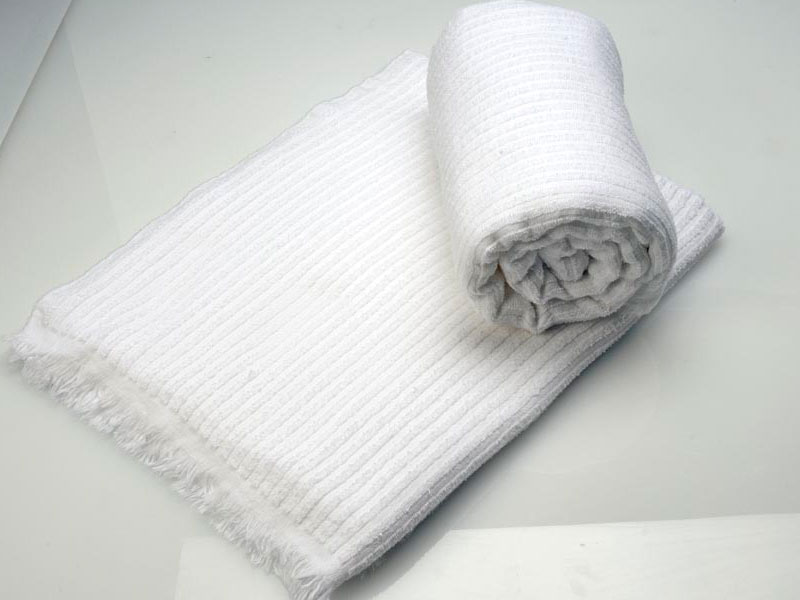
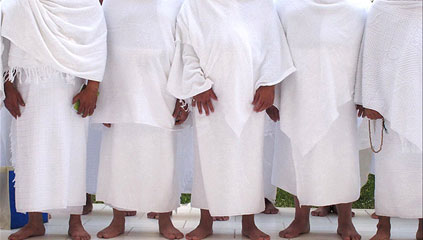
However, ihram is more than just the clothes.
Shaikh Saleh Al-Fawzan states:
“Ihram (a state of ritual consecration during Hajj or Umrah) is the first of the rites of Hajj and it means the intention to start the rites. It is called ihram (which is derived from the Arabic word “haram” i.e. forbidden or prohibited) because a pilgrim by assuming ihram prohibits himself from all the acts that have been permissible before being in this state, such as sexual intercourse, wearing perfume, clipping one’s fingernails, having one’s hair cut, or wearing certain kinds of clothes. To illustrate, Shaykhul Islam ibn Taymiyah (may Allah have mercy on him):
“A man is not considered in a state of ihram once he intends, with his heart to perform Hajj, for the intention is already in his heart since he has left his hometown (heading for Mecca). So, there must be specific words or deeds through which he becomes in a state of ihram.” ” [Quoted from “A Summary of Islamic Jurisprudence”, Vol. 1, pg. 421]
The concept is somewhat similar to Takbeeratul Ihram i.e. the opening takbeer of prayer (the first “Allahu Akbar” in the prayer). It is named as such because it makes prohibited many things which were permissible before it was uttered. For example, eating and talking are allowed before the takbeer but not after it (i.e. they are not allowed during the prayer).
This case is similar to ihram where many lawful things are prohibited for the pilgrim like clipping one’s nails, for instance, once he or she pronounces the talbiyah (explained later in this section) for Hajj or Umrah.
As for the ihram clothes, then there is a wisdom to that as well.
Shaikh Ibn Uthaimeen (rahimahullah) states:
“The reason why he takes off his ordinary clothes is so that he will be completely humbled before his Lord, may He be glorified and exalted, both outwardly and inwardly, because wearing the ridaa (upper garment) and izaar (lower garment) is a kind of humbling oneself. You will see the richest of people who could wear the finest of garments looking like the poorest of people, because he is humbled completely. It is also a show of unity among the Muslims, for they become one ummah even in dress; they circumambulate one building, they stay overnight in one place, they stone the Jamaraat in one place.
A third benefit is that the individual is reminded that when he departs this world, he will only depart in garments like these. He will never depart in the finest clothing; rather he will depart in a shroud. And Allah is the One Whose help we seek.”
In this part, all the rules related to ihram will be discussed. The chapters from this part onwards will be arranged in the order of a journey so that you feel like you are along for the ride.
Please note the following:
- Many of the proofs used for actions in Umrah are related to Hajj. That is because we were commanded to perform in the Umrah what we perform in the Hajj.
عَنْ صَفْوَان بْن يَعْلَى بْنِ أُمَيَّةَ، عَنْ أَبِيهِ، أَنَّ رَجُلاً، أَتَى النَّبِيَّ صلى الله عليه وسلم وَهُوَ بِالْجِعْرَانَةِ وَعَلَيْهِ جُبَّةٌ وَعَلَيْهِ أَثَرُ الْخَلُوقِ أَوْ قَالَ صُفْرَةٍ فَقَالَ كَيْفَ تَأْمُرُنِي أَنْ أَصْنَعَ فِي عُمْرَتِي فَأَنْزَلَ اللَّهُ عَلَى النَّبِيِّ صلى الله عليه وسلم، فَسُتِرَ بِثَوْبٍ وَوَدِدْتُ أَنِّي قَدْ رَأَيْتُ النَّبِيَّ صلى الله عليه وسلم وَقَدْ أُنْزِلَ عَلَيْهِ الْوَحْىُ. فَقَالَ عُمَرُ تَعَالَ أَيَسُرُّكَ أَنْ تَنْظُرَ إِلَى النَّبِيِّ صلى الله عليه وسلم وَقَدْ أَنْزَلَ اللَّهُ الْوَحْىَ قُلْتُ نَعَمْ. فَرَفَعَ طَرَفَ الثَّوْبِ، فَنَظَرْتُ إِلَيْهِ لَهُ غَطِيطٌ وَأَحْسِبُهُ قَالَ كَغَطِيطِ الْبَكْرِ. فَلَمَّا سُرِّيَ عَنْهُ قَالَ : أَيْنَ السَّائِلُ عَنِ الْعُمْرَةِ اخْلَعْ عَنْكَ الْجُبَّةَ وَاغْسِلْ أَثَرَ الْخَلُوقِ عَنْكَ، وَأَنْقِ الصُّفْرَةَ، وَاصْنَعْ فِي عُمْرَتِكَ كَمَا تَصْنَعُ فِي حَجِّكِ
Narrated Safwan ibn Yala ibn Umaiyah from his father who said: “A man came to the Prophet (sallallahu alaihi wasallam) while he was at Jiranah. The man was wearing a cloak which had traces of Khaluq or Sufra (a kind of perfume). The man asked (the Prophet (sallallahu alaihi wasallam) ), ‘What do you order me to perform in my Umrah?’ So, Allah inspired the Prophet (sallallahu alaihi wasallam) divinely and he was screened by a place of cloth. I wished to see the Prophet (sallallahu alaihi wasallam) being divinely inspired. Umar said to me, ‘Come! Will you be pleased to look at the Prophet (sallallahu alaihi wasallam) while Allah is inspiring him?’ I replied in the affirmative. Umar lifted one corner of the cloth and I looked at the Prophet (sallallahu alaihi wasallam) who was snoring. (The sub-narrator thought that he said: The snoring was like that of a camel). When that state was over, the Prophet (sallallahu alaihi wasallam) asked, “Where is the questioner who asked about Umrah? Put off your cloak and wash away the traces of Khaluq from your body and clean the Sufra (yellow color) and perform in your Umrah what you perform in your Hajj (i.e. the Tawaf round the Kabah and the Saee between Safa and Marwah).” [Sahih Al-Bukhari, Volume 3, Hadeeth No. 17]
- Only the required amount of fiqh (jurisprudence) is included. I did not want to add lots of fatwas and differences of opinion because that might confuse the readers and also detract from the other aspects like the history and virtues of each stage. Whoever is looking for a specific fatwa should refer to a person of knowledge.
- Just to reiterate what I’ve mentioned in the disclaimer of this website, the images used in my posts do not belong to me, rather I found them on Google Images.
- As always, if you spot any mistakes in this or any of the other posts, then please let me know immediately.
So, let’s get started.

TYPES OF HAJJ AND UMRAH
The Types of Hajj
There are three types of Hajj:
1) Tamattu: Both Umrah and Hajj are performed but with two different ihrams. This means that the pilgrim will exit the state of ihram after completing the rites of Umrah and then assume it again when he sets out for Mina during Hajj, on the 8th of Dhul Hijjah.
2) Qiran: Both Umrah and Hajj are performed but with one ihram. This means that the pilgrim does not exit the state of ihram after completing the rites of Umrah, rather he continues in a state of ihram until he has completed the required acts on the 10th of Dhul Hijjah. Also, there is only one saee as compared to two for At-Tamattu.
3) Ifrad: This is performing Hajj alone without Umrah. The first two types of Hajj require the slaughtering of an animal but this type does not require it.
There are some other differences between the three as well, which I won’t mention here so as to avoid confusion.
To make it easier to understand, assume “(” is entering ihram and “)” is exiting it.
Tamattu = (Umrah) + (Hajj)
Qiran = (Umrah + Hajj)
Ifrad = (Hajj)
Please note that Umrah for both Tamattu and Qiran are to be performed in the months of Hajj i.e. Shawwal, Dhul Qadah and the beginning of Dhul Hijjah, as will be explained later, in shaa Allah.
Now, which is the recommended type of Hajj? And which type did the Prophet (sallallahu alaihi wasallam) perform?
One narration implies he did Ifrad:
عَنْ عَائِشَةَ، رضى الله عنها أَنَّ رَسُولَ اللَّهِ صلى الله عليه وسلم أَفْرَدَ الْحَجَّ
Aishah (radiallahu anha) reported that the Messenger of Allah (sallallahu alaihi wasallam) performed Hajj Ifrad. [Sahih Muslim, Hadeeth No. 2775]
Another narration implies that he did Qiran:
عَنْ أَنَسٍ، – رضى الله عنه – قَالَ سَمِعْتُ النَّبِيَّ صلى الله عليه وسلم يُلَبِّي بِالْحَجِّ وَالْعُمْرَةِ جَمِيعًا . قَالَ بَكْرٌ فَحَدَّثْتُ بِذَلِكَ ابْنَ عُمَرَ فَقَالَ لَبَّى بِالْحَجِّ وَحْدَهُ . فَلَقِيتُ أَنَسًا فَحَدَّثْتُهُ بِقَوْلِ ابْنِ عُمَرَ فَقَالَ أَنَسٌ مَا تَعُدُّونَنَا إِلاَّ صِبْيَانًا سَمِعْتُ رَسُولَ اللَّهِ صلى الله عليه وسلم يَقُولُ : لَبَّيْكَ عُمْرَةً وَحَجًّا
Anas (radiallahu anhu) said: I heard Allah’s Messenger (sallallahu alaihi wasallam) pronouncing Talbiyah for both Hajj and Umrah. Bakr (one of the narrators) said: I narrated it to Ibn Umar (radiallahu anhuma), whereupon he said: He (the Prophet) pronounced the Talbiyah for Hajj alone. I met Anas and narrated to him the words of Ibn Umar, whereupon he said: You treat us not but only as children. I heard Allah’s Messenger (sallallahu alaihi wasallam) pronouncing Talbiyah both for Umrah and Hajj. [Sahih Muslim, Hadeeth No. 2844]
Yet another narration implies that he did Tamattu:
عَنْ عِمْرَانَ بْنِ حُصَيْنٍ، – رضى الله عنه – قَالَ تَمَتَّعْنَا مَعَ رَسُولِ اللَّهِ صلى الله عليه وسلم وَلَمْ يَنْزِلْ فِيهِ الْقُرْآنُ . قَالَ رَجُلٌ بِرَأْيِهِ مَا شَاءَ.
عَنْ عِمْرَانَ بْنِ حُصَيْنٍ، – رضى الله عنه – بِهَذَا الْحَدِيثِ قَالَ تَمَتَّعَ نَبِيُّ اللَّهِ صلى الله عليه وسلم وَتَمَتَّعْنَا مَعَهُ
Imran ibn Husain (radiallahu anhu) reported: We performed Tamattu (Hajj and ‘Umra combining together) in the company of Allah’s Messenger (sallallahu alaihi wasallam), and nothing was revealed in the Quran (concerning the abrogation of this practice), and whatever a person (Umar) said was his personal opinion. Imran ibn Husain narrated this hadith (in these words also):” Allah’s Messenger (sallallahu alaihi wasallam) performed Hajj Tamattu and we also performed it along with him.” [Sahih Muslim, Hadeeth No. 2830]
Obviously, the Prophet (sallallahu alaihi wasallam) could not have done all three so why the conflict in narrations? Well, the scholars reconciled the narrations in different ways. I’m going to use what I found to be the simplest explanation.
The Prophet (sallallahu alaihi wasallam) started out from Madinah intending to just do Hajj i.e. Ifrad. When he reached the valley of Al-Aqeeq, he was told by an angel (presumably Jibreel (alaihissalaam)) to do Hajj and Umrah so he intended to do Qiran.
عَنْ عُمَر ـ رضى الله عنه ـ يَقُول سَمِعْتُ النَّبِيَّ صلى الله عليه وسلم بِوَادِي الْعَقِيقِ يَقُولُ : أَتَانِي اللَّيْلَةَ آتٍ مِنْ رَبِّي فَقَالَ صَلِّ فِي هَذَا الْوَادِي الْمُبَارَكِ وَقُلْ عُمْرَةً فِي حَجَّةٍ
Narrated Umar (radiallahu anhu): In the valley of Al-Aqiq I heard Allah’s Messenger (sallallahu alaihi wasallam) saying, “Tonight a messenger came to me from my Lord and asked me to pray in this blessed valley and to assume Ihram for Hajj and Umrah together.” [Sahih Al-Bukhari, Volume 2, Hadeeth No. 609]
So, the Prophet (sallallahu alaihi wasallam) decided to do Qiran – and this is the type of Hajj that he ended up doing. Some of the Sahabah (radiallahu anhum) used to refer to Qiran as Tamattu, as it involves both Hajj and Umrah. This is why Anas (radiallahu anhu) called it “Tamattu” even though the Prophet (sallallahu alaihi wasallam) clearly performed Qiran.
As for the preferred type of Hajj, it seems to be Tamattu because the Prophet (sallallahu alaihi wasallam) wanted to it (presumably because he found out that it was better) but couldn’t because he had the sacrificial animal with him. He then ordered all his Companions (radiallahu anhum) who did not have sacrificial animals with them, to do Tamattu.
عَنْ أَبي شِهَاب، قَالَ قَدِمْتُ مُتَمَتِّعًا مَكَّةَ بِعُمْرَةٍ فَدَخَلْنَا قَبْلَ التَّرْوِيَةِ بِثَلاَثَةِ أَيَّامٍ، فَقَالَ لِي أُنَاسٌ مِنْ أَهْلِ مَكَّةَ تَصِيرُ الآنَ حَجَّتُكَ مَكِّيَّةً. فَدَخَلْتُ عَلَى عَطَاءٍ أَسْتَفْتِيهِ فَقَالَ حَدَّثَنِي جَابِرُ بْنُ عَبْدِ اللَّهِ ـ رضى الله عنهما ـ أَنَّهُ حَجَّ مَعَ النَّبِيِّ صلى الله عليه وسلم يَوْمَ سَاقَ الْبُدْنَ مَعَهُ، وَقَدْ أَهَلُّوا بِالْحَجِّ مُفْرَدًا، فَقَالَ لَهُمْ : أَحِلُّوا مِنْ إِحْرَامِكُمْ بِطَوَافِ الْبَيْتِ وَبَيْنَ الصَّفَا وَالْمَرْوَةِ، وَقَصِّرُوا ثُمَّ أَقِيمُوا حَلاَلاً، حَتَّى إِذَا كَانَ يَوْمُ التَّرْوِيَةِ فَأَهِلُّوا بِالْحَجِّ، وَاجْعَلُوا الَّتِي قَدِمْتُمْ بِهَا مُتْعَةً . فَقَالُوا كَيْفَ نَجْعَلُهَا مُتْعَةً وَقَدْ سَمَّيْنَا الْحَجَّ فَقَالَ : افْعَلُوا مَا أَمَرْتُكُمْ، فَلَوْلاَ أَنِّي سُقْتُ الْهَدْىَ لَفَعَلْتُ مِثْلَ الَّذِي أَمَرْتُكُمْ، وَلَكِنْ لاَ يَحِلُّ مِنِّي حَرَامٌ حَتَّى يَبْلُغَ الْهَدْىُ مَحِلَّهُ . فَفَعَلُوا.
Narrated Abu Shihab: I left for Makkah for Hajj At-Tamattu assuming Ihram for Umrah. I reached Makkah three days before the day of Tarwiyah (8th Dhul-Hijjah). Some people of Makkah said to me, “Your Hajj will be like the Hajj performed by the people of Makkah(i.e. you will lose the superiority of assuming Ihram from the Meeqat). So I went to Ataa asking him his view about it. He said, “Jabir ibn Abdullah narrated to me, ‘I performed Hajj with Allah’s Messenger (sallallahu alaihi wasallam) on the day when he drove camels with him. The people had assumed Ihram for Hajj-al-Ifrad. The Prophet (sallallahu alaihi wasallam) ordered them to finish their Ihram after Tawaf round the Kabah, and between Safa and Marwah and to cut short their hair and then to stay there (in Makkah) as non-Muhrims till the day of Tarwiyah (i.e. 8th of Dhul-Hijja) when they would assume Ihram for Hajj and they were ordered to make the Ihram with which they had come as for Umrah only. They asked, ‘How can we make it Umra (Tamattu) as we have intended to perform Hajj?’ The Prophet (sallallahu alaihi wasallam) said, ‘Do what I have ordered you. Had I not brought the Hadi (sacrificial animal) with me, I would have done the same, but I cannot finish my Ihram till the Hadi reaches its destination (i.e. is slaughtered).’ So, they did (what he ordered them to do).” [Sahih Al-Bukhari, Volume 2, Hadeeth No. 639]
The fact that the Prophet (sallallahu alaihi wasallam) actually did Qiran but wanted to do Tamattu, is even more evident from the Hadeeth of Jabir (radiallahu anhu) which was quoted in full in Part 4:
حَتَّى إِذَا كَانَ آخِرُ طَوَافِهِ عَلَى الْمَرْوَةِ فَقَالَ: لَوْ أَنِّي اسْتَقْبَلْتُ مِنْ أَمْرِي مَا اسْتَدْبَرْتُ لَمْ أَسُقِ الْهَدْيَ. وَجَعَلْتُهَا عُمْرَةً. فَمَنْ كَانَ مِنْكُمْ لَيْسَ مَعَهُ هَدْيٌ فَلْيَحِلَّ. وَلْيَجْعَلْهَا عُمْرَةً. فَقَامَ سُرَاقَةُ بْنُ مَالِكِ بْنِ جُعْشُمٍ.فَقَالَ: يَا رَسُولَ اللّهِ أَلِعَامِنا هذَا أَمْ لأَبَدٍ؟ فَشَبَّكَ رَسُولُ اللّهِ أَصَابِعَهُ وَاحِدَةً فِي الأُخْرَى. وَقَالَ: دَخَلَتِ الْعُمْرَةُ فِي الْحَجِّ – مَرَّتَيْنِ – لاَ بَلْ لأَبَدٍ أَبَدٍ. وَقَدِمَ عَلِيٌّ مِنَ اليَمَنِ بِبُدْنِ النَّبِيِّ . فَوَجَدَ فَاطِمَةَ رَضِيَ اللّهُ عَنْهَا مِمَّنْ حَلَّ. وَلَبِسَتْ ثِيَاباً صَبِيغاً. وَاكْتَحَلَتْ فَأَنْكَرَ ذلِكَ، عَلَيْهَا. فَقَالَتْ: إِنَّ أَبِي أَمَرَنِي بِهذَا. قَالَ: فَكَانَ عَلِيٌّ يَقُولُ، بِالْعِرَاقِ: فَذَهَبْتُ إِلَى رَسُولِ اللّهِ مُحَرِّشاً عَلَى فَاطِمَةَ. لِلَّذِي صَنَعَتْ. مُسْتَفْتِياً لِرَسُولِ اللّهِ فِيمَا ذَكَرَتْ عَنْهُ فَأَخْبَرْتُهُ أَنِّي أَنْكَرْتُ ذلِك عَلَيْهَا. فَقَالَ: صَدَقَتْ صَدَقَتْ. مَاذَا قُلْتَ حِينَ فَرَضْتَ الْحَجَّ؟ قَالَ قُلْتُ: اللَّهُمَّ إِنِّي أُهِلُّ بِمَا أَهَلَّ بِهِ رَسُولُكَ. قَالَ: فَإِنَّ مَعِيَ الْهَدْيَ فَلاَ تَحِلُّ. قَالَ: فَكَانَ جَمَاعَةُ الْهَدَي الَّذِي قَدِمَ بِهِ عَلِيٌّ مِنَ الْيَمَنِ وَالَّذِي أَتَى بِهِ النَّبِيُّ مِائَةً. قَالَ: فَحَلَّ النَّاسُ كُلُّهُمْ وَقَصَّرُوا. إِلاَّ النَّبِيَّ وَمَنْ كَانَ مَعَهُ هَدْيٌ
“And when it was his last running at Marwah he said: If I had known beforehand what I have come to know afterwards, I would not have brought sacrificial animals and would have performed an Umrah. So, he who among you has not the sacrificial animals with him should put off ihram and treat it as an Umrah. Suraqa ibn Malik ibn Jusham (radiallahu anhu) got up and said: O Messenger of Allah, does it apply to the present year, or does it apply forever? Thereupon the Messenger of Allah (sallallahu alaihi wasallam) intertwined the fingers (of one hand) into another and said twice: The Umrah has become incorporated in the Hajj (adding):” No, but for ever and ever.”
Ali (radiallahu anhu) came from Yemen with the sacrificial animals for the Prophet (sallallahu alaihi wasallam) and found Fatimah (radiallahu anha) to be one among those who had put off ihram and had put on dyed clothes and had applied kohl (antimony). He (Ali) showed disapproval to it, whereupon she said: My father has commanded me to do this. He (the narrator) said that Ali used to say in Iraq: I went to the Messenger of Allah (sallallahu alaihi wasallam) showing annoyance at Fatimah for what she had done, and asked the (verdict) of Allah’s Messenger (sallallahu alaihi wasallam) regarding what she had narrated from him, and told him that I was angry with her, whereupon he said: She has told the truth, she has told the truth.
(The Prophet (sallallahu alaihi wasallam) then asked Ali): What did you say when you undertook to go for Hajj? I (Ali) said: 0 Allah, I am putting on Ihram for the same purpose as Your Messenger has put it on. He said: I have with me sacrificial animals, so do not put off the Ihram. He (Jabir) said: The total number of those sacrificial animals brought by Ali from the Yemen and of those brought by the Prophet (sallallahu alaihi wasallam) was one hundred. Then all the people except the Prophet (sallallahu alaihi wasallam) and those who had with them sacrificial animals, put off ihram, and got their hair clipped. [Sahih Muslim, Hadeeth No. 2803]
For those who have not done Hajj before, it would be better to do Tamattu, because:
- This appears to be the recommended type of Hajj.
- It includes Hajj and Umrah, unlike Ifrad which doesn’t include Umrah.
- One can exit ihram after finishing Umrah rather remaining in it as in Qiran. Being in a state of ihram is very difficult and it has many restrictions including clothing and not being able to be intimate with one’s spouse.
However, one should note that ultimately, it is permitted to do any of the three types.
عَنْ عَائِشَةَ ـ رضى الله عنها ـ أَنَّهَا قَالَتْ خَرَجْنَا مَعَ رَسُولِ اللَّهِ صلى الله عليه وسلم عَامَ حَجَّةِ الْوَدَاعِ، فَمِنَّا مَنْ أَهَلَّ بِعُمْرَةٍ، وَمِنَّا مَنْ أَهَلَّ بِحَجَّةٍ وَعُمْرَةٍ، وَمِنَّا مَنْ أَهَلَّ بِالْحَجِّ وَأَهَلَّ رَسُولُ اللَّهِ صلى الله عليه وسلم بِالْحَجِّ، فَأَمَّا مَنْ أَهَلَّ بِالْحَجِّ أَوْ جَمَعَ الْحَجَّ وَالْعُمْرَةَ لَمْ يَحِلُّوا حَتَّى كَانَ يَوْمُ النَّحْرِ
Narrated Aishah (radiallahu anha): We set out with Allah’s Messenger (sallallahu alaihi wasallam) (to Makkah) in the year of the Prophet’s Last Hajj. Some of us had assumed Ihram for Umrah only, some for both Hajj and Umrah, and others for Hajj only. Allah’s Messenger (sallallahu alaihi wasallam) assumed Ihram for Hajj. So whoever had assumed Ihram for Hajj or for both Hajj and Umrah did not finish the Ihram till the Day of Sacrifice (the 10th of Dhul Hijjah). [Sahih Al-Bukhari, Volume 2, Hadeeth No. 633]
For this series though, I’ve focused on Tamattu.
The Types of Umrah
There are four types of Umrah:
1) Umrah of Tamattu – This is the one done with Hajj At-Tamattu and therefore must be performed in the months of Hajj (mentioned later on in this part).
2) Umrah of Qiran – This is the one done with Hajj Al-Qiran and must also be performed in the months of Hajj.
3) Umrah due to a vow – If a person vowed to do Umrah, then he has to fulfill it. For more information on vows, you may refer to this article.
4) Voluntary Umrah – This is the “normal” Umrah and it can be done at any time of the year.
The only difference between these types is that in Umrah of Qiran, one assumes ihram for both Hajj and Umrah together and does not exit ihram after Umrah. Also, the Umrah of Tamattu and Qiran must be performed in the months of Hajj.

PILLARS AND OBLIGATIONS OF UMRAH
I discussed the ruling on Umrah in Part 2 and its virtues in Part 3. This section will discuss its pillars and obligations. [Again, please note that there are some differences in opinion amongst the scholars on this issue as well.]
Both pillars and obligations are acts that need to be done but their level of importance differs.
If the pilgrim leaves a pillar, then his/her Umrah is invalid. If he/she leaves an obligation, then they need to expiate for it by offering the fidyah.
(Each of the below acts will be discussed in more detail in the next part, in shaa Allah.)
Pillars (Arkan) of Umrah
1. Assuming ihram
This is the intention to enter Umrah.
عن عُمَرَ بْنَ الْخَطَّابِ ـ رضى الله عنه قَالَ سَمِعْتُ رَسُولَ اللَّهِ صلى الله عليه وسلم يَقُولُ :إِنَّمَا الأَعْمَالُ بِالنِّيَّاتِ، وَإِنَّمَا لِكُلِّ امْرِئٍ مَا نَوَى، فَمَنْ كَانَتْ هِجْرَتُهُ إِلَى دُنْيَا يُصِيبُهَا أَوْ إِلَى امْرَأَةٍ يَنْكِحُهَا فَهِجْرَتُهُ إِلَى مَا هَاجَرَ إِلَيْهِ
Umar ibn Al-Khattab (radiallahu anhu) narrated: I heard Allah’s Messenger (sallallahu alaihi wasallam) saying, “The reward of deeds depends upon the intentions and every person will get the reward according to what he has intended. So whoever emigrated for worldly benefits or for a woman to marry, his emigration was for what he emigrated for.”[Sahih Al-Bukhari, Volume 1, Hadeeth No. 1]
The rules related to ihram will be discussed later on in this part.
2. Tawaf around the Kabah
عَنْ ابْن عُمَر ـ رضى الله عنهما ـ قَالَ تَمَتَّعَ رَسُولُ اللَّهِ صلى الله عليه وسلم فِي حَجَّةِ الْوَدَاعِ بِالْعُمْرَةِ إِلَى الْحَجِّ، وَأَهْدَى فَسَاقَ مَعَهُ الْهَدْىَ مِنْ ذِي الْحُلَيْفَةِ، وَبَدَأَ رَسُولُ اللَّهِ صلى الله عليه وسلم فَأَهَلَّ بِالْعُمْرَةِ، ثُمَّ أَهَلَّ بِالْحَجِّ، فَتَمَتَّعَ النَّاسُ مَعَ النَّبِيِّ صلى الله عليه وسلم بِالْعُمْرَةِ إِلَى الْحَجِّ، فَكَانَ مِنَ النَّاسِ مَنْ أَهْدَى فَسَاقَ الْهَدْىَ، وَمِنْهُمْ مَنْ لَمْ يُهْدِ، فَلَمَّا قَدِمَ النَّبِيُّ صلى الله عليه وسلم مَكَّةَ، قَالَ لِلنَّاسِ : مَنْ كَانَ مِنْكُمْ أَهْدَى فَإِنَّهُ لاَ يَحِلُّ لِشَىْءٍ حَرُمَ مِنْهُ حَتَّى يَقْضِيَ حَجَّهُ، وَمَنْ لَمْ يَكُنْ مِنْكُمْ أَهْدَى فَلْيَطُفْ بِالْبَيْتِ، وَبِالصَّفَا وَالْمَرْوَةِ، وَلْيُقَصِّرْ، وَلْيَحْلِلْ، ثُمَّ لِيُهِلَّ بِالْحَجِّ، فَمَنْ لَمْ يَجِدْ هَدْيًا فَلْيَصُمْ ثَلاَثَةَ أَيَّامٍ فِي الْحَجِّ وَسَبْعَةً إِذَا رَجَعَ إِلَى أَهْلِهِ . فَطَافَ حِينَ قَدِمَ مَكَّةَ، وَاسْتَلَمَ الرُّكْنَ أَوَّلَ شَىْءٍ، ثُمَّ خَبَّ ثَلاَثَةَ أَطْوَافٍ، وَمَشَى أَرْبَعًا، فَرَكَعَ حِينَ قَضَى طَوَافَهُ بِالْبَيْتِ عِنْدَ الْمَقَامِ رَكْعَتَيْنِ، ثُمَّ سَلَّمَ، فَانْصَرَفَ فَأَتَى الصَّفَا فَطَافَ بِالصَّفَا وَالْمَرْوَةِ سَبْعَةَ أَطْوَافٍ، ثُمَّ لَمْ يَحْلِلْ مِنْ شَىْءٍ حَرُمَ مِنْهُ حَتَّى قَضَى حَجَّهُ وَنَحَرَ هَدْيَهُ يَوْمَ النَّحْرِ، وَأَفَاضَ فَطَافَ بِالْبَيْتِ، ثُمَّ حَلَّ مِنْ كُلِّ شَىْءٍ حَرُمَ مِنْهُ، وَفَعَلَ مِثْلَ مَا فَعَلَ رَسُولُ اللَّهِ صلى الله عليه وسلم مَنْ أَهْدَى وَسَاقَ الْهَدْىَ مِنَ النَّاسِ.
Narrated Ibn Umar (radiallahu anhuma): During the last Hajj (Hajj-al-Wada) of Allah’s Messenger (sallallahu alaihi wasallam) he performed Umrah and Hajj. He drove a Hadi along with him from Dhul-Hulaifah. Allah’s Messenger (sallallahu alaihi wasallam) started by assuming Ihram for Umrah and Hajj. And the people, too, performed the Umrah and Hajj along with the Prophet. Some of them brought the Hadi (sacrifical animal) and drove it along with them, while the others did not. So, when the Prophet (sallallahu alaihi wasallam) arrived at Makkah, he said to the people, “Whoever among you has driven the Hadi, should not finish his Ihram till he completes his Hajj. And whoever among you has not (driven) the Hadi with him, should perform Tawaf of the Kabah and the Tawaf between Safa and Marwah, then cut short his hair and finish his Ihram, and should later assume Ihram for Hajj; but he must offer a Hadi (sacrifice); and if anyone cannot afford a Hadi, he should fast for three days during the Hajj and seven days when he returns home. The Prophet (sallallahu alaihi wasallam) performed Tawaf of the Kabah on his arrival (at Makkah); he touched the (Black Stone) corner first of all and then did Ramal (fast walking with moving of the shoulders) during the first three rounds round the Kabah, and during the last four rounds he walked. After finishing Tawaf of the Kabah, he offered a two rakah prayer at Maqam Ibrahim, and after finishing the prayer he went to Safa and Marwah and performed seven rounds of Tawaf between them and did not do any deed forbidden because of Ihram, till he finished all the ceremonies of his Hajj and sacrificed his Hadi on the day of Nahr (10th day of Dhul-Hijjah). He then hastened onwards (to Makkah) and performed Tawaf of the Kabha and then everything that was forbidden because of Ihram became permissible. Those who took and drove the Hadi with them did the same as Allah’s Messenger (sallallahu alaihi wasallam) did.[Sahih Al-Bukhari, Volume 2, Hadeeth No. 750]
عَنْ عَائِشَةَ، أَنَّ النَّبِيَّ صلى الله عليه وسلم قَالَ لَهَا : طَوَافُكِ بِالْبَيْتِ وَبَيْنَ الصَّفَا وَالْمَرْوَةِ يَكْفِيكِ لِحَجَّتِكِ وَعُمْرَتِكِ
Aishah (radiallahu anha) narrated that the Prophet (sallallahu alaihi wasallam) said to her: Your observance of circumambulation of the Kabah and your running between As-Safa and Al-Marwah (only once) are sufficient for your Hajj and your Umrah. [Sunan Abee Dawood, Hadeeth No. 1897. Graded “sahih” (authentic) by Al-Albani.]
3. Saee between As-Safa and Al-Marwah
The two ahadeeth listed under tawaf are also a proof for saee. There are other proofs as well.
إِنَّ الصَّفَا وَالْمَرْوَةَ مِن شَعَائِرِ اللَّـهِ ۖ فَمَنْ حَجَّ الْبَيْتَ أَوِ اعْتَمَرَ فَلَا جُنَاحَ عَلَيْهِ أَن يَطَّوَّفَ بِهِمَا ۚ وَمَن تَطَوَّعَ خَيْرًا فَإِنَّ اللَّـهَ شَاكِرٌ عَلِيمٌ
Verily! As-Safa and Al-Marwah (two mountains in Makkah) are of the Symbols of Allah. So it is not a sin on him who perform Hajj or Umrah (pilgrimage) of the House (the Kabah at Makkah) to perform the going (Tawaf) between them (As-Safa and Al-Marwah). And whoever does good voluntarily, then verily, Allah is All-Recogniser, All-Knower. [Surah Al-Baqarah (2) : 158]
The Tawaf mentioned here is Saee, not the Tawaf of the Kabah.
عن حبيبة بنت أبي تجراة قالت :قال النبي صلى الله عليه وسلم: اسْعَوُا ، فإِنَّ اللهَ قدْ كَتَبَ عليْكمْ السَّعْيَ
Habeebah bint Abee Tijaarah (radiallahu anha) narrated that the Prophet (sallallahu alaihi wasallam) said: “Do saee because Allah has ordained saee upon you.” [Sahih Al-Jaami, Hadeeth No. 968]
عَنْ هِشَامِ بْنِ عُرْوَةَ، عَنْ أَبِيهِ، عَنْ عَائِشَةَ، قَالَ قُلْتُ لَهَا إِنِّي لأَظُنُّ رَجُلاً لَوْ لَمْ يَطُفْ بَيْنَ الصَّفَا وَالْمَرْوَةِ مَا ضَرَّهُ . قَالَتْ لِمَ قُلْتُ لأَنَّ اللَّهَ تَعَالَى يَقُولُ { إِنَّ الصَّفَا وَالْمَرْوَةَ مِنْ شَعَائِرِ اللَّهِ} إِلَى آخِرِ الآيَةِ . فَقَالَتْ مَا أَتَمَّ اللَّهُ حَجَّ امْرِئٍ وَلاَ عُمْرَتَهُ لَمْ يَطُفْ بَيْنَ الصَّفَا وَالْمَرْوَةِ وَلَوْ كَانَ كَمَا تَقُولُ لَكَانَ فَلاَ جُنَاحَ عَلَيْهِ أَنْ لاَ يَطَّوَّفَ بِهِمَا . وَهَلْ تَدْرِي فِيمَا كَانَ ذَاكَ إِنَّمَا كَانَ ذَاكَ أَنَّ الأَنْصَارَ كَانُوا يُهِلُّونَ فِي الْجَاهِلِيَّةِ لِصَنَمَيْنِ عَلَى شَطِّ الْبَحْرِ يُقَالُ لَهُمَا إِسَافٌ وَنَائِلَةٌ . ثُمَّ يَجِيئُونَ فَيَطُوفُونَ بَيْنَ الصَّفَا وَالْمَرْوَةِ ثُمَّ يَحْلِقُونَ . فَلَمَّا جَاءَ الإِسْلاَمُ كَرِهُوا أَنْ يَطُوفُوا بَيْنَهُمَا لِلَّذِي كَانُوا يَصْنَعُونَ فِي الْجَاهِلِيَّةِ قَالَتْ فَأَنْزَلَ اللَّهُ عَزَّ وَجَلَّ { إِنَّ الصَّفَا وَالْمَرْوَةَ مِنْ شَعَائِرِ اللَّهِ} إِلَى آخِرِهَا – قَالَتْ – فَطَافُوا .
Hisham ibn Urwah reported on the authority of his father who narrated from Aishah (radiallahu anha). He said to Aishah: I think if a person does not run between as-Safa and al-Marwah, it does not do any harm to him (so far as Hajj is concerned). She said: Why (do you think so)? I said: For Allah says:
إِنَّ الصَّفَا وَالْمَرْوَةَ مِن شَعَائِرِ اللَّـهِ
Verily! As-Safa and Al-Marwah (two mountains in Makkah) are of the Symbols of Allah. [Surah Al-Baqarah (2) : 158] (to the end of the verse),
whereupon she said: Allah does not complete the Hajj of a person or his Umrah if he does not observe Saee between as-Safa and al-Marwha; and if it were so as you state, then (the wording would have been (fala janah an la yatufu biha) [” There is no harm for him if he does not circumambulate between them’]. Do you know in what context (this verse was revealed)? (It was revealed in this context) that the Ansar in the Days of Ignorance pronounced the Talbiya for two idols fixed on the bank of the river which were called Isaf and Naila. The people went there, and then circumambulated between as-Safa and al-Marwah and then got their heads shaved. With the advent of Islam they (the Muslims) did not like to circumambulate between them as they used to do during the Days of Ignorance. It was on account of this that Allah. the Exalted and Majestic, revealed:
إِنَّ الصَّفَا وَالْمَرْوَةَ مِن شَعَائِرِ اللَّـهِ
Verily! As-Safa and Al-Marwah (two mountains in Makkah) are of the Symbols of Allah. [Surah Al-Baqarah (2) : 158] to the end of the verse.
She said: Then people began to observe Saee.
[Sahih Muslim, Hadeeth No. 2923]
(The narrator of the above hadeeth is Urwah ibn Abee Az-Zubair (rahimahullah), the nephew of Aishah (radiallahu anha)).
Please note that in Umrah, Saee must be done after Tawaf.
Obligatory (Waajibat) acts of Umrah
1. Entering ihram at the Meeqat
عنِ ابنِ عباسٍ قال إنَّ النبيَّ صلى الله عليه وسلّم وَقَّتَ لأهلِ المدينةِ ذا الحُلَيفةِ، ولأهلِ الشأْمِ الجُحفَة، ولأهلِ نجدٍ قرْنَ المنازِلِ، ولأهل اليمنِ يَلَمْلَمَ، هنَّ لهنَّ ولمن أتى عليهنَّ مِن غيرِهنَّ ممن أرادَ الحجَّ والعُمرةَ، ومَن كانَ دُونَ ذلكَ فمن حيثُ أنشأَ، حتى أهلُ مكةَ مِن مكةَ
Narrated Ibn Abbas (radiallahu anhuma): Allah’s Messenger (sallallahu alaihi wasallam) made Dhul Hulaifah the Meeqat for the people of Madinah; Al-Juhfah for the people of Sham; Qarn Al-Manazil for the people of Najd; and Yalamlam for the people of Yemen; and these Mawaqeet are for the people at those very places, and besides them for those who come thorough those places with the intention of performing Hajj and Umrah; and whoever is living within these boundaries can assume lhram from the place he starts, and the people of Makkah can assume Ihram from Makkah.[Sahih Al-Bukhari, Volume 2, Hadeeth No. 599]
The issue of “meeqat” will be discussed later in this part.
Please note that entering ihram itself is a pillar, but entering it at the meeqat is an obligation. So if someone enters ihram after the meeqat, his Umrah is still valid but he needs to pay the penalty (i.e. sacrifice) for missing an obligatory act. This animal must be slaughtered in Makkah and its meat is distributed to the poor people of Makkah. (To know more about the types of sacrifices in Hajj and Umrah, please refer to this article.)
However, if someone does not enter ihram at all, his Umrah is invalid.
2. Shaving / trimming hair (after Saee)
لَّقَدْ صَدَقَ اللَّـهُ رَسُولَهُ الرُّؤْيَا بِالْحَقِّ ۖ لَتَدْخُلُنَّ الْمَسْجِدَ الْحَرَامَ إِن شَاءَ اللَّـهُ آمِنِينَ مُحَلِّقِينَ رُءُوسَكُمْ وَمُقَصِّرِينَ لَا تَخَافُونَ ۖ فَعَلِمَ مَا لَمْ تَعْلَمُوا فَجَعَلَ مِن دُونِ ذَٰلِكَ فَتْحًا قَرِيبًا
Indeed Allah shall fulfil the true vision which He showed to His Messenger [i.e. the Prophet saw a dream that he has entered Makkah along with his companions, having their (head) hair shaved and cut short] in very truth. Certainly, you shall enter Al Masjid al Haram; if Allah wills, secure, (some) having your heads shaved, and (some) having your head hair cut short, having no fear. He knew what you knew not, and He granted besides that a near victory. [Surah Al-Fath (48) : 27]
عَنْ ابْن عُمَر ـ رضى الله عنهما ـ قَالَ تَمَتَّعَ رَسُولُ اللَّهِ صلى الله عليه وسلم فِي حَجَّةِ الْوَدَاعِ بِالْعُمْرَةِ إِلَى الْحَجِّ، وَأَهْدَى فَسَاقَ مَعَهُ الْهَدْىَ مِنْ ذِي الْحُلَيْفَةِ، وَبَدَأَ رَسُولُ اللَّهِ صلى الله عليه وسلم فَأَهَلَّ بِالْعُمْرَةِ، ثُمَّ أَهَلَّ بِالْحَجِّ، فَتَمَتَّعَ النَّاسُ مَعَ النَّبِيِّ صلى الله عليه وسلم بِالْعُمْرَةِ إِلَى الْحَجِّ، فَكَانَ مِنَ النَّاسِ مَنْ أَهْدَى فَسَاقَ الْهَدْىَ، وَمِنْهُمْ مَنْ لَمْ يُهْدِ، فَلَمَّا قَدِمَ النَّبِيُّ صلى الله عليه وسلم مَكَّةَ، قَالَ لِلنَّاسِ : مَنْ كَانَ مِنْكُمْ أَهْدَى فَإِنَّهُ لاَ يَحِلُّ لِشَىْءٍ حَرُمَ مِنْهُ حَتَّى يَقْضِيَ حَجَّهُ، وَمَنْ لَمْ يَكُنْ مِنْكُمْ أَهْدَى فَلْيَطُفْ بِالْبَيْتِ، وَبِالصَّفَا وَالْمَرْوَةِ، وَلْيُقَصِّرْ، وَلْيَحْلِلْ، ثُمَّ لِيُهِلَّ بِالْحَجِّ، فَمَنْ لَمْ يَجِدْ هَدْيًا فَلْيَصُمْ ثَلاَثَةَ أَيَّامٍ فِي الْحَجِّ وَسَبْعَةً إِذَا رَجَعَ إِلَى أَهْلِهِ . فَطَافَ حِينَ قَدِمَ مَكَّةَ، وَاسْتَلَمَ الرُّكْنَ أَوَّلَ شَىْءٍ، ثُمَّ خَبَّ ثَلاَثَةَ أَطْوَافٍ، وَمَشَى أَرْبَعًا، فَرَكَعَ حِينَ قَضَى طَوَافَهُ بِالْبَيْتِ عِنْدَ الْمَقَامِ رَكْعَتَيْنِ، ثُمَّ سَلَّمَ، فَانْصَرَفَ فَأَتَى الصَّفَا فَطَافَ بِالصَّفَا وَالْمَرْوَةِ سَبْعَةَ أَطْوَافٍ، ثُمَّ لَمْ يَحْلِلْ مِنْ شَىْءٍ حَرُمَ مِنْهُ حَتَّى قَضَى حَجَّهُ وَنَحَرَ هَدْيَهُ يَوْمَ النَّحْرِ، وَأَفَاضَ فَطَافَ بِالْبَيْتِ، ثُمَّ حَلَّ مِنْ كُلِّ شَىْءٍ حَرُمَ مِنْهُ، وَفَعَلَ مِثْلَ مَا فَعَلَ رَسُولُ اللَّهِ صلى الله عليه وسلم مَنْ أَهْدَى وَسَاقَ الْهَدْىَ مِنَ النَّاسِ.
Narrated Ibn Umar (radiallahu anhuma): During the last Hajj (Hajj-al-Wada) of Allah’s Messenger (sallallahu alaihi wasallam) he performed Umrah and Hajj. He drove a Hadi along with him from Dhul-Hulaifah. Allah’s Messenger (sallallahu alaihi wasallam) started by assuming Ihram for Umrah and Hajj. And the people, too, performed the Umrah and Hajj along with the Prophet. Some of them brought the Hadi (sacrifical animal) and drove it along with them, while the others did not. So, when the Prophet (sallallahu alaihi wasallam) arrived at Makkah, he said to the people, “Whoever among you has driven the Hadi, should not finish his Ihram till he completes his Hajj. And whoever among you has not (driven) the Hadi with him, should perform Tawaf of the Kabah and the Tawaf between Safa and Marwah, then cut short his hair and finish his Ihram, and should later assume Ihram for Hajj; but he must offer a Hadi (sacrifice); and if anyone cannot afford a Hadi, he should fast for three days during the Hajj and seven days when he returns home. The Prophet (sallallahu alaihi wasallam) performed Tawaf of the Kabah on his arrival (at Makkah); he touched the (Black Stone) corner first of all and then did Ramal (fast walking with moving of the shoulders) during the first three rounds round the Kabah, and during the last four rounds he walked. After finishing Tawaf of the Kabah, he offered a two rakah prayer at Maqam Ibrahim, and after finishing the prayer he went to Safa and Marwah and performed seven rounds of Tawaf between them and did not do any deed forbidden because of Ihram, till he finished all the ceremonies of his Hajj and sacrificed his Hadi on the day of Nahr (10th day of Dhul-Hijjah). He then hastened onwards (to Makkah) and performed Tawaf of the Kabha and then everything that was forbidden because of Ihram became permissible. Those who took and drove the Hadi with them did the same as Allah’s Messenger (sallallahu alaihi wasallam) did. [Sahih Al-Bukhari, Volume 2, Hadeeth No. 750]
If a pilgrim misses an obligatory act of Umrah, he is required to offer the fidyah for each obligatory act missed.
Before I continue, I should mention something very, very important about a special characteristic shared by Umrah and Hajj. No other act of worship, apart from these two, has this characteristic.
What is that? Well, it is the fact that if you start either of them, even it is a voluntary Hajj or voluntary Umrah, you cannot cancel it with your intention and you must complete them unless a person has made a condition when he put on ihram (a matter discussed later in this part) or he is prevented from completing it, in which case he must offer a fidyah (ransom)
Other acts of worship, like prayer and fasting, can be cancelled with one’s intention after having started them but not Hajj and Umrah because Allah says:
وَأَتِمُّوا الْحَجَّ وَالْعُمْرَةَ لِلَّـهِ ۚ فَإِنْ أُحْصِرْتُمْ فَمَا اسْتَيْسَرَ مِنَ الْهَدْيِ ۖ وَلَا تَحْلِقُوا رُءُوسَكُمْ حَتَّىٰ يَبْلُغَ الْهَدْيُ مَحِلَّهُ
And perform properly (i.e. all the ceremonies according to the ways of Prophet Muhammad), the Hajj and Umrah (i.e. the pilgrimage to Makkah) for Allah. But if you are prevented (from completing them), sacrifice a Hady (animal, i.e. a sheep, a cow, or a camel, etc.) such as you can afford, and do not shave your heads until the Hady reaches the place of sacrifice. [Surah Al-Baqarah (2) : 196]
Shaikh Ibn Uthaimeen (rahimahullah) stated:
“This is one of the unique characteristics of Hajj. Hajj has unique characteristics that are not present in any other act of worship. If a person intends to cancel Hajj it does not become cancelled, but if a person intends to cancel any other act of worship it does become cancelled. If a person is fasting then he decides to cancel his fast, his fast is cancelled, and if a person decides to cancel his wudoo whilst doing it, his wudoo is cancelled. But if a person is doing umrah and decides to cancel it, it does not become cancelled, and if he decides to cancel Hajj whilst putting on the Hajj garments, it does not become cancelled. Hence the scholars said that the rituals of Hajj and umrah do not be cancelled even of a person decides to cancel them.”
Imam Ibn Kathir (rahimahullah) states in his explanation of the above mentioned verse:
“After Allah mentioned the rulings for fasting and Jihad, he explained the rituals by commanding the Muslims to complete Hajj and Umrah, meaning, to finish the rituals of Hajj and Umrah after one starts them. This is why Allah said afterwards:
﴿فَإِنْ أُحْصِرْتُمْ﴾
(But if you are prevented) meaning, if your way to the House is obstructed, and you are prevented from finishing it. This is why the scholars agree that starting the acts of Hajj and Umrah requires one to finish them.”
He also stated:
“Allah’s statement:
﴿فَإِنْ أُحْصِرْتُمْ فَمَا اسْتَيْسَرَ مِنَ الْهَدْىِ﴾
(But if you are prevented, sacrifice a Hady (animals for sacriface) such as you can afford,) was revealed in the sixth year of Hijrah, the year of the treaty of Al-Hudaybiyyah when the polytheists prevented Allah’s Messenger from reaching the House. Allah revealed Surat Al-Fath (chapter 48 in the Qur’an) then, and allowed the Muslims to slaughter any Hady (animals for sacrifice) they had. They had seventy camels with them for that purpose. They were also permitted to shave their heads and end their Ihram. When the Prophet commanded them to shave their heads and end the state of Ihram, they did not obey him, as they were awaiting that order to be abrogated. When they saw that the Prophet went out after shaving his head, they imitated him. Some of them did not shave, but only shortened their hair. This is why the Prophet said:
«رَحِمَ اللهُ الْمُحَلِّقِين»
(May Allah award His mercy to those who shaved.)
They said, “What about those who shortened the hair” He said in the third time, “And to those who shortened.” Every seven among them shared one camel for their sacrifice. They were one thousand and four hundred Companions and were camping in the area of Al-Hudaybiyyah, outside the Sacred Area. It was also reported that they were within the boundaries of the Sacred Area. Allah knows best.
Being prevented from the House (Hasr) includes more than just being sick, fearing an enemy or getting lost on the way to Makkah. Imam Ahmad reported that Al-Hajjaj bin Amr Al-Ansari said that he heard Allah’s Messenger saying:
«مَنْ كُسِرَ أَوْ عَرِجَ فَقَدْ حَلَّ وَعَلَيْهِ حَجَّةٌ أُخْرَى»
(Whoever suffered a broken bone or a limb, will have ended his Ihram and has to perform Hajj again.) He said, “I mentioned that to Ibn Abbas and Abu Hurayrah and they both said, `He (Al-Hajjaj) has said the truth’.” This Hadith is also reported in the Four Collections. In the version of Abu Dawud and Ibn Majah, the Prophet said, “Whoever limped, had a broken bone or became ill…” Ibn Abu Hatim also recorded it and said, “It was reported that Ibn Masud, Ibn Az-Zubayr, Alqamah, Said bin Musayyib, Urwah bin Az-Zubayr, Mujahid, An-Nakhai, Ataa and Muqatil bin Hayyan said that being prevented (Hasr) entails an enemy, an illness or a fracture.” Ath-Thawri also said, “Being prevented entails everything that harms the person.’
It is reported in the Two Sahihs that Aishah said that Allah’s Messenger went to Dubaah bint Az-Zubayr bin Abdul-Muttalib who said, “O Messenger of Allah! I intend to perform Hajj but I am ill.” He said, “Perform Hajj and make the condition: `My place is where You prevent (or halt) me.” Muslim recorded similarly from Ibn Abbas. So saying such a condition for Hajj is allowed is based on this Hadith.
Allah’s statement:
﴿فَمَا اسْتَيْسَرَ مِنَ الْهَدْىِ﴾
(…sacrifice a Hady such as you can afford) includes a sheep also, as Imam Malik reported that Ali bin Abu Talib used to say. Ibn Abbas said, “The Hady includes eight types of animals: camels, cows, goats and sheep.” Abdur-Razzaq reported that Ibn Abbas said about what Allah said:
﴿فَمَا اسْتَيْسَرَ مِنَ الْهَدْىِ﴾
(…sacrifice a Hady such as you can afford)
“As much as one could afford.” Al-Awfi said that Ibn Abbas said, “If one can afford it, then camels, otherwise cows, or sheep.” Hisham bin Urwah quoted his father:
﴿فَمَا اسْتَيْسَرَ مِنَ الْهَدْىِ﴾
(…sacrifice a Hady (animal, i.e., a sheep, a cow, or a camel) such as you can afford) `Depending on the price.’
The proof that sacrificing only a sheep is allowed in the case of being prevented from continuing the rites, is that Allah has required sacrificing whatever is available as a Hady, and the Hady is any type of cattle; be it camels, cows or sheep. This is the opinion of Ibn Abbas the cousin of Allah’s Messenger and the scholar of Tafsir. It is reported in the Two Sahihs that Aishah, the Mother of the believers, said, “The Prophet once offered some sheep as Hady.””
So, a person who is prevented from completing their Hajj or Umrah should do what the Prophet (sallallahu alaihi wasallam) did.
عَنْ نَافِعٍ، أَنَّ عَبْدَ اللَّهِ بْنَ عُمَرَ ـ رضى الله عنهما ـ حِينَ خَرَجَ إِلَى مَكَّةَ مُعْتَمِرًا فِي الْفِتْنَةِ قَالَ إِنْ صُدِدْتُ عَنِ الْبَيْتِ صَنَعْتُ كَمَا صَنَعْنَا مَعَ رَسُولِ اللَّهِ صلى الله عليه وسلم. فَأَهَلَّ بِعُمْرَةٍ، مِنْ أَجْلِ أَنَّ رَسُولَ اللَّهِ صلى الله عليه وسلم كَانَ أَهَلَّ بِعُمْرَةٍ عَامَ الْحُدَيْبِيَةِ
Narrated Nafi: When Abdullah ibn Umar (radiallahu anhuma) set out for Makkah intending to perform Umrah, at the time of fitnah (afflictions), he said, “If I should be prevented from reaching the Kabah, then I would do the same as Allah’s Messenger (sallallahu alaihi wasallam) did, so I assume the lhram for Umrah as Allah’s Messenger (sallallahu alaihi wasallam) assumed the Ihram for Umrah in the year of Hudaibiyah.” [Sahih Al-Bukhari, Volume 3, Hadeeth No. 33]
عَنْ عِكْرِمَةَ، قَالَ قَالَ ابْنُ عَبَّاسٍ ـ رضى الله عنهما ـ قَدْ أُحْصِرَ رَسُولُ اللَّهِ صلى الله عليه وسلم فَحَلَقَ رَأْسَهُ وَجَامَعَ نِسَاءَهُ، وَنَحَرَ هَدْيَهُ، حَتَّى اعْتَمَرَ عَامًا قَابِلاً
Ikrimah narrated that Ibn Abbas (radiallahu anhuma) said: Allah’s Messenger (sallallahu alaihi wasallam) was prevented from performing (Umrah) Therefore, he shaved his head and had sexual relations with his wives and slaughtered his Hadi (sacrificial animal) and performed Umrah in the following year. [Sahih Al-Bukhari, Volume 3, Hadeeth No. 36]
(Please note that these steps are not mentioned in order. A person is first required to slaughter the animal and then shave his head before he can be with his spouse.)
عَنِ الْمِسْوَرِ ـ رضى الله عنه ـ أَنَّ رَسُولَ اللَّهِ صلى الله عليه وسلم نَحَرَ قَبْلَ أَنْ يَحْلِقَ، وَأَمَرَ أَصْحَابَهُ بِذَلِكَ
Narrated Al-Miswar (radiallahu anhu): Allah’s Messenger (sallallahu alaihi wasallam) slaughtered (the Hadi) before he had his head shaved and then he ordered his Companions to do the same. [Sahih Al-Bukhari, Volume 3, Hadeeth No. 38]
However, this is not the case for someone who did not complete their Hajj or Umrah for a illegitimate reason.
So, for instance, if a person who started their Umrah did not complete it and left Makkah, they are STILL in a state of ihram. So, if they get married in that time, their marriage contract might be invalid because a person is not allowed to get married whilst in ihram!
Subhan Allah, this issue has occurred with many people so everyone needs to make sure that they complete their Hajj and Umrah.
Here are some questions from people who did not complete their Hajj or Umrah:
(Please note: These are just guidelines. If someone has gone through a similar scenario, they need to ask a person of knowledge for a ruling specifically for their case. Personal fatwas are not obtained using Shaikh Google!)
She didn’t complete her Umrah the first time around
He didn’t complete his Umrah and then got married two years later
She didn’t complete her Umrah and, on top of that, vowed not to do Umrah until age 40
He interrupted his Umrah and completed it several years later
Here’s another interesting scenario – the person had an incomplete Umrah and then performed Hajj and then got married. It turns out his Hajj made up for Umrah so his marriage contract was valid but he has to do Hajj again because his ihram was for that Umrah not the Hajj, subhan Allah!
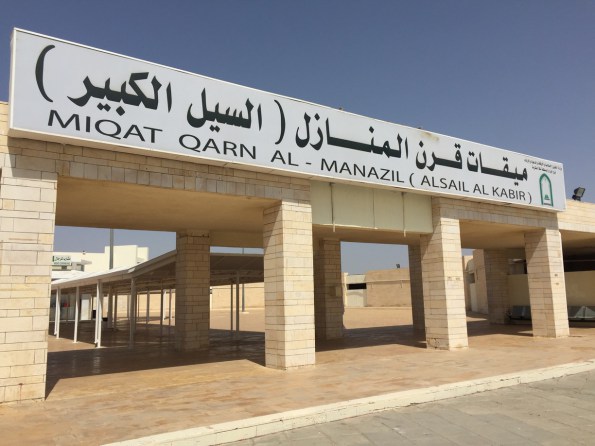
THE MAWAAQEET
Ihram for Hajj can only be assumed at certain times and at certain places referred to as mawaqeet (plural of meeqaat).
The Mawaqeet of Time
Ihram for Hajj can only be assumed in the months of Hajj.
يَسْأَلُونَكَ عَنِ الْأَهِلَّةِ ۖ قُلْ هِيَ مَوَاقِيتُ لِلنَّاسِ وَالْحَجِّ ۗ وَلَيْسَ الْبِرُّ بِأَن تَأْتُوا الْبُيُوتَ مِن ظُهُورِهَا وَلَـٰكِنَّ الْبِرَّ مَنِ اتَّقَىٰ ۗ وَأْتُوا الْبُيُوتَ مِنْ أَبْوَابِهَا ۚ وَاتَّقُوا اللَّـهَ لَعَلَّكُمْ تُفْلِحُونَ
“They ask you (O Muhammad) about the new moons. Say: These are signs to mark fixed periods of time for mankind and for the pilgrimage. It is not Al-Birr (piety, righteousness, etc.) that you enter the houses from the back but Al-Birr (is the quality of the one) who fears Allah. So enter houses through their proper doors, and fear Allah that you may be successful.” [Surah Al-Baqarah (2) : 189]
الْحَجُّ أَشْهُرٌ مَّعْلُومَاتٌ ۚ فَمَن فَرَضَ فِيهِنَّ الْحَجَّ فَلَا رَفَثَ وَلَا فُسُوقَ وَلَا جِدَالَ فِي الْحَجِّ ۗ وَمَا تَفْعَلُوا مِنْ خَيْرٍ يَعْلَمْهُ اللَّـهُ ۗ وَتَزَوَّدُوا فَإِنَّ خَيْرَ الزَّادِ التَّقْوَىٰ ۚ وَاتَّقُونِ يَا أُولِي الْأَلْبَابِ
“The Hajj is (in) the well-known (lunar year) months (i.e. the 10th month, the 11th month and the first ten days of the 12th month of the Islamic calendar, i.e. two months and ten days). So whosoever intends to perform Hajj therein by assuming Ihram), then he should not have sexual relations (with his wife), nor commit sin, nor dispute unjustly during the Hajj. And whatever good you do, (be sure) Allah knows it. And take a provision (with you) for the journey, but the best provision is At-Taqwa (piety, righteousness, etc.). So fear Me, O men of understanding!” [Surah Al-Baqarah (2) : 197]
Imam Ibn Kathir (rahimahullah) states in his explanation of this verse:
“Allah said:
الْحَجُّ أَشْهُرٌ مَّعْلُومَاتٌ
(The Hajj is (in) the well-known months.)
This Ayah indicates that Ihram for Hajj only occurs during the months of Hajj. This was reported from Ibn Abbas, Jabir, Ataa, Tawus and Mujahid. The proof for this is Allah’s statement that Hajj occurs during known, specific months, which indicates that Hajj is not allowed before that, just as the prayer has a fixed time (before which one’s prayer is not accepted).
Ash-Shafi recorded that Ibn Abbas said, “No person should assume Ihram for Hajj before the months of the Hajj, for Allah said:
الْحَجُّ أَشْهُرٌ مَّعْلُومَاتٌ
(The Hajj is (in) the well-known months.)
Ibn Khuzaymah reported that Ibn Abbas said, “No Ihram for Hajj should be assumed, except during the months of Hajj, for among the Sunnah of Hajj is that one assume Ihram for it during the Hajj months. ” This is an authentic narration and the Companion’s statement that such and such is among the Sunnah is considered as a Hadith of the Prophet , according to the majority of the scholars. This is especially the case when it is Ibn Abbas who issued this statement, as he is the Tarjuman (translator, interpreter, explainer) of the Quran.
There is a Hadith about this subject too. Ibn Marduwyah related that Jabir narrated that the Prophet said:
«لَا يَنْبَغِي لِأَحَدٍ أَنْ يُحْرِمَ بِالْحَجِّ إِلَّا فِي أَشْهُرِ الْحَج»
(No one should assume Ihram for Hajj, but during the months of Hajj.)
The chain of narrators for this Hadith is reasonable. Ash-Shafi and Al-Bayhaqi recorded this Hadith from Ibn Jurayj who related that Abu Az-Zubayr said that he heard Jabir bin Abdullah being asked, “Does one assume Ihram for Hajj before the months of the Hajj” He said, “No.” This narration is more reliable than the narration that we mentioned from the Prophet . In short, this statement is the opinion of the Companion, supported by Ibn Abbas statement that it is a part of the Sunnah not to assume Ihram for Hajj before the months of the Hajj. Allah knows best.
Allah said:
الْحَجُّ أَشْهُرٌ مَّعْلُومَاتٌ
(…the well-known months.)
Al-Bukhari said that Ibn Umar said that these are Shawwal, Dhul-Qadah and the first ten days of Dhul-Hijjah. This narration for which Al-Bukhari did not mention the chain of narrators, was collected by a continuous chain of narrators that Ibn Jarir rendered authentic, leading to Ibn Umar, who said:
الْحَجُّ أَشْهُرٌ مَّعْلُومَاتٌ
(The Hajj (pilgrimage) is (in) the well-known (lunar year) months.) “which are Shawwal, Dhul-Qadah and the (first) ten days of Dhul-Hijjah.” Its chain is Sahih. Al-Hakim also recorded it in his Mustadrak, and he said,”It meets the criteria of the Two Shaykhs.”
This statement is also reported from Umar, Ali, Ibn Masud, Abdullah bin Az-Zubayr, Ibn Abbas, Ataa, Tawus, Mujahid, Ibrahim An-Nakhai, Imam Ash-Shabi, Al-Hasan, Ibn Sirin, Makhul, Qatadah, Ad-Dahhak bin Muzahim, Ar-Rabi bin Anas and Muqatil bin Hayyan. This opinion was preferred by Ibn Jarir who said, “It is a common practice to call two months and a part of the third month as `months’. This is similar to the Arab’s saying, `I visited such and such person this year or this day.’ He only visited him during a part of the year and a part of the day. Allah said:
﴿فَمَن تَعَجَّلَ فِى يَوْمَيْنِ فَلاَ إِثْمَ عَلَيْهِ﴾
(But whosoever hastens to leave in two days, there is no sin on him.)
In this case, one will only be hastening for one and a half days.”
So, the one who intends to assume ihram for Umrah (for At-Tamattu or Qiran), or for Hajj Ifrad, then he needs to make sure he does so in Shawwal, Dhul Qaddah or the beginning of Dhul Hijjah (before the rites of Hajj).
Ironically, the pagan Arabs used to consider doing Umrah in the months of Hajj to be a great sin!
عَنِ ابْنِ عَبَّاسٍ ـ رضى الله عنهما ـ قَالَ كَانُوا يَرَوْنَ أَنَّ الْعُمْرَةَ فِي أَشْهُرِ الْحَجِّ مِنْ أَفْجَرِ الْفُجُورِ فِي الأَرْضِ، وَيَجْعَلُونَ الْمُحَرَّمَ صَفَرًا وَيَقُولُونَ إِذَا بَرَأَ الدَّبَرْ، وَعَفَا الأَثَرْ، وَانْسَلَخَ صَفَرْ، حَلَّتِ الْعُمْرَةُ لِمَنِ اعْتَمَرْ. قَدِمَ النَّبِيُّ صلى الله عليه وسلم وَأَصْحَابُهُ صَبِيحَةَ رَابِعَةٍ مُهِلِّينَ بِالْحَجِّ، فَأَمَرَهُمْ أَنْ يَجْعَلُوهَا عُمْرَةً فَتَعَاظَمَ ذَلِكَ عِنْدَهُمْ فَقَالُوا يَا رَسُولَ اللَّهِ أَىُّ الْحِلِّ قَالَ : حِلٌّ كُلُّهُ
Narrated Ibn Abbas (radiallahu anhuma): The people (of the Pre-Islamic Period) used to think that to perform Umrah during the months of Hajj was one of the major sins on earth. And also used to consider the month of Safar as a forbidden (i.e. sacred) month and they used to say, “When the wounds of the camel’s back heal up (after they return from Hajj) and the signs of those wounds vanish and the month of Safar passes away then (at that time) Umrah is permissible for the one who wishes to perform it.” In the morning of the 4th of Dhul-Hijjah, the Prophet (sallallahu alaihi wasallam) and his companions reached Makkah, assuming Ihram for Hajj and he ordered his companions to make their intentions of the Ihram for Umrah only (instead of Hajj) so they considered his order as something great and were puzzled, and said, “O Allah’s Messenger (sallallahu alaihi wasallam)! What kind (of finishing) of Ihram is allowed?” The Prophet (sallallahu alaihi wasallam) replied, “Finish the Ihram completely like a non-Muhrim (you are allowed everything).” [Sahih Al-Bukhari, Volume 2, Hadeeth No. 635]
Despite what they believed, it IS permissible to perform Umrah before Hajj.
عَنْ ابْن جُرَيْجٍ، أَنَّ عِكْرِمَةَ بْنَ خَالِدٍ، سَأَلَ ابْنَ عُمَرَ ـ رضى الله عنهما ـ عَنِ الْعُمْرَةِ، قَبْلَ الْحَجِّ فَقَالَ لاَ بَأْسَ. قَالَ عِكْرِمَةُ قَالَ ابْنُ عُمَرَ اعْتَمَرَ النَّبِيُّ صلى الله عليه وسلم قَبْلَ أَنْ يَحُجَّ
Narrated Ibn Juraij: Ikrimah ibn Khalid asked Ibn Umar (radiallahu anhuma) about performing Umrah before Hajj. Ibn Umar replied, “There is no harm in it.” Ikrimah said, “Ibn Umar also said, ‘The Prophet (sallallahu alaihi wasallam) had performed Umrah before performing Hajj.'” [Sahih Al-Bukhari, Volume 3, Hadeeth No. 2]
As for Umrah in general (i.e. not connected to Hajj), then one can assume ihram for it at any time, even in the months of Hajj.
Please note: If one wishes to do Umrah in Ramadan, then one needs to assume ihram DURING Ramadan and do all the acts within this month. To understand this point better, please refer to this article.
One more point to remember: Dhul Qaddah and Dhul Hajjah are from the sacred months. For more information on the sacred months, you may refer to this earlier post of mine.
The Mawaqeet of Place
Those who wish to do Hajj and Umrah must assume ihram from certain places. If they pass these places without assuming ihram then they need to pay a fidyah (ransom).
Shaikh Saleh Al-Fawzan states:
“The idea behind such meeqaats for Hajj is as follows: The House of Allah (the Kabah), being so glorified and honoured by Allah, is fortified by Allah through Makkah and protected by the sanctuary of Makkah which, in turn, is glorified by those meeqaats beyond which one cannot pass without being in the state of ihram as a sign of honour and glorification to the House of Allah.” [Quoted from “A Summary of Islamic Jurisprudence”, Vol. 1, pg. 418]
There are five mawaqeet in total.
عنِ ابنِ عباسٍ قال إنَّ النبيَّ صلى الله عليه وسلّم وَقَّتَ لأهلِ المدينةِ ذا الحُلَيفةِ، ولأهلِ الشأْمِ الجُحفَة، ولأهلِ نجدٍ قرْنَ المنازِلِ، ولأهل اليمنِ يَلَمْلَمَ، هنَّ لهنَّ ولمن أتى عليهنَّ مِن غيرِهنَّ ممن أرادَ الحجَّ والعُمرةَ، ومَن كانَ دُونَ ذلكَ فمن حيثُ أنشأَ، حتى أهلُ مكةَ مِن مكةَ
Narrated Ibn Abbas (radiallahu anhuma): Allah’s Messenger (sallallahu alaihi wasallam) made Dhul Hulaifah the Meeqat for the people of Madinah; Al-Juhfah for the people of Sham; Qarn Al-Manazil for the people of Najd; and Yalamlam for the people of Yemen; and these Mawaqeet are for the people at those very places, and besides them for those who come thorough those places with the intention of performing Hajj and Umrah; and whoever is living within these boundaries can assume lhram from the place he starts, and the people of Makkah can assume Ihram from Makkah. [Sahih Al-Bukhari, Volume 2, Hadeeth No. 599]
عَنْ عَائِشَةَ، رضى الله عنها أَنَّ رَسُولَ اللَّهِ صلى الله عليه وسلم وَقَّتَ لأَهْلِ الْعِرَاقِ ذَاتَ عِرْقٍ
Narrated Aishah (radiallahu anha): The Messenger of Allah (sallallahu alaihi wasallam) appointed Dhat Irq as the place for putting on ihram for the people of Iraq. [Sunan Abee Dawood, Hadeeth No. 1739. Graded “sahih” (authentic) by Al-Albani.]
عن ابنِ عُمرَ رضيَ اللّهُ عنهما قال: لما فُتح هذانِ المِصرانِ أَتوا عُمرَ فقالوا: يا أميرَ المؤمنينَ إنّ رسولَ اللّهِ صلى الله عليه وسلّم حَدّ لأهلِ نجدٍ قَرْناً وهو جَوْرٌ عن طريقِنا، وإنّا إنْ أرَدنا قَرْناً شَقّ علينا. قال: فانظُروا حَذْوَها مَن طريقِكم. فحدّ لهم ذاتَ عِرقٍ
Narrated Ibn Umar (radiallahu anhuma): When these two towns (Basra and Kufa) were captured, the people went to Umar and said, “O the Chief of the faithful believers! The Prophet fixed Qarn as the Meeqat for the people of Najd, it is beyond our way and it is difficult for us to pass through it.” He said, “Take as your Meeqat a place situated opposite to Qarn on your usual way. So, he fixed Dhatu Irq (as their Meeqat).” [Sahih Al-Bukhari, Volume 2, Hadeeth No. 606]
(A nice point of benefit from the book “Tayseer Al-Alaam”: There is a mujiza (Prophetic miracle) in this hadeeth. The people who lived outside these mawaqeet were not Muslims at the time of the Prophet (sallallahu alaihi wasallam). They accepted Islam later. The fact that the Prophet (sallallahu alaihi wasallam) made these places mawaqeet is a proof of his Prophethood.)
This is how far they are from Makkah:
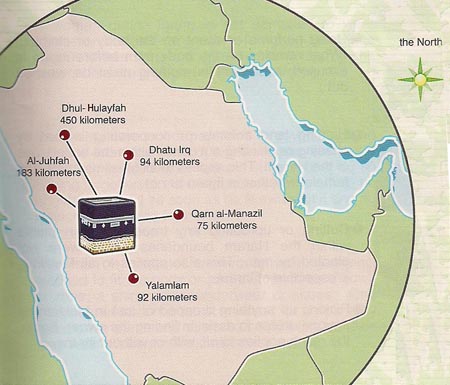
Dhul Hulaifah is now known as Abaar Ali. This is the masjid in it which people use as a meeqat.
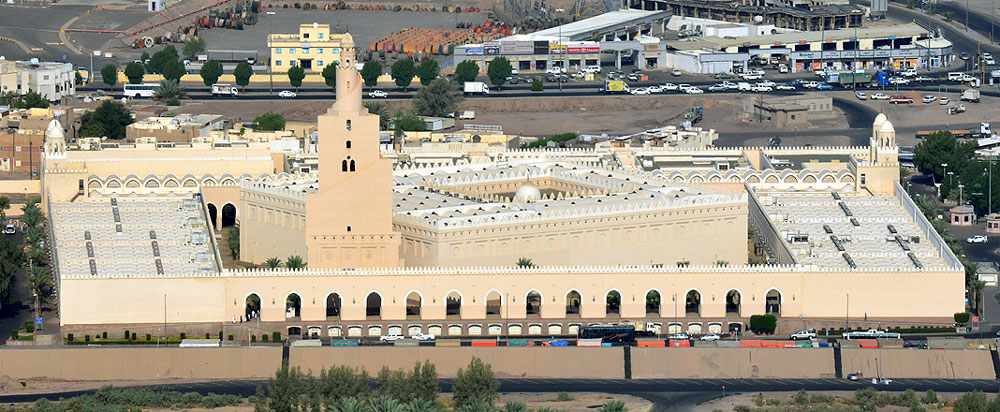
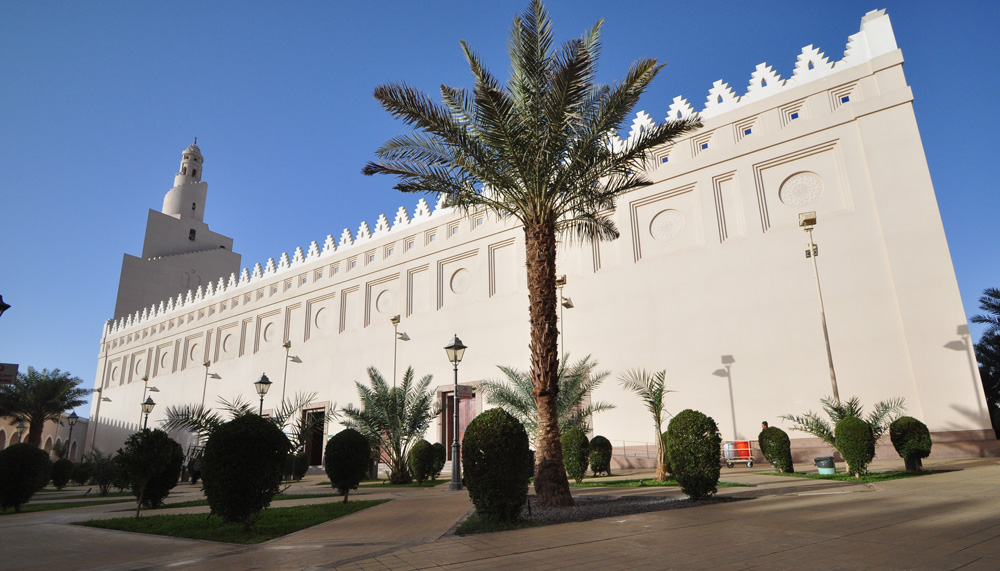
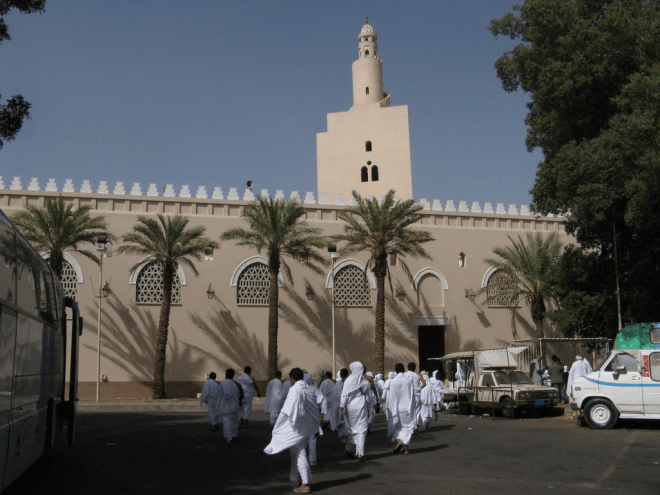
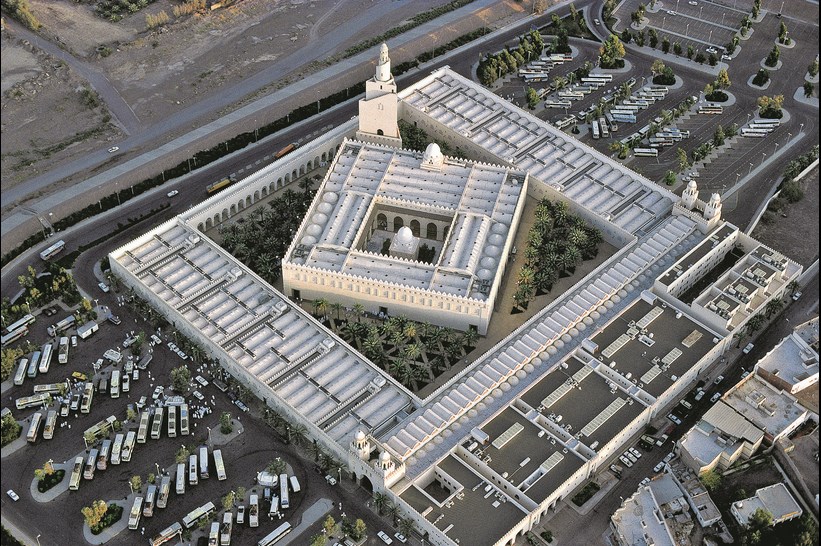
This is the masjid in Yalamlam (also called As-Saadiyah).
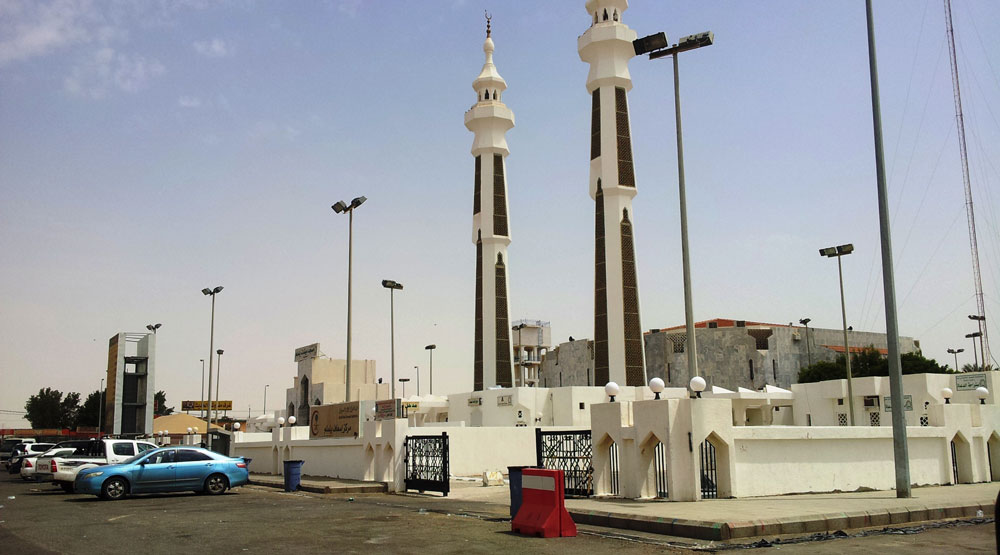
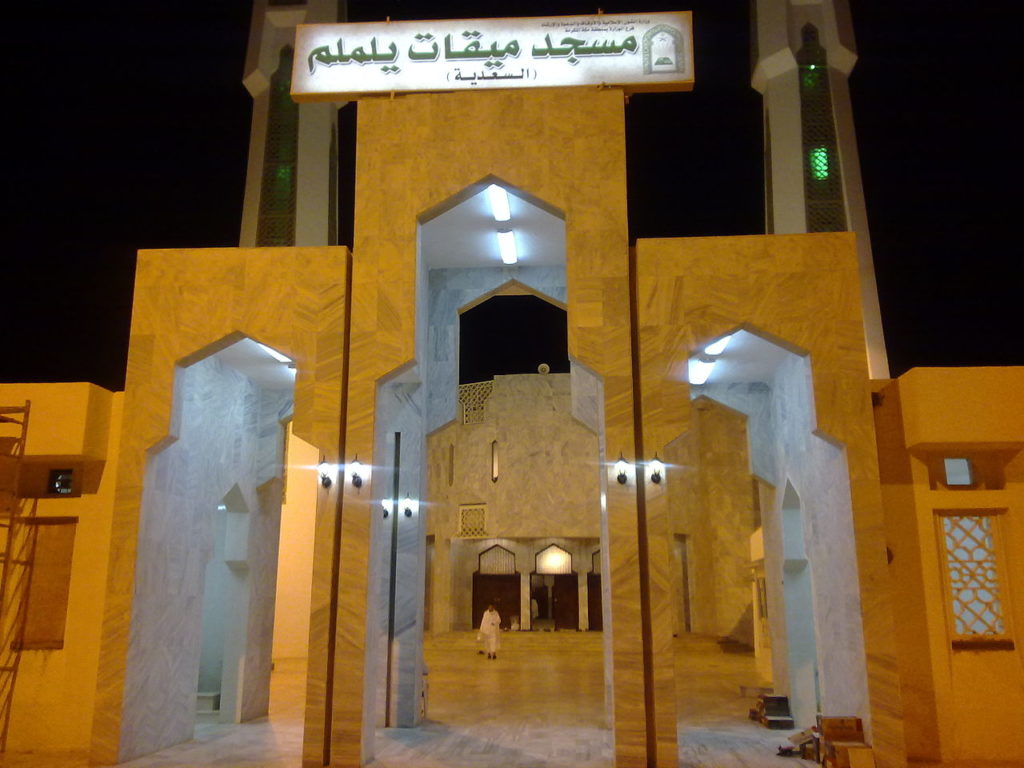
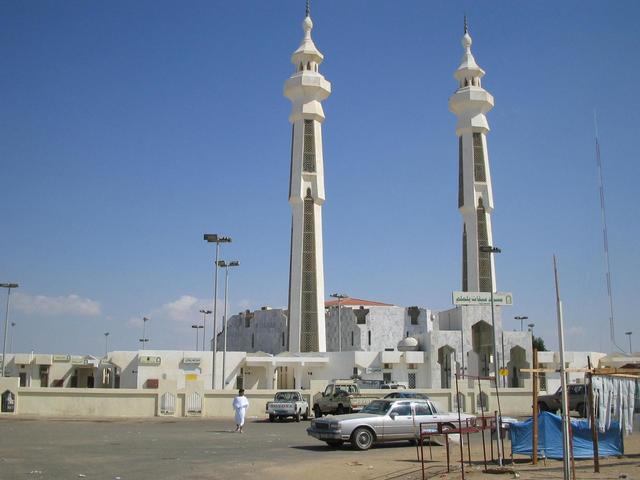
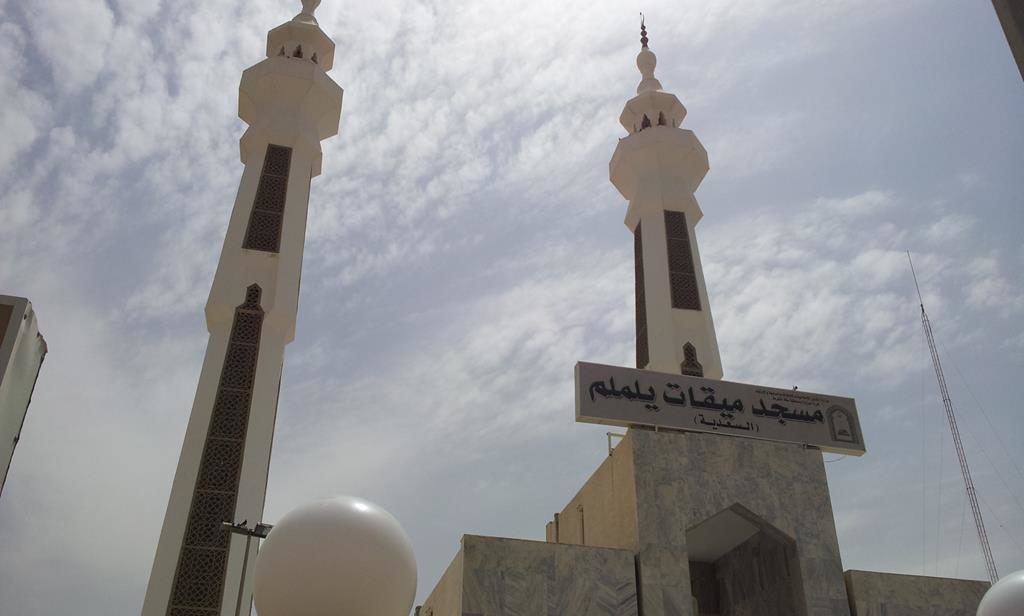
This is the masjid in Qarn Al-Manazil (also known as As-Sayl Al-Kabeer).
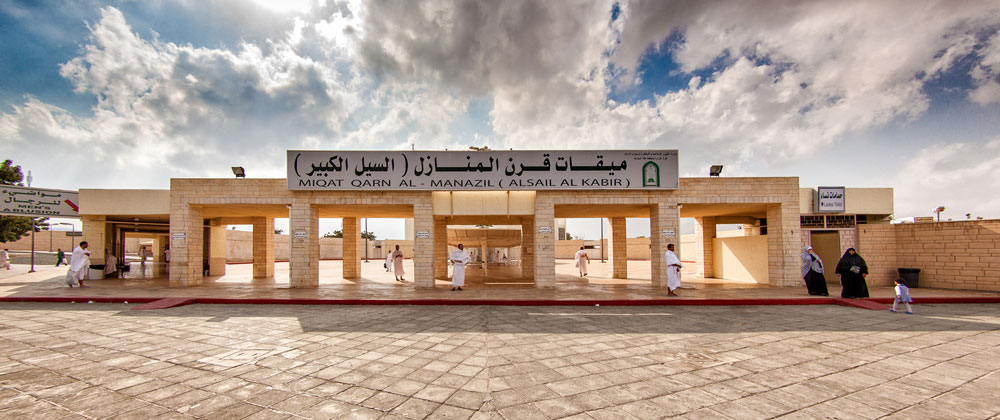
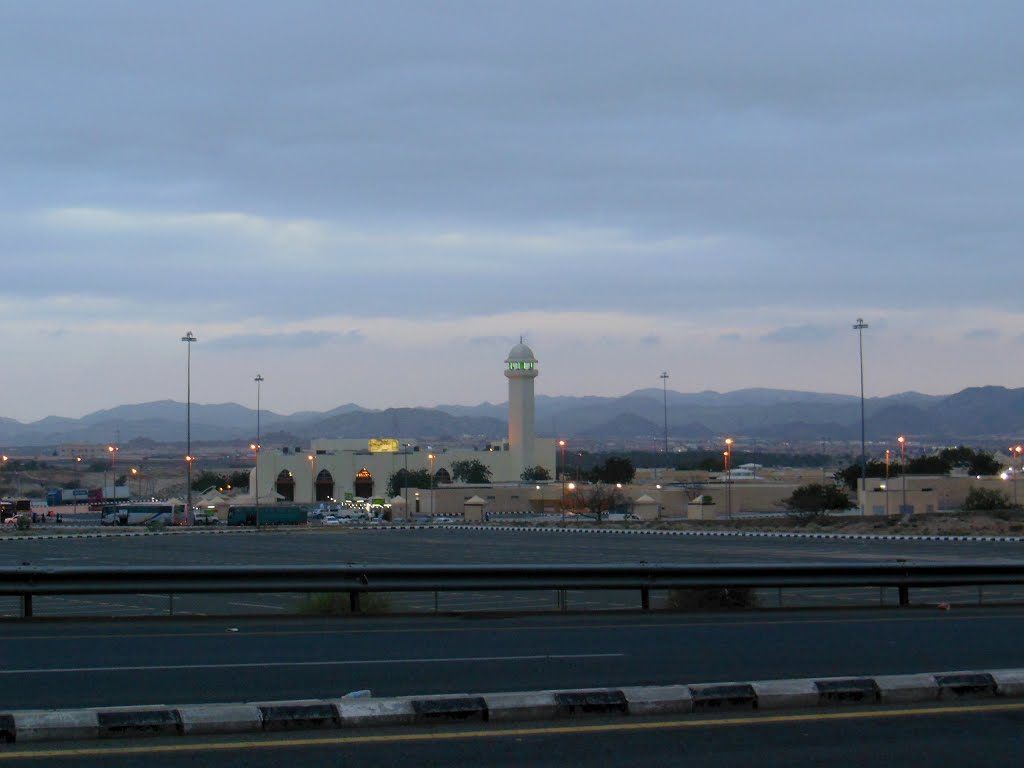
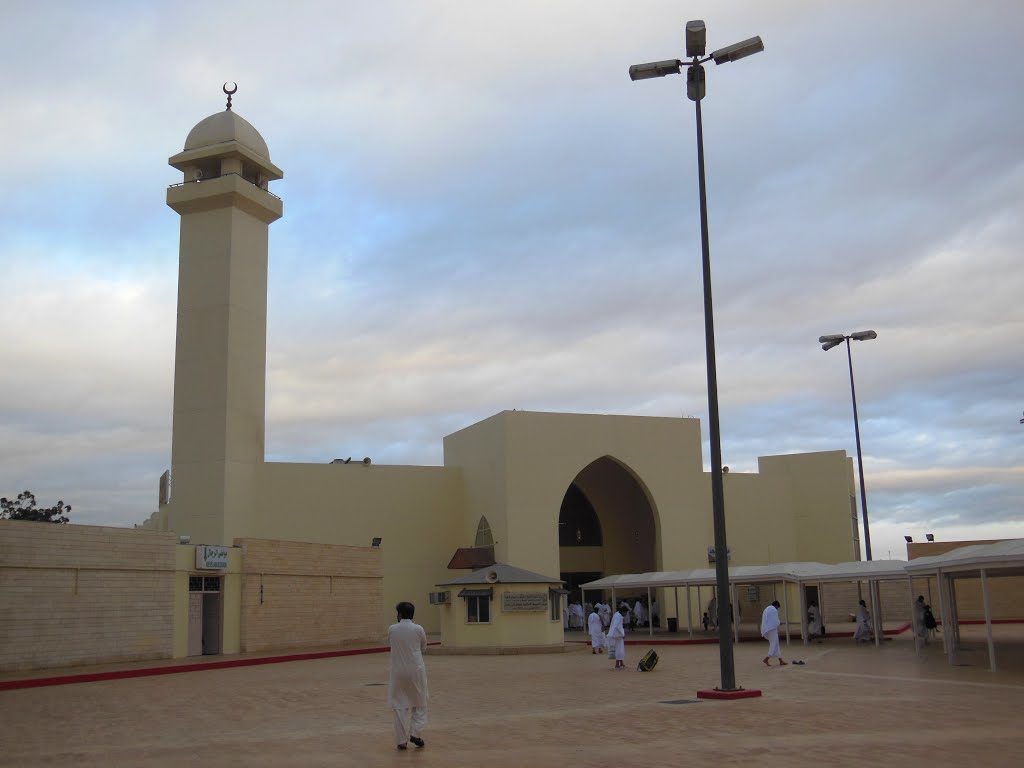
Another meeqat for the people of Najd close to Qarn Al-Manazil is Meeqat Wadi Mahram. Apparently, it isn’t a separate meeqat but a branch of Qarn Al-Manazil. And Allah knows Better.
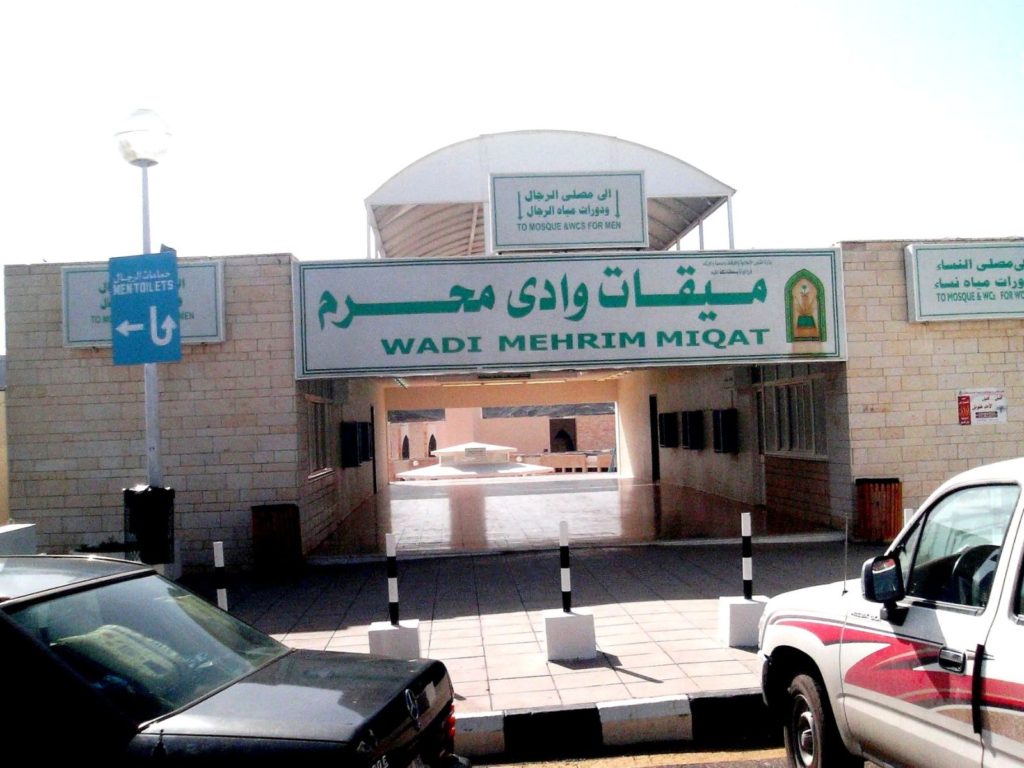
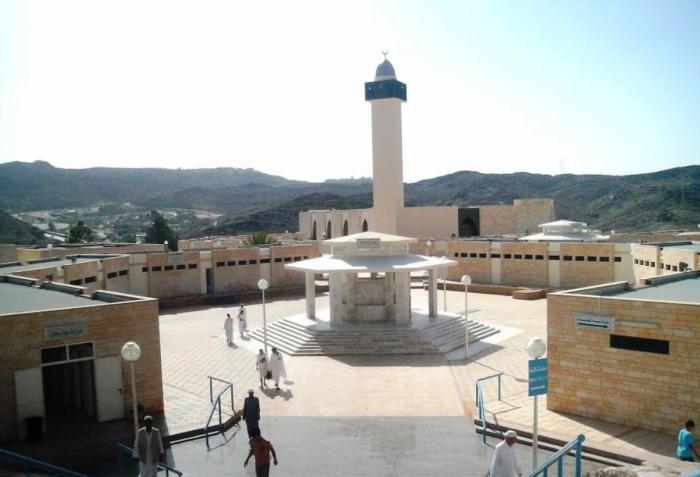
Nowadays, Juhfah is not used and people assume ihram from the nearby town of Raabigh.
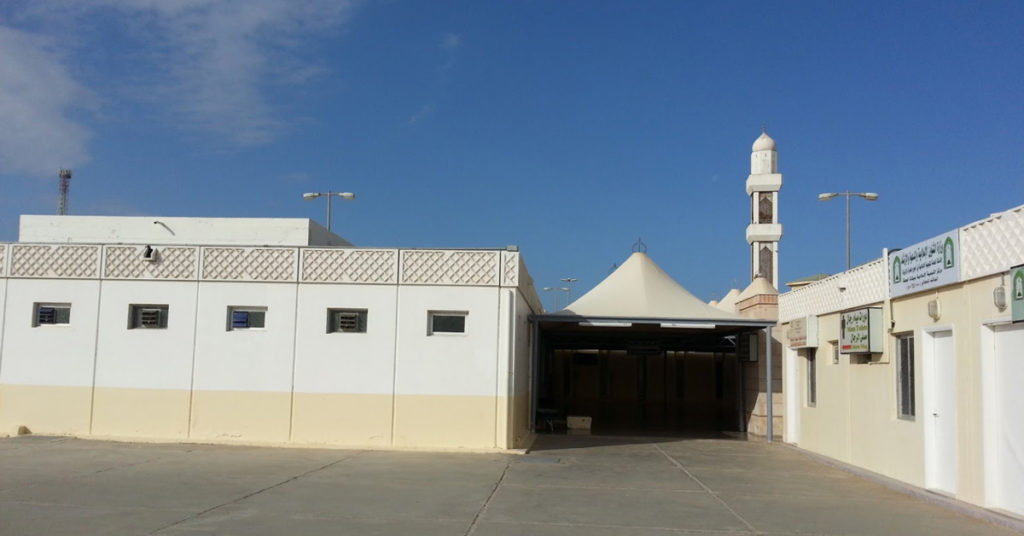
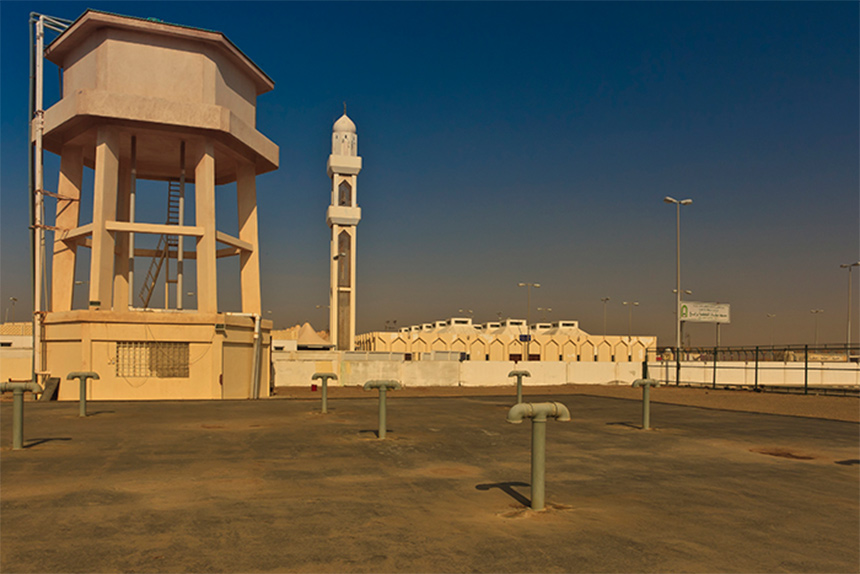
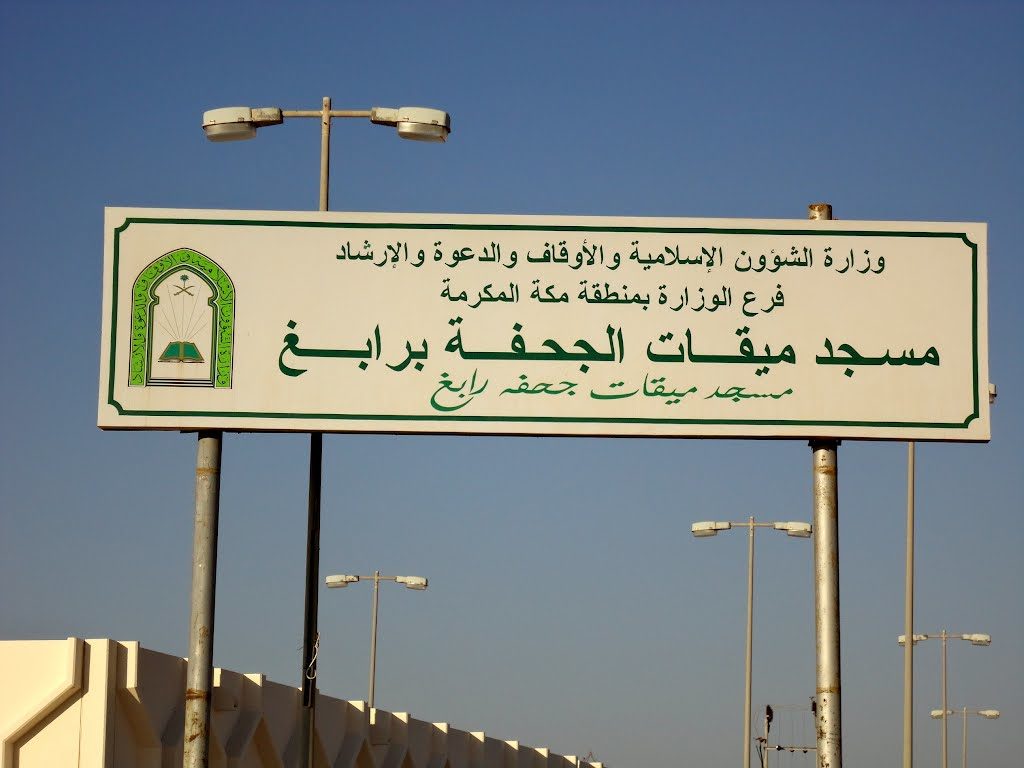
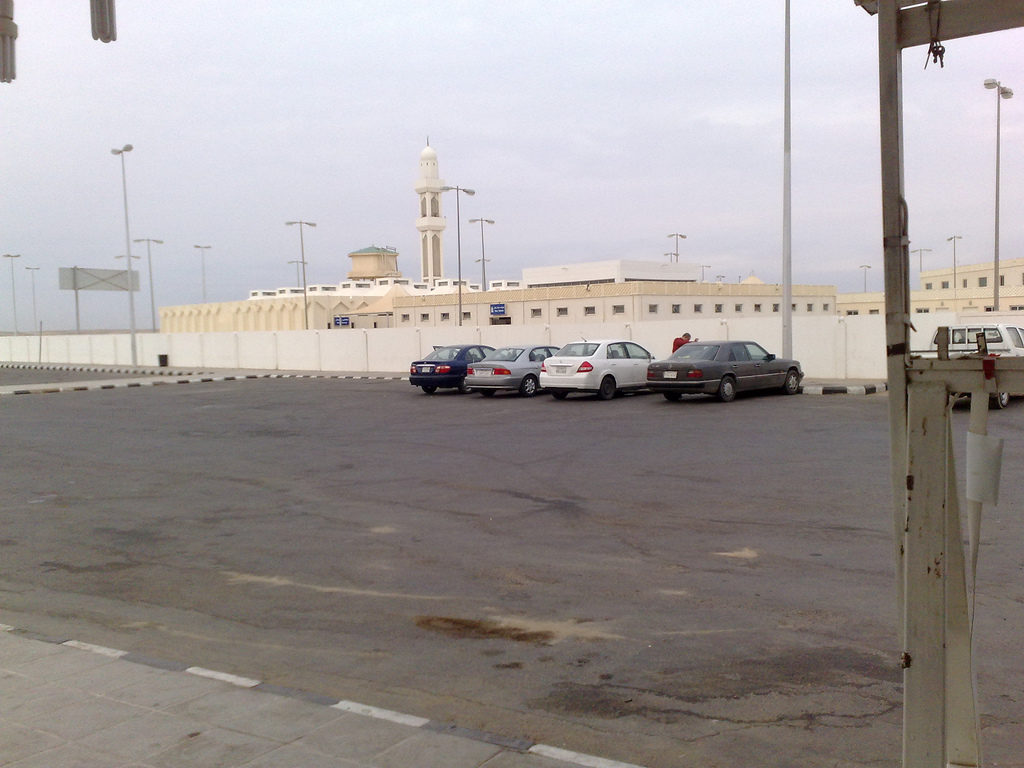
Apart from being currently unused, Juhfah also has another dubious distinction – the Prophet (sallallahu alaihi wasallam) prayed for the fever in Madinah to be diverted to Juhfah (because at that time, it was a non-Muslim land).
عَنْ عَائِشَةَ ـ رضى الله عنها ـ قَالَتْ لَمَّا قَدِمَ رَسُولُ اللَّهِ صلى الله عليه وسلم الْمَدِينَةَ وُعِكَ أَبُو بَكْرٍ وَبِلاَلٌ، فَكَانَ أَبُو بَكْرٍ إِذَا أَخَذَتْهُ الْحُمَّى يَقُولُ كُلُّ امْرِئٍ مُصَبَّحٌ فِي أَهْلِهِ وَالْمَوْتُ أَدْنَى مِنْ شِرَاكِ نَعْلِهِ وَكَانَ بِلاَلٌ إِذَا أُقْلِعَ عَنْهُ الْحُمَّى يَرْفَعُ عَقِيرَتَهُ يَقُولُ أَلاَ لَيْتَ شِعْرِي هَلْ أَبِيتَنَّ لَيْلَةً بِوَادٍ وَحَوْلِي إِذْخِرٌ وَجَلِيلُ وَهَلْ أَرِدَنْ يَوْمًا مِيَاهَ مَجَنَّةٍ وَهَلْ يَبْدُوَنْ لِي شَامَةٌ وَطَفِيلُ قَالَ اللَّهُمَّ الْعَنْ شَيْبَةَ بْنَ رَبِيعَةَ، وَعُتْبَةَ بْنَ رَبِيعَةَ، وَأُمَيَّةَ بْنَ خَلَفٍ، كَمَا أَخْرَجُونَا مِنْ أَرْضِنَا إِلَى أَرْضِ الْوَبَاءِ ثُمَّ قَالَ رَسُولُ اللَّهِ صلى الله عليه وسلم : اللَّهُمَّ حَبِّبْ إِلَيْنَا الْمَدِينَةَ كَحُبِّنَا مَكَّةَ أَوْ أَشَدَّ، اللَّهُمَّ بَارِكْ لَنَا فِي صَاعِنَا، وَفِي مُدِّنَا، وَصَحِّحْهَا لَنَا وَانْقُلْ حُمَّاهَا إِلَى الْجُحْفَةِ . قَالَتْ وَقَدِمْنَا الْمَدِينَةَ، وَهْىَ أَوْبَأُ أَرْضِ اللَّهِ. قَالَتْ فَكَانَ بُطْحَانُ يَجْرِي نَجْلاً. تَعْنِي مَاءً آجِنًا
Narrated Aishah (radiallahu anha): When Allah’s Messenger (sallallahu alaihi wasallam) reached Madinah, Abu Bakr and Bilal became ill. When Abu Bakr’s fever got worse, he would recite (this poetic verse): “Everybody is staying alive with his heople, yet death is nearer to him than his shoe laces.” And Bilal, when his fever deserted him, would recite: “Would that I could stay overnight in avalley wherein I would be surrounded by Idhkhir and Jalil (kinds of goodsmelling grass). Would that one day I could drink the water of the Majanna, and Would that (The two mountains) Shama and Tafil would appear to me!” The Prophet (sallallahu alaihi wasallam) said, “O Allah! Curse Shaibah ibn Rabia and Utbah ibn Rabia and Umaiyah ibn Khalaf as they turned us out of our land to the land of epidemics.” Allah’s Messenger (sallallahu alaihi wasallam) then said, “O Allah! Make us love Madinah as we love Makkah or even more than that. O Allah! Give blessings in our Saa and our Mudd (measures symbolizing food) and make the climate of Madinahsuitable for us, and divert its fever towards Al-Juhfah.” Aishah added: When we reached Madinah, it was the most unhealthy of Allah’s lands, and the valley of Bathan (the valley of Madinah) used to flow with impure colored water. [Sahih Al-Bukhari, Volume 3, Hadeeth No. 113]
Dhatu Irq is now called Adh-Dhareebah and this seems to be the masjid there. And Allah knows Best.
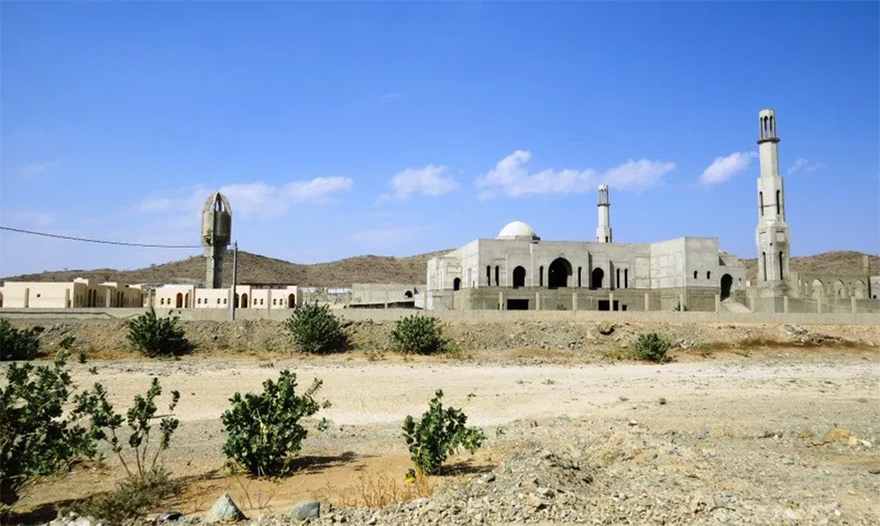
Please note that one is not required to assume ihram in the masjid itself. It can be assumed outside it as these masjids did not exist at the time of the Prophet (sallallahu alaihi wasallam).
The people who come from outside these mawaqeet need to assume ihram in their respective meeqat. Those that reside within them (but outside the precincts of Makkah) can assume ihram from where they are. For example, Jeddah is inside the boundary so the people of Jeddah simply assume ihram from where they are.
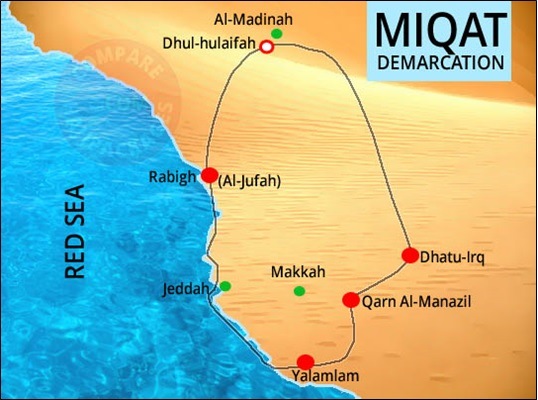
Those who live in Makkah and wish to perform Hajj, can assume ihram from Makkah itself. However, if they wish to perform Umrah, they need to exit the precincts of Makkah and then assume ihram.
عَنِ الأَسْوَدِ، قَالاَ قَالَتْ عَائِشَةُ ـ رضى الله عنها ـ يَا رَسُولَ اللَّهِ يَصْدُرُ النَّاسُ بِنُسُكَيْنِ وَأَصْدُرُ بِنُسُكٍ فَقِيلَ لَهَا : انْتَظِرِي، فَإِذَا طَهُرْتِ فَاخْرُجِي إِلَى التَّنْعِيمِ، فَأَهِلِّي ثُمَّ ائْتِينَا بِمَكَانِ كَذَا، وَلَكِنَّهَا عَلَى قَدْرِ نَفَقَتِكِ، أَوْ نَصَبِكِ
Narrated Al-Aswad: That Aishah (radiallahu anha) said, “O Allah’s Messenger (sallallahu alaihi wasallam)! The people are returning after performing the two Nusuks (i.e. Hajj and Umrah) but I am returning with one only?” He said, “Wait till you become clean from your menses and then go to at-Tanim, assume Ihram (and after performing Umrah) join us at such-and such a place. But it (i.e. the reward of Umrah) is according to your expenses or the hardship (which you will undergo while performing it). [Sahih Al-Bukhari, Volume 3, Hadeeth No. 15]
This is the masjid in Tanim (called Masjid Aisha).
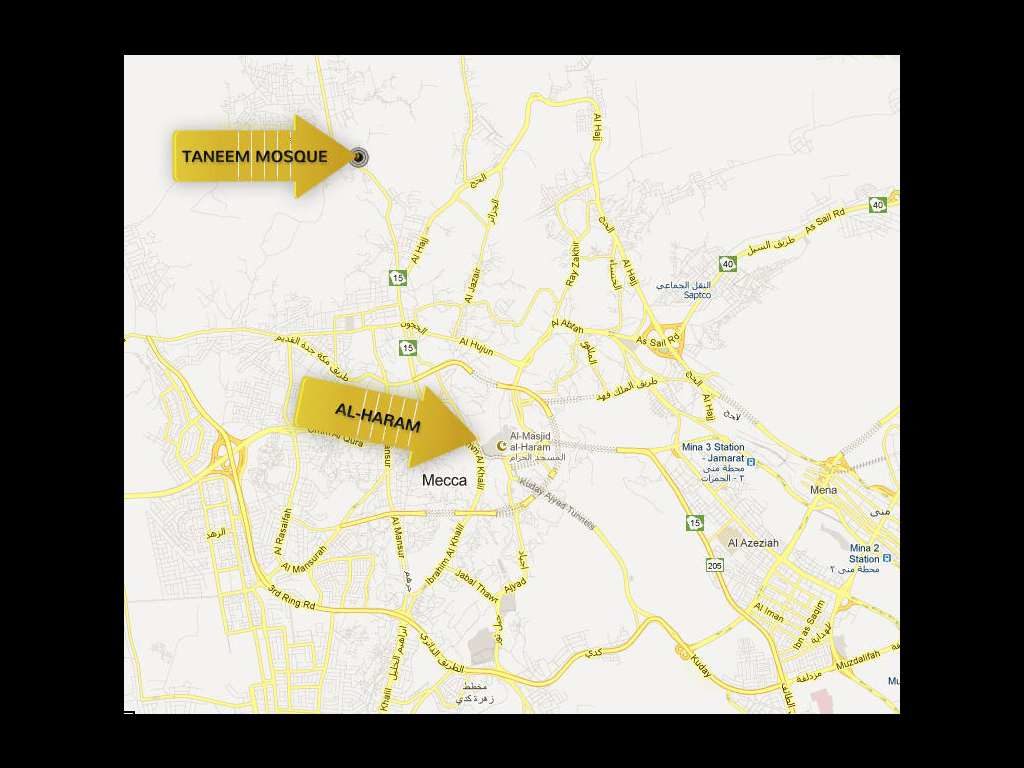

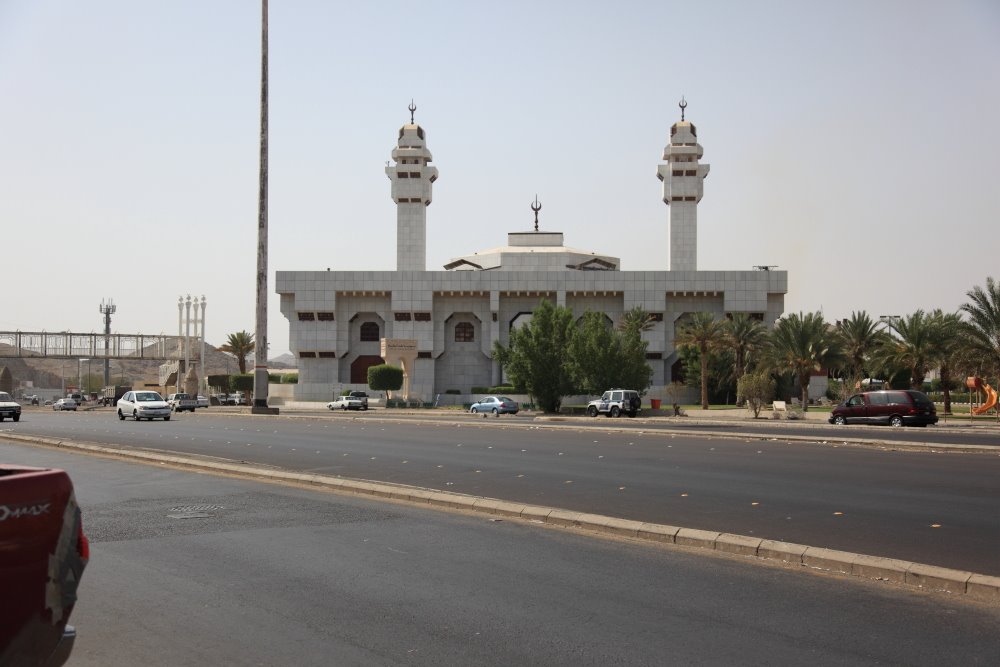
Here are the limits of the Haram of Makkah:
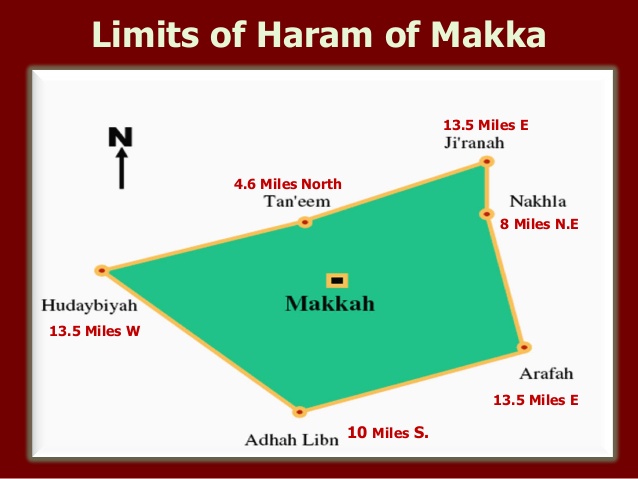
Here is what it looks like:
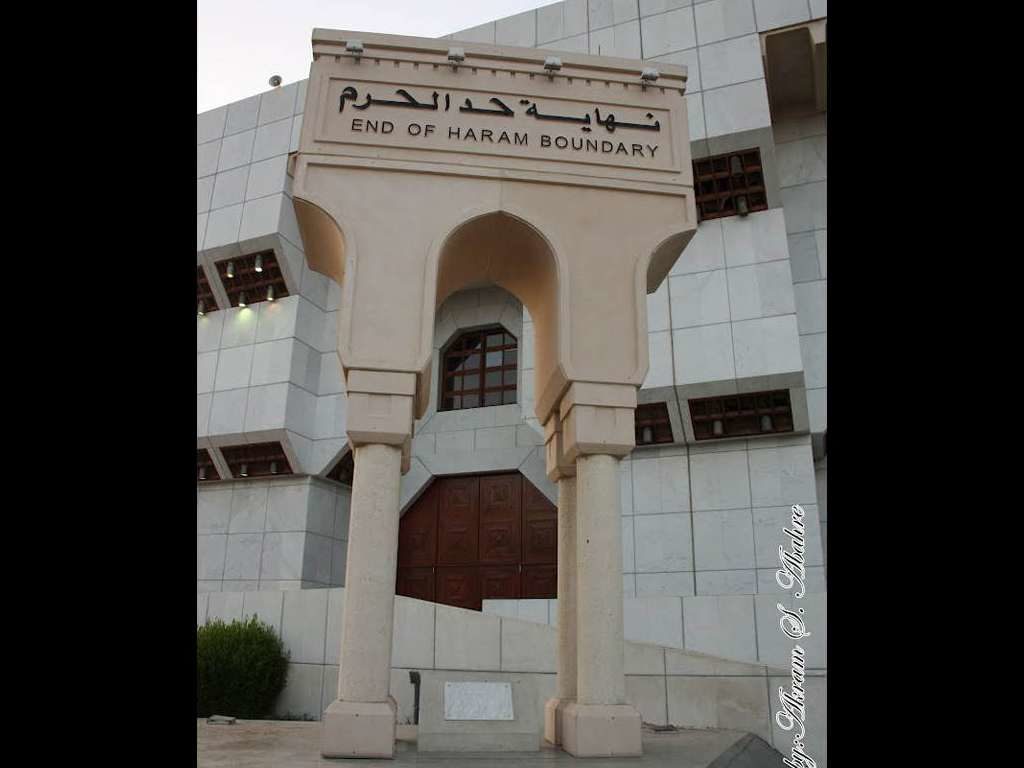
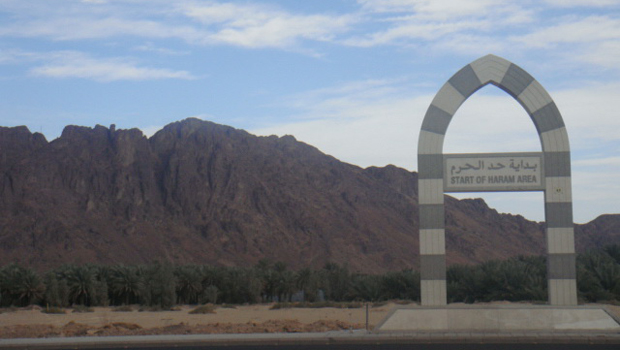

Here’s another diagram showing both the mawaqeet and the limits of the Haram:

So, to summarise:
- If you intend to perform Hajj or Umrah, do not pass the meeqat without assuming Ihram. If one does so, he should return back to the meeqat to assume ihram if possible. If he does not do so, he needs to slaughter an animal. [Please read this fatwa for more details.]
- If a person does not wish to perform either Hajj or Umrah, he can pass through the meeqat without assuming ihram.
- The meeqat that you pass through is the one closest to your path.
- If your home is between Makkah and the meqaat, you assume ihram from where you live.
- If you are in Makkah and want to perform Umrah, you must go outside its precincts and then assume ihram and then return. For Hajj, you may assume ihram from Makkah itself.
- If you do not pass by any meeqat then assume ihram at a place opposite to the meeqat closest to you.
- Those travelling by plane should prepare to go into ihram but should not go into ihram until their plane is parallel to any of the mawaqeet. They should then declare their intention and then start chanting the talbiyah. They should not wait to land at the Jeddah airport, for instance, as this means that the meeqat has already been passed. If this is the case, then an animal needs to be sacrificed.
- Please do not assume ihram before you arrive at the meeqat. If that had been better, then the Prophet (sallallahu alaihi wasallam) would have done it, yet he did not and neither did his Companions (radiallahu anhum).
- One does not have to assume ihram inside the masjid at the meeqat as those masjids did not exist at the time of the Prophet (sallallahu alaihi wasallam). Rather a person can also asume ihram outside the masjid.
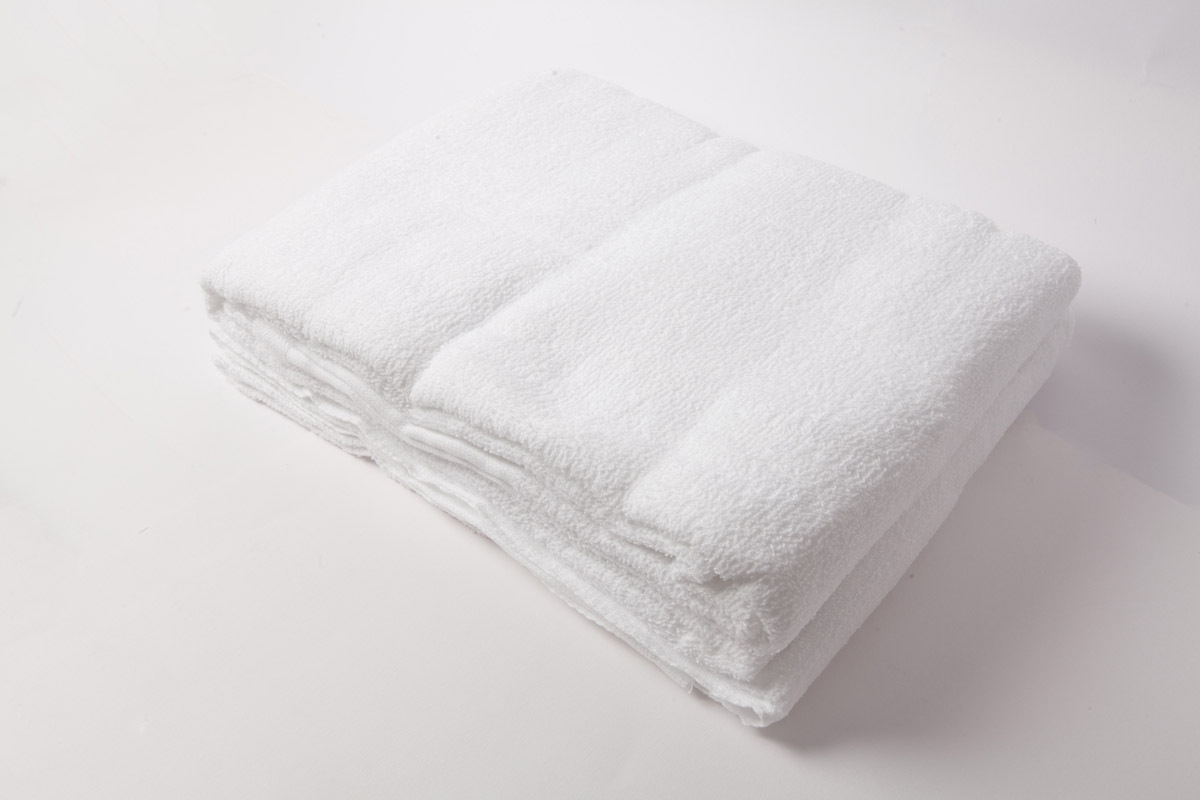
RULES RELATED TO IHRAM
When one assumes ihram, there are three different ways to do so:
- Only for Umrah
- Only for Hajj
- For both Hajj and Umrah
عَنْ عَائِشَةَ، – رضى الله عنها – أَنَّهَا قَالَتْ خَرَجْنَا مَعَ رَسُولِ اللَّهِ صلى الله عليه وسلم عَامَ حَجَّةِ الْوَدَاعِ فَمِنَّا مَنْ أَهَلَّ بِعُمْرَةٍ وَمِنَّا مَنْ أَهَلَّ بِحَجٍّ وَعُمْرَةٍ وَمِنَّا مَنْ أَهَلَّ بِالْحَجِّ وَأَهَلَّ رَسُولُ اللَّهِ صلى الله عليه وسلم بِالْحَجِّ فَأَمَّا مَنْ أَهَلَّ بِعُمْرَةٍ فَحَلَّ وَأَمَّا مَنْ أَهَلَّ بِحَجٍّ أَوْ جَمَعَ الْحَجَّ وَالْعُمْرَةَ فَلَمْ يَحِلُّوا حَتَّى كَانَ يَوْمُ النَّحْرِ
Aishah (radiallahu anha) said: We proceeded with the Messenger of Allah (sallallahu alaihi wasallam) during the year of the Farewell Pilgrimage. There were those amongst us who had put on Ihram for Umrah, and those who had put on Ihram both for Hajj and Umrah, and those amongst us who had put on Ihram for Hajj (only), while the Messenger of Allah (sallallahu alaihi wasallam) had put on Ihram for Hajj (only). He who put on Ihram for Umrah put it off (after performing Umrah), and he who had put on Ihram for Hajj or for both Hajj and Umrah did not put it off before the day of sacrifice (10th of Dhul-Hijjah). [Sahih Muslim, Hadeeth No. 2771]
What is prohibited during ihram
There are a number of things that are prohibited for a muhrim i.e. someone in the state of ihram. Please note the “in the state of ihram” part. Some people get confused and assume that these things are prohibited throughout Hajj. Rather, they are only prohibited for the person while he/she is in a state of ihram, regardless of whether it is for Hajj and Umrah.
The following acts are a list of all the prohibitions along with the associated proofs:
1. Removing hair or clipping nails
A muhrim cannot remove or clip the hair in his / her head or body.
وَأَتِمُّوا الْحَجَّ وَالْعُمْرَةَ لِلَّـهِ ۚ فَإِنْ أُحْصِرْتُمْ فَمَا اسْتَيْسَرَ مِنَ الْهَدْيِ ۖ وَلَا تَحْلِقُوا رُءُوسَكُمْ حَتَّىٰ يَبْلُغَ الْهَدْيُ مَحِلَّهُ ۚ فَمَن كَانَ مِنكُم مَّرِيضًا أَوْ بِهِ أَذًى مِّن رَّأْسِهِ فَفِدْيَةٌ مِّن صِيَامٍ أَوْ صَدَقَةٍ أَوْ نُسُكٍ
And perform properly (i.e. all the ceremonies according to the ways of Prophet Muhammad), the Hajj and Umrah (i.e. the pilgrimage to Makkah) for Allah. But if you are prevented (from completing them), sacrifice a Hady (animal, i.e. a sheep, a cow, or a camel, etc.) such as you can afford, and do not shave your heads until the Hady reaches the place of sacrifice. And whosoever of you is ill or has an ailment in his scalp (necessitating shaving), he must pay a Fidyah (ransom) of either observing Saum (fasts) (three days) or giving Sadaqah (charity – feeding six poor persons) or offering sacrifice (one sheep). [Surah Al-Baqarah (2) : 196]
The verse above mentions hair on the head and by extension, this includes the hair on the body.
However, for the one who has an illness or a disease that requires him to shave his hair, he may do so, along with offering an expiation as mentioned in the above verse and the following hadeeth:
عَنْ كَعْبِ بْنِ عُجْرَةَ، قَالَ كُنَّا مَعَ رَسُولِ اللَّهِ صلى الله عليه وسلم بِالْحُدَيْبِيَةِ وَنَحْنُ مُحْرِمُونَ، وَقَدْ حَصَرَنَا الْمُشْرِكُونَ ـ قَالَ ـ وَكَانَتْ لِي وَفْرَةٌ فَجَعَلَتِ الْهَوَامُّ تَسَّاقَطُ عَلَى وَجْهِي، فَمَرَّ بِي النَّبِيُّ صلى الله عليه وسلم فَقَالَ : أَيُؤْذِيكَ هَوَامُّ رَأْسِكَ . قُلْتُ نَعَمْ. قَالَ وَأُنْزِلَتْ هَذِهِ الآيَةُ {فَمَنْ كَانَ مِنْكُمْ مَرِيضًا أَوْ بِهِ أَذًى مِنْ رَأْسِهِ فَفِدْيَةٌ مِنْ صِيَامٍ أَوْ صَدَقَةٍ أَوْ نُسُكٍ}
Narrated Kab ibn Ujrah (radiallahu anhu): We were in the company of Allah’s Messenger (sallallahu alaihi wasallam) at Al-Hudaibiyah in the state of Ihram and the pagans did not allow us to proceed (to the Kabah). I had thick hair and lice started falling on my face. The Prophet (sallallahu alaihi wasallam) passed by me and said, “Are the lice of your head troubling you?” I replied, Yes.” (The sub-narrator added, “Then the following Divine Verse was revealed:–
فَمَن كَانَ مِنكُم مَّرِيضًا أَوْ بِهِ أَذًى مِّن رَّأْسِهِ فَفِدْيَةٌ مِّن صِيَامٍ أَوْ صَدَقَةٍ أَوْ نُسُكٍ
And whosoever of you is ill or has an ailment in his scalp (necessitating shaving), he must pay a Fidyah (ransom) of either observing Saum (fasts) (three days) or giving Sadaqah (charity – feeding six poor persons) or offering sacrifice (one sheep). [Surah Al-Baqarah (2) : 196]
[Sahih Al-Bukhari, Volume 5, Hadeeth No. 504]
عَنْ عَبْدِ اللَّهِ بْنِ مَعْقِلٍ، قَالَ جَلَسْتُ إِلَى كَعْبِ بْنِ عُجْرَةَ ـ رضى الله عنه ـ فَسَأَلْتُهُ عَنِ الْفِدْيَةِ، فَقَالَ نَزَلَتْ فِيَّ خَاصَّةً، وَهْىَ لَكُمْ عَامَّةً، حُمِلْتُ إِلَى رَسُولِ اللَّهِ صلى الله عليه وسلم وَالْقَمْلُ يَتَنَاثَرُ عَلَى وَجْهِي فَقَالَ : مَا كُنْتُ أُرَى الْوَجَعَ بَلَغَ بِكَ مَا أَرَى أَوْ مَا كُنْتُ أُرَى الْجَهْدَ بَلَغَ بِكَ مَا أَرَى، تَجِدُ شَاةً . فَقُلْتُ لاَ. فَقَالَ : فَصُمْ ثَلاَثَةَ أَيَّامٍ، أَوْ أَطْعِمْ سِتَّةَ مَسَاكِينَ، لِكُلِّ مِسْكِينٍ نِصْفَ صَاعٍ
Narrated Abdullah ibn Maqil: I sat with Kab ibn Ujrah (radiallahu anhu) and asked him about the Fidyah. He replied, “This revelation was revealed concerning my case especially, but it is also for you in general. I was carried to Allah’s Messenger (sallallahu alaihi wasallam) and the lice were falling in great number on my face. The Prophet (sallallahu alaihi wasallam) said, “I have never thought that your ailment (or struggle) has reached to such an extent as I see. Can you afford a sheep?” I replied in the negative. He then said, “Fast for three days, or feed six poor persons each with half a Saa of food.” (1 Saa = 3 Kilograms approx.) [Sahih Al-Bukhari, Volume 3, Hadeeth No. 43]
Also, one cannot clip fingernails or toenails. There is no direct proof of this but it is seen as similar to removing hair as both are from the Sunan Al-Fitrah (the innate nature of man).
عَنْ أَبِي هُرَيْرَةَ ـ رضى الله عنه ـ سَمِعْتُ النَّبِيَّ صلى الله عليه وسلم يَقُولُ : الْفِطْرَةُ خَمْسٌ الْخِتَانُ، وَالاِسْتِحْدَادُ، وَقَصُّ الشَّارِبِ، وَتَقْلِيمُ الأَظْفَارِ، وَنَتْفُ الآبَاطِ
Narrated Abu Hurairah (radiallahu anhu): I heard the Prophet (sallallahu alaihi wasallam) saying. “Five practices are characteristics of the Fitrah: circumcision, shaving the pubic hair, cutting the moustaches short, clipping the nails, and depilating the hair of the armpits.” [Sahih Al-Bukhari, Volume 7, Hadeeth No. 779]
Also, there is a consensus amongst the scholars about this issue, which is a proof in itself.
Apart from that, there are indirect proofs.
ثُمَّ لْيَقْضُوا تَفَثَهُمْ وَلْيُوفُوا نُذُورَهُمْ وَلْيَطَّوَّفُوا بِالْبَيْتِ الْعَتِيقِ
Then let them complete the prescribed duties (Manasik of Hajj) for them, and perform their vows, and circumambulate the Ancient House (the Kabah at Makkah). [Surah Al-Hajj (22) : 29]
Ibn Kathir stated in his explanation of this verse:
ثُمَّ لْيَقْضُوا تَفَثَهُمْ
“(Then let them complete their prescribed duties) Ali ibn Talhah reported that Ibn Abbas said: “This means ending Ihram by shaving one’s head, putting on one’s ordinary clothes, trimming one’s nails and so on.” This was also reported from him by Ataa and Mujahid. This was also the view of Ikrimah and Muhammad bin Kab Al-Qurazi.”
This shows that trimming the nails before completing ihram is not allowed.
Another proof is the action of the one who gives Udhiyah (offer a sacrifice) on Eid Al-Adha.
عَنْ أُمِّ سَلَمَةَ، أَنَّ النَّبِيَّ صلى الله عليه وسلم قَالَ : إِذَا رَأَيْتُمْ هِلاَلَ ذِي الْحِجَّةِ وَأَرَادَ أَحَدُكُمْ أَنْ يُضَحِّيَ فَلْيُمْسِكْ عَنْ شَعْرِهِ وَأَظْفَارِهِ
Umm Salamah (radiallahu anha) reported that Allah’s Messenger (sallallahu alaihi wasallam) said: “When you see the new moon of Dhul-Hijjah, if one of you wants to offer a sacrifice, let him refrain from (cutting) his hair and nails.” [Sahih Muslim, Hadeeth No. 4871]
عَنْ أُمِّ سَلَمَةَ، أَنَّ النَّبِيَّ صلى الله عليه وسلم قَالَ : إِذَا دَخَلَتِ الْعَشْرُ وَأَرَادَ أَحَدُكُمْ أَنْ يُضَحِّيَ فَلاَ يَمَسَّ مِنْ شَعَرِهِ وَبَشَرِهِ شَيْئًا
Umm Salamah (radiallahu anha) reported that Allah’s Messenger (sallallahu alaihi wasallam) said: “When the ten days (of Dhul-Hijjah) begin, if one of you wants to offer a sacrifice, let him not touch his hair or skin with anything.” [Sahih Muslim, Hadeeth No. 4869]
عَنْ أُمِّ سَلَمَةَ، عَنِ النَّبِيِّ صلى الله عليه وسلم قَالَ : مَنْ رَأَى هِلاَلَ ذِي الْحِجَّةِ فَأَرَادَ أَنْ يُضَحِّيَ فَلاَ يَأْخُذْ مِنْ شَعْرِهِ وَلاَ مِنْ أَظْفَارِهِ حَتَّى يُضَحِّيَ
It was narrated from Umm Salamah (radiallahu anha) that the Prophet (sallallahu alaihi wasallam) said: “Whoever sees the new crescent of Dhul-Hijjah and wants to offer a sacrifice, let him not remove any of his hair or nails until he has offered the sacrifice.” [Sunan An-Nasai, Hadeeth No. 4366. Graded “sahih” (authentic) by Al-Albani.]
The person refrains from removing hair and nails as an imitation of the one in Hajj, implying that those in ihram cannot trim their nails either.
2. Wearing certain types of clothing
Men cannot wear stitched clothes.
(“Stitched” means one that has a form. So, if someone uses safety pins on an ihram towel to give it a form (for example, a place for arms), then that garment is considered “stitched”. On the other hand, if there are actual stitches on an ihram towel, then that is not an issue.)
عن عبدِ اللَّهِ بنِ عمرَ رضيَ اللَّهُ عنهما أنَّ رجُلاً قال: يا رسولَ اللَّهِ، ما يلبَسُ المُحرمُ من الثيابِ؟ قال رسولُ اللَّهِ صلى الله عليه وسلّم: لا يَلبَسُ القُمُصَ ولا العَمائمَ ولا السَّراويلاتِ ولا البَرانِسَ ولا الخِفافَ، إلا أحدٌ لا يَجِدُ نعلين فلْيَلْبَسْ خُفَّينِ ولْيَقْطَعهما أسفلَ منَ الكعبينِ. ولا تَلبسوا منَ الثيابِ شيئاً مَسَّهُ زَعفرانٌ أو وَرْسٌ
Narrated Abdullah ibn Umar (radiallahu anhuma): A man asked, “O Allah’s Messenger! What kind of clothes should a Muhrim wear?” Allah’s Messenger (sallallahu alaihi wasallam) replied, “He should not wear a shirt, a turban, trousers, a headcloak or leather socks except if he can find no slippers, he then may wear leather socks after cutting off what might cover the ankles. And he should not wear clothes which are scented with saffron or Wars (kinds of perfumes) .” [Sahih Bukhari, Volume 2, Hadeeth No. 615]
Also, men are not allowed to cover their heads. This is the case even if they die whilst in ihram.
عَنِ ابْنِ عَبَّاسٍ، – رضى الله عنهما – أَنَّ رَجُلاً، أَوْقَصَتْهُ رَاحِلَتُهُ وَهُوَ مُحْرِمٌ فَمَاتَ فَقَالَ رَسُولُ اللَّهِ صلى الله عليه وسلم : اغْسِلُوهُ بِمَاءٍ وَسِدْرٍ وَكَفِّنُوهُ فِي ثَوْبَيْهِ وَلاَ تُخَمِّرُوا رَأْسَهُ وَلاَ وَجْهَهُ فَإِنَّهُ يُبْعَثُ يَوْمَ الْقِيَامَةِ مُلَبِّيًا
Ibn Abbas (radiallahu anhu) reported that there was a person in the state of Ihram whose camel broke his neck and he died. Thereupon the Messenger of Allah (sallallahu alaihi wasallam) said: Bathe him with water mixed (with the leaves of) lote tree and shroud him in his two (pieces of) cloth and cover neither his head nor his face, for he would be raised on the Day of Resurrection pronouncing Talbiya. [Sahih Muslim, Hadeeth No. 2750]
The above hadeeth also implies that the muhrim should not cover his face. However, if there is a need for it, he may do so.
عن عثمان بن عفان: كان يُخَمِّرُ وجهَه و هو مُحرِمٌ
Uthman ibn Affan (radiallahu anhu) narrated that he (sallallahu alaihi wasallam) used to cover his face whilst in ihram. [Silsilah As-Sahihah, Hadeeth No. 2899]
Now, uncovering the head does NOT mean that the pilgrim cannot take shelter under a tree or a tent, or that he needs to ride an open roof bus as some people think!
عَنْ يَحْيَى بْنِ حُصَيْنٍ، عَنْ جَدَّتِهِ أُمِّ الْحُصَيْنِ، قَالَ سَمِعْتُهَا تَقُولُ، حَجَجْتُ مَعَ رَسُولِ اللَّهِ صلى الله عليه وسلم حَجَّةَ الْوَدَاعِ فَرَأَيْتُهُ حِينَ رَمَى جَمْرَةَ الْعَقَبَةِ وَانْصَرَفَ وَهُوَ عَلَى رَاحِلَتِهِ وَمَعَهُ بِلاَلٌ وَأُسَامَةُ أَحَدُهُمَا يَقُودُ بِهِ رَاحِلَتَهُ وَالآخَرُ رَافِعٌ ثَوْبَهُ عَلَى رَأْسِ رَسُولِ اللَّهِ صلى الله عليه وسلم مِنَ الشَّمْسِ – قَالَتْ – فَقَالَ رَسُولُ اللَّهِ صلى الله عليه وسلم قَوْلاً كَثِيرًا ثُمَّ سَمِعْتُهُ يَقُولُ : إِنْ أُمِّرَ عَلَيْكُمْ عَبْدٌ مُجَدَّعٌ – حَسِبْتُهَا قَالَتْ – أَسْوَدُ يَقُودُكُمْ بِكِتَابِ اللَّهِ تَعَالَى فَاسْمَعُوا لَهُ وَأَطِيعُوا
Yahya ibn Husain narrated that he heard his grandmother, Umm al-Husain (radiallahu anha) saying: I performed Hajj along with Allah’s Messenger (sallallahu alaihi wasallam) on the occasion of the Farewell Pilgrimage and saw him when he flung pebbles at Jamrat al-Aqabah and returned while he was riding the camel, and Bilal and Usamah were with him. One of them was leading his camel, while the other was raising his cloth over the head of Allah’s Messenger (sallallahu alaihi wasallam) to protect him from the sun. She (further) said: Allah’s Messenger (sallallahu alaihi wasallam) said so many things, and I heard him saying: If a slave having some limb of his missing and having dark complexion is appointed to govern you according to the Book of Allah the Exalted, listen to him and obey him. [Sahih Muslim, Hadeeth No. 2977]
عَنْ جَعْفَر بْن مُحَمَّدٍ، عَنْ أَبِيهِ، أَنَّ جَابِرَ بْنَ عَبْدِ اللَّهِ، قَالَ سَارَ رَسُولُ اللَّهِ صلى الله عليه وسلم حَتَّى أَتَى عَرَفَةَ فَوَجَدَ الْقُبَّةَ قَدْ ضُرِبَتْ لَهُ بِنَمِرَةَ فَنَزَلَ بِهَا حَتَّى إِذَا زَاغَتِ الشَّمْسُ أَمَرَ بِالْقَصْوَاءِ فَرُحِّلَتْ لَهُ حَتَّى إِذَا انْتَهَى إِلَى بَطْنِ الْوَادِي خَطَبَ النَّاسَ ثُمَّ أَذَّنَ بِلاَلٌ ثُمَّ أَقَامَ فَصَلَّى الظُّهْرَ ثُمَّ أَقَامَ فَصَلَّى الْعَصْرَ وَلَمْ يُصَلِّ بَيْنَهُمَا شَيْئًا
Jafar ibn Muhammad narrated from his father, that Jabir ibn Abdullah (radiallahu anhuma) said: “The Messenger of Allah (sallallahu alaihi wasallam) traveled until he came to Arafah, where he found that the tent had been pitched for him in Namirah, so he stopped there. Then when the sun had passed its zenith he called for Qaswa (the name of the Prophet’s (sallallahu alaihi wasallam) mount which was a she-camel) and she was saddled for him. Then when he reached the bottom of the valley he addressed the people. Then Bilal called the Adhan, then he said the Iqamah and he prayed Zuhr, then he said the Iqamah and prayed Asr, and he did not offer any prayer in between them.” [Sunan An-Nasai, Hadeeth No. 656. Graded “sahih” (authentic) by Al-Albani.]
As for covering ankles, the first hadeeth mentioned in this section implies that it is not allowed. However, another hadeeth shows that it is allowed.
عَنِ ابْنِ عَبَّاسٍ، عَنِ النَّبِيِّ صلى الله عليه وسلم قَالَ : مَنْ لَمْ يَجِدْ إِزَارًا فَلْيَلْبَسْ سَرَاوِيلَ، وَمَنْ لَمْ يَجِدْ نَعْلَيْنِ فَلْيَلْبَسْ خُفَّيْنِ
Narrated Ibn Abbas (radiallahu anhu): The Prophet (sallallahu alaihi wasallam) said, “Whoever cannot get an Izar (lower garment), can wear trousers, and whoever cannot wear sandals can wear Khuffs (socks made from thick fabric or leather).” [Sahih Al-Bukhari, Volume 7, Hadeeth No. 695]
It appears that the first order (to uncover the ankles) was abrogated. And Allah knows Better.
Also, the above hadeeth gives an allowance to wear trousers for the person who cannot find an izar (lower garment).
As for the women, there is clear evidence that they don’t have to cut the khuffs.
عَنْ سَالِم بْن عَبْدِ اللَّهِ، أَنَّ عَبْدَ اللَّهِ، – يَعْنِي ابْنَ عُمَرَ – كَانَ يَصْنَعُ ذَلِكَ – يَعْنِي يَقْطَعُ الْخُفَّيْنِ لِلْمَرْأَةِ الْمُحْرِمَةِ – ثُمَّ حَدَّثَتْهُ صَفِيَّةُ بِنْتُ أَبِي عُبَيْدٍ أَنَّ عَائِشَةَ حَدَّثَتْهَا أَنَّ رَسُولَ اللَّهِ صلى الله عليه وسلم قَدْ كَانَ رَخَّصَ لِلنِّسَاءِ فِي الْخُفَّيْنِ فَتَرَكَ ذَلِكَ
Salim ibn Abdullah narrated that Abdullah – meaning ibn Umar (radiallahu anhuma) – would do that meaning cut the khuffs (leather shoes) of a woman in ihram. Then, Safiyyah bint Abee Ubayd narrated to him that Aishah (radiallahu anha) narrated to her that the Messenger of Allah (sallallahu alaihi wasallam) had allowed women to wear khuffs (i.e. women are not required to cut the shoes). So he stopped doing that. [Sunan Abee Dawood, Hadeeth No. 1831. Graded “hasan” (good) by Al-Albani.]
As for women, they cannot cover their faces with a niqaab or wear gloves.
عَنْ عَبْدِ اللَّهِ بْنِ عُمَرَ ـ رضى الله عنهما ـ قَالَ قَامَ رَجُلٌ فَقَالَ يَا رَسُولَ اللَّهِ مَاذَا تَأْمُرُنَا أَنْ نَلْبَسَ مِنَ الثِّيَابِ فِي الإِحْرَامِ فَقَالَ النَّبِيُّ صلى الله عليه وسلم : لاَ تَلْبَسُوا الْقَمِيصَ وَلاَ السَّرَاوِيلاَتِ وَلاَ الْعَمَائِمَ، وَلاَ الْبَرَانِسَ إِلاَّ أَنْ يَكُونَ أَحَدٌ لَيْسَتْ لَهُ نَعْلاَنِ، فَلْيَلْبَسِ الْخُفَّيْنِ، وَلْيَقْطَعْ أَسْفَلَ مِنَ الْكَعْبَيْنِ، وَلاَ تَلْبَسُوا شَيْئًا مَسَّهُ زَعْفَرَانٌ، وَلاَ الْوَرْسُ، وَلاَ تَنْتَقِبِ الْمَرْأَةُ الْمُحْرِمَةُ وَلاَ تَلْبَسِ الْقُفَّازَيْنِ
Narrated Abdullah ibn Umar (radiallahu anhuma): A person stood up and asked, “O Allah’s Messenger! What clothes may be worn in the state of Ihram?” The Prophet (sallallahu alaihi wasallam) replied, “Do not wear a shirt or trousers, or any headgear (e.g. a turban), or a hooded cloak; but if somebody has no shoes he can wear leather stockings provided they are cut short off the ankles, and also, do not wear anything perfumed with Wars or saffron, and the Muhrima (a woman in the state of Ihram) should not cover her face, or wear gloves.” [Sahih Al-Bukhari, Volume 3, Hadeeth No. 64]
However, the face can be covered by other than a niqaab or burqa (also a type of face veil) but only when there are non-mahram men around, and the hands can be covered by other than gloves.
One of the proofs for this is the action of Aishah (radiallahu anha), the wife of the Messenger of Allah (sallallahu alaihi wasallam).
عَنْ عَائِشَةَ، قَالَتْ كَانَ الرُّكْبَانُ يَمُرُّونَ بِنَا وَنَحْنُ مَعَ رَسُولِ اللَّهِ صلى الله عليه وسلم مُحْرِمَاتٌ فَإِذَا حَاذَوْا بِنَا سَدَلَتْ إِحْدَانَا جِلْبَابَهَا مِنْ رَأْسِهَا إِلَى وَجْهِهَا فَإِذَا جَاوَزُونَا كَشَفْنَاهُ
Narrated Aishah (radiallahu anha): Riders would pass us when we accompanied the Messenger of Allah (sallallahu alaihi wasallam) while we were in the sacred state (wearing ihram). When they came by us, one of us would let down her outer garment from her head over her face, and when they had passed on, we would uncover our faces. [Sunan Abee Dawood, Hadeeth No. 1833.]
The above hadeeth was graded “daeef” (weak) by Shaikh Al-Albani (rahimahullah) in his checking of Sunan Abee Dawood. However, he seems to have changed his mind because he authenticated a similar narration in his other books.
There is another narration in Musnad Ahmad that is similar to the one above.
عن عائشة ، قالت: كان الركبان يمرون بنا ونحن مع رسول الله صلى الله عليه وسلّم محرمات، فإذا حاذوا بنا أسدلت إحدانا جلبابها من رأسها على وجهها فإذا جاوزنا كشفناه
Narrated Aishah (radiallahu anha): Riders would pass us when we accompanied the Messenger of Allah (sallallahu alaihi wasallam) while we were in the sacred state (wearing ihram). When they came by us, one of us would let down her outer garment from her head over her face, and when they had passed on, we would uncover our faces. [Musnad Ahmad, Hadeeth No. 24021]
Now, Shaikh Shuaib Al-Arnaut (along with some others who worked on the book with him) said that the chain of this narration was weak. However, they mentioned other authentic chains which prove that a woman can cover her face during Hajj (with something other than a niqab and burqa). For those who can understand Arabic, you can read the comments under this narration here.
Some of the narrations that they authenticated are as follows:
عَنْ فَاطِمَةَ بِنْتِ الْمُنْذِرِ، أَنَّهَا قَالَتْ كُنَّا نُخَمِّرُ وُجُوهَنَا وَنَحْنُ مُحْرِمَاتٌ وَنَحْنُ مَعَ أَسْمَاءَ بِنْتِ أَبِي بَكْرٍ الصِّدِّيقِ
Fatima bint al-Mundhir said, “We used to veil our faces when we were in ihram in the company of Asma bint Abi Bakr as-Siddiq.” [Muwatta Malik, Hadeeth No. 919 (Arabic version – the narration of Yahya ibn Yahya). The English numbering can be found here. Shuaib Al-Arnaut said that its isnaad (chain) was “sahih” (authentic).]
(Please note that the Arabic “nukhamir” implies that they covered their faces with a khimar and not a niqab.)
عن مُعَاذَةَ عن عائشةَ رضي الله عنها قالتْ: المُحْرِمَةُ تَلْبَسُ من الثيابِ ما شاءَتْ، إلاَّ ثوباً مَسَّهُ وَرْسٌ أو زَعْفَرَانٌ، ولا تَتَبَرْقَعُ ولا تَلَثَّمُ، وتَسْدُلُ الثوبَ على وَجْهِهَا إنْ شاءَتْ
Muadhah narrated that Aishah (radiallahu anha) said: A woman in ihram can wear whatever clothes she wishes except clothes scented with wars (a type of perfume) and saffron and she should not wear the burqa (a type of face veil) or veil (her face) and she may put (part of) her garment over her face if she wishes. [Sunan Al-Kubra of Al-Baihaqi, Hadeeth No. 9122. Shaikh Shuaib Al-Arnaut said that its isnaad (chain) was “sahih” (authentic). Shaikh Al-Albani said the same thing.]
Another proof is the following narration:
عن فاطمة بنت المنذر عن أسماء قالت:كنا نغطي وجوهنا من الرجال وكنا نمتشط قبل ذلك
Fatimah bint Mundhir narrated that Asma (radiallahu anha) said: We used to cover our faces in the presence of (non-mahram) men, and we used to comb our hair before that. [Sahih Ibn Khuzaimah, Hadeeth No. 2690. Shaikh Mustafa Al-Adhami said that its isnaad (chain) was “sahih” (authentic).]
This hadeeth is about ihram as proven by the fact that the author (Imam Ibn Khuzaimah) mentioned this as a proof that a women in ihram could cover her face in front of men. Apart from that, another narration explicitly states that they were in ihram at the time:
عن فاطمة بنت المنذر ، عن أسماء بنت أبي بكر رضي الله عنهما قالت: كنا نغطي وجوهنا من الرجال وكنا نمتشط قبل ذلك في الإحرام
Fatimah bint Mundhir narrated that Asma (radiallahu anha) said: We used to cover our faces in the presence of (non-mahram) men, and we used to comb our hair before that in ihram. [Mustadrak Al-Haakim, Hadeeth No. 1670. Shaikh Al-Albani said that it was upon the condition of (Imam) Muslim.]
So, all these narrations prove that a woman can cover her face in ihram – just not with the niqab or burqa. Please note that the face covering should not be something that a woman ties around the head. Also, there is no harm if the covering touches the face.
Shaikh Saalih Al-Munajjid makes a good point about the prohibition of niqab and gloves in ihram:
“The prohibition on women wearing the niqab and gloves means that they should not wear a separate garment that is made to fit the face and hands. It does not mean that they should not cover them at all.
This is similar to the ruling of the Messenger (blessings and peace of Allah be upon him) forbidding the man in ihram to wear a chemise or pants. This does not mean that the man should remain naked; rather he should cover his body with the izaar (waist-wrapper or lower garments) and rida’ (upper garment).
Men are prohibited to wear garments that are made to fit the body, and they are instructed to cover their bodies with other kinds of garments. Similarly, women are prohibited to wear the niqab and gloves, but they should still cover their faces and hands with something else.”
You can read the entire article here.
Another article that discusses this issue can be found here.
3. Putting on perfume on one’s body or clothes
It is recommended for the men to put on perfume on their heads and bodies (but not their ihram clothes) before they enter the state of ihram.
عَنْ عَائِشَةَ، – رضى الله عنها – قَالَتْ كُنْتُ أُطَيِّبُ رَسُولَ اللَّهِ صلى الله عليه وسلم بِأَطْيَبِ مَا أَقْدِرُ عَلَيْهِ قَبْلَ أَنْ يُحْرِمَ ثُمَّ يُحْرِمُ
Aishah (radiallahu anha)) reported: I applied the best perfume, which I could get, to the Messenger of Allah (sallallahu alaihi wasallam) before entering upon the state of Ihram (and after this) he put on the Ihram. [Sahih Muslim, Hadeeth No. 2686]
عَنْ عَائِشَةَ، قَالَتْ كُنْتُ أُطَيِّبُ رَسُولَ اللَّهِ صلى الله عليه وسلم بِأَطْيَبِ مَا كُنْتُ أَجِدُ مِنَ الطِّيبِ حَتَّى أَرَى وَبِيصَ الطِّيبِ فِي رَأْسِهِ وَلِحْيَتِهِ قَبْلَ أَنْ يُحْرِمَ
It was narrated that Aishah (radiallahu anha) said:”I used to put perfume on the Messenger of Allah (sallallahu alaihi wasallam) using the best perfume I could find, until I saw the perfume glistening on his head and in his beard, before he entered Ihram. [Sunan An-Nasai, Hadeeth No. 2702. Graded “sahih” (authentic) by Al-Albani.]
However, during ihram, perfume cannot be applied – not on the body nor the clothes.
عن عبدِ اللَّهِ بنِ عمرَ رضيَ اللَّهُ عنهما أنَّ رجُلاً قال: يا رسولَ اللَّهِ، ما يلبَسُ المُحرمُ من الثيابِ؟ قال رسولُ اللَّهِ صلى الله عليه وسلّم: لا يَلبَسُ القُمُصَ ولا العَمائمَ ولا السَّراويلاتِ ولا البَرانِسَ ولا الخِفافَ، إلا أحدٌ لا يَجِدُ نعلين فلْيَلْبَسْ خُفَّينِ ولْيَقْطَعهما أسفلَ منَ الكعبينِ. ولا تَلبسوا منَ الثيابِ شيئاً مَسَّهُ زَعفرانٌ أو وَرْسٌ
Narrated Abdullah ibn Umar (radiallahu anhuma): A man asked, “O Allah’s Messenger! What kind of clothes should a Muhrim wear?” Allah’s Messenger (sallallahu alaihi wasallam) replied, “He should not wear a shirt, a turban, trousers, a headcloak or leather socks except if he can find no slippers, he then may wear leather socks after cutting off what might cover the ankles. And he should not wear clothes which are scented with saffron or Wars (kinds of perfumes) .” [Sahih Bukhari,Volume 2, Hadeeth No. 615]
عن عبدِ اللَّهِ بنِ عبَّاسٍ رضيَ اللَّهُ عنهما قال: انطلَقَ النبيُّ صلى الله عليه وسلّم من المدينةِ بعدَما تَرَجَّلَ وادَّهنَ ولَبِسَ إزارَهُ ورِداءهُ هو وأصحابهُ، فلمْ يَنْهَ عن شيءٍ منَ الأرديةِ والأُزُرِ تُلبَسُ إلا المزَعفرَةَ التي ترْدَعُ على الجلدِ، فأصبحَ بذي الحُليفةِ، ركبَ راحلتهُ حتى استوَى على البيداءِ أهلَّ هوَ وأصحابهُ، وقَلَّدَ بدَنَتَهُ، وذلِكَ لخمسٍ بَقِينَ من ذي القَعدة، فقدِم مكةَ لأربعِ لَيالٍ خَلَونَ من ذي الحَجَّةِ، فطافَ بالبيتِ، وسَعى بينَ الصَّفا والمَروَةِ، ولم يَحِلَّ من أجلِ بدنهِ لأنهُ قَلَّدَها. ثمَّ نَزَلَ بأعلى مكةَ عندَ الحَجُونِ وهوَ مُهِلٌّ بالحجِّ، ولم يَقرَبِ الكعبةَ بعدَ طوافهِ بها حتى رجعَ مِن عَرَفةَ، وأمرَ أصحابهُ أن يَطوَّفوا بالبيتِ وبينَ الصفا والمَروةِ، ثمَّ يُقَصِّروا من رُؤوسِهم ثمَّ يُحِلّوا، وذلِكَ لمن لم يَكن معهُ بدَنَة قَلَّدَها، ومَن كانت معهُ امرأتُهُ فهيَ لهُ حَلالٌ والطِّيبُ والثيابُ
Narrated Abdullah ibn Abbas (radiallahu anhuma): The Prophet (sallallahu alaihi wasallam) with his companions started from Madinah after combing and oiling his hair and putting on two sheets of lhram (upper body cover and waist cover). He did not forbid anyone to wear any kind of sheets except the ones colored with saffron because they may leave the scent on the skin. And so in the early morning, the Prophet (sallallahu alaihi wasallam) mounted his Mount while in Dhul-Hulaifah and set out till they reached Baida, where he and his companions recited Talbiya, and then they did the ceremony of Taqlid (which means to put the colored garlands around the necks of the Budn (camels for sacrifice). And all that happened on the 25th of Dhul-Qadah. And when he reached Makkah on the 4th of Dhul-Hijjah he performed the Tawaf round the Kabah and performed the Tawaf between Safa and Marwah. And as he had a Badana (sacrificial animal) and had garlanded it, he did not finish his Ihram. He proceeded towards the highest places of Makkah near Al-Hujun and he was assuming the Ihram for Hajj and did not go near the Kabah after he performed Tawaf (round it) till he returned from Arafah. Then he ordered his companions to perform the Tawaf round the Kabah and then the Tawaf of Safa and Marwah, and to cut short the hair of their heads and to finish their Ihram. And that was only for those people who had not garlanded Budn. Those who had their wives with them were permitted to contact them (have sexual intercourse), and similarly perfume and (ordinary) clothes were permissible for them. [Sahih Bukhari, Volume 2, Hadeeth No. 617]
عَنْ صَفْوَان بْن يَعْلَى بْنِ أُمَيَّةَ، عَنْ أَبِيهِ، أَنَّ رَجُلاً، أَتَى النَّبِيَّ صلى الله عليه وسلم وَهُوَ بِالْجِعْرَانَةِ وَعَلَيْهِ جُبَّةٌ وَعَلَيْهِ أَثَرُ الْخَلُوقِ أَوْ قَالَ صُفْرَةٍ فَقَالَ كَيْفَ تَأْمُرُنِي أَنْ أَصْنَعَ فِي عُمْرَتِي فَأَنْزَلَ اللَّهُ عَلَى النَّبِيِّ صلى الله عليه وسلم، فَسُتِرَ بِثَوْبٍ وَوَدِدْتُ أَنِّي قَدْ رَأَيْتُ النَّبِيَّ صلى الله عليه وسلم وَقَدْ أُنْزِلَ عَلَيْهِ الْوَحْىُ. فَقَالَ عُمَرُ تَعَالَ أَيَسُرُّكَ أَنْ تَنْظُرَ إِلَى النَّبِيِّ صلى الله عليه وسلم وَقَدْ أَنْزَلَ اللَّهُ الْوَحْىَ قُلْتُ نَعَمْ. فَرَفَعَ طَرَفَ الثَّوْبِ، فَنَظَرْتُ إِلَيْهِ لَهُ غَطِيطٌ وَأَحْسِبُهُ قَالَ كَغَطِيطِ الْبَكْرِ. فَلَمَّا سُرِّيَ عَنْهُ قَالَ : أَيْنَ السَّائِلُ عَنِ الْعُمْرَةِ اخْلَعْ عَنْكَ الْجُبَّةَ وَاغْسِلْ أَثَرَ الْخَلُوقِ عَنْكَ، وَأَنْقِ الصُّفْرَةَ، وَاصْنَعْ فِي عُمْرَتِكَ كَمَا تَصْنَعُ فِي حَجِّكِ
Narrated Safwan ibn Yala ibn Umaiyah from his father who said: “A man came to the Prophet (sallallahu alaihi wasallam) while he was at Jiranah. The man was wearing a cloak which had traces of Khaluq or Sufra (a kind of perfume). The man asked (the Prophet (sallallahu alaihi wasallam) ), ‘What do you order me to perform in my Umrah?’ So, Allah inspired the Prophet (sallallahu alaihi wasallam) divinely and he was screened by a place of cloth. I wished to see the Prophet (sallallahu alaihi wasallam) being divinely inspired. Umar said to me, ‘Come! Will you be pleased to look at the Prophet (sallallahu alaihi wasallam) while Allah is inspiring him?’ I replied in the affirmative. Umar lifted one corner of the cloth and I looked at the Prophet (sallallahu alaihi wasallam) who was snoring. (The sub-narrator thought that he said: The snoring was like that of a camel). When that state was over, the Prophet (sallallahu alaihi wasallam) asked, “Where is the questioner who asked about Umrah? Put off your cloak and wash away the traces of Khaluq from your body and clean the Sufra (yellow color) and perform in your Umrah what you perform in your Hajj (i.e. the Tawaf round the Kabah and the Saee between Safa and Marwah).” [Sahih Al-Bukhari, Volume 3, Hadeeth No. 17]
What about the women, one may ask? Well, it’s always prohibited for a woman to wear perfume around non-mahram men.
عَنْ أَبِي هُرَيْرَةَ، قَالَ لَقِيَتْهُ امْرَأَةٌ وَجَدَ مِنْهَا رِيحَ الطِّيبِ يُنْفَحُ وَلِذَيْلِهَا إِعْصَارٌ فَقَالَ يَا أَمَةَ الْجَبَّارِ جِئْتِ مِنَ الْمَسْجِدِ قَالَتْ نَعَمْ . قَالَ وَلَهُ تَطَيَّبْتِ قَالَتْ نَعَمْ . قَالَ إِنِّي سَمِعْتُ حِبِّي أَبَا الْقَاسِمِ صلى الله عليه وسلم يَقُولُ : لاَ تُقْبَلُ صَلاَةٌ لاِمْرَأَةٍ تَطَيَّبَتْ لِهَذَا الْمَسْجِدِ حَتَّى تَرْجِعَ فَتَغْتَسِلَ غُسْلَهَا مِنَ الْجَنَابَةِ
It was narrated from Ubaid, the freed slave of Abu Ruhm, from Abu Hurairah (radiallahu anhu); he said he met a woman and noticed the smell of perfume coming from her, and her hem was dragging and stirring up a cloud of dust. He said: “O slave of Al-Jabbar (the Compeller), have you come from the masjid?” She said “Yes.” He said: “And you put on perfume for that?” She said: “Yes”. He said: “I heard my beloved, Abu Qasim (sallallahu alaihi wasallam) say: ‘No prayer will be accepted from a woman who puts on perfume to visit this masjid, until she goes back and performs ghusl (bath) like that done for sexual impurity. [Sunan Abee Dawood, Hadeeth No. 4174. Graded “sahih” (authentic) by Al-Albani.]
Subhan Allah, if this the case when she goes to the masjid, then what about other than it? And this isn’t the only thing she needs to worry about.
عَنِ الأَشْعَرِيِّ، قَالَ قَالَ رَسُولُ اللَّهِ صلى الله عليه وسلم : أَيُّمَا امْرَأَةٍ اسْتَعْطَرَتْ فَمَرَّتْ عَلَى قَوْمٍ لِيَجِدُوا مِنْ رِيحِهَا فَهِيَ زَانِيَةٌ
It was narrated that Al-Ashari said: “The Messenger of Allah (sallallahu alaihi wasallam) said: ‘Any woman who puts on perfume then passes by people so that they can smell her fragrance then she is an adulteress.'” [Sunan An-Nasai, Hadeeth No. 5129. Graded “hasan” (good) by Al-Albani.]
So, all the sisters need to be very, very careful about this issue. Unfortunately, many people don’t even know about this prohibition.
Now, what about the case of a person in ihram using scented soap or shampoo? Well, Shaikh Ibn Uthaimeen (rahimahullah) stated that it was okay to used perfumed soap. He also permitted the use of scented shampoos.
However, I would personally advise people to avoid using scented products and buy the unscented ones available for pilgrims, so that they don’t fall into disputed issues.
Besides, it’s not like the unscented stuff isn’t available:
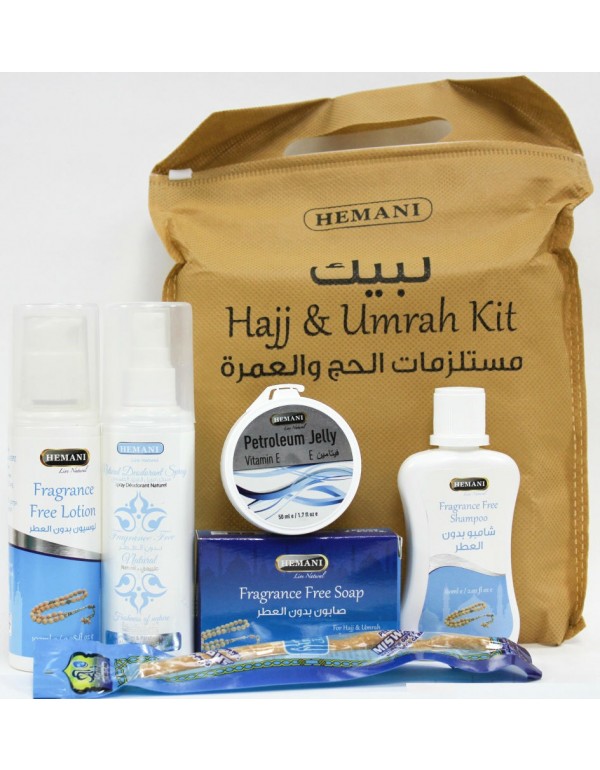
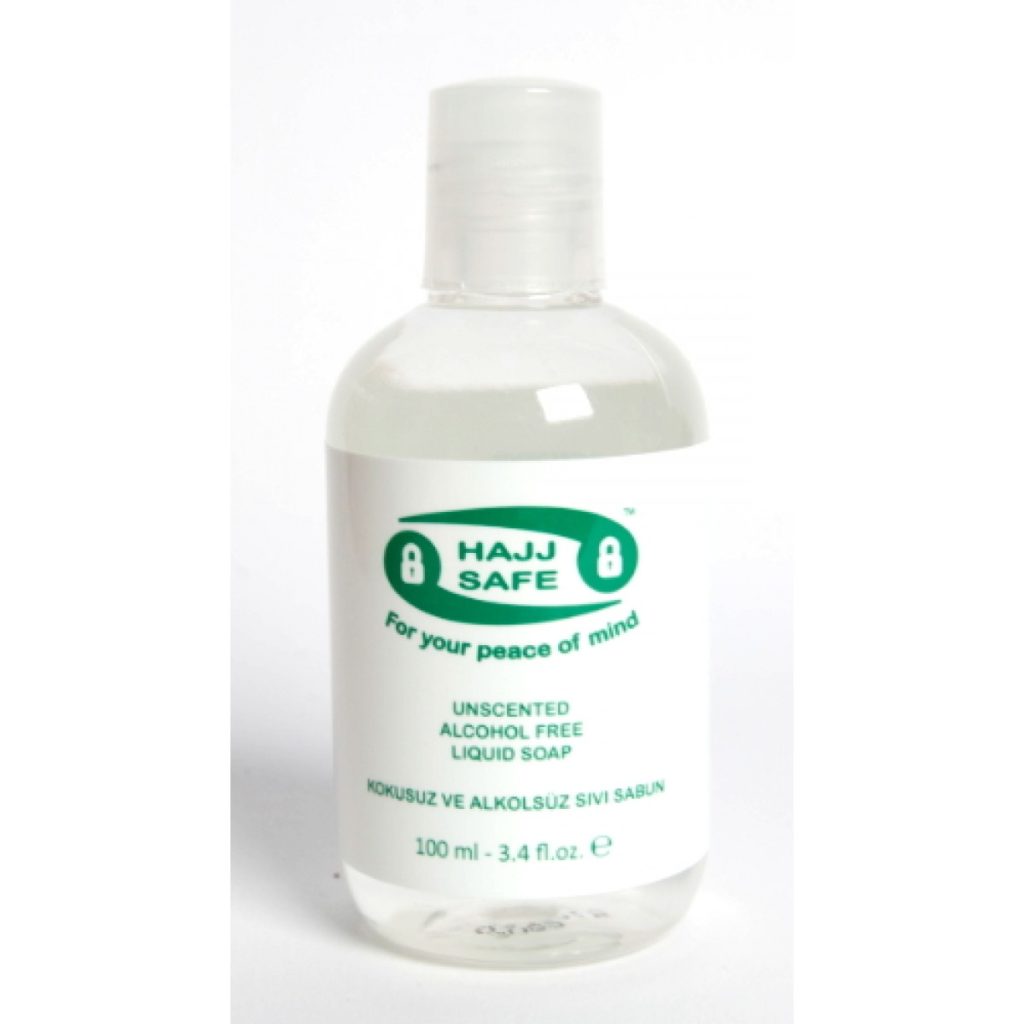

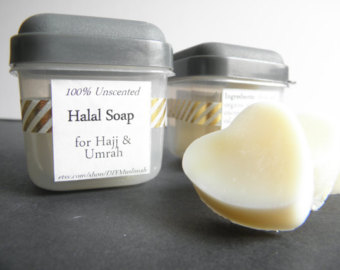
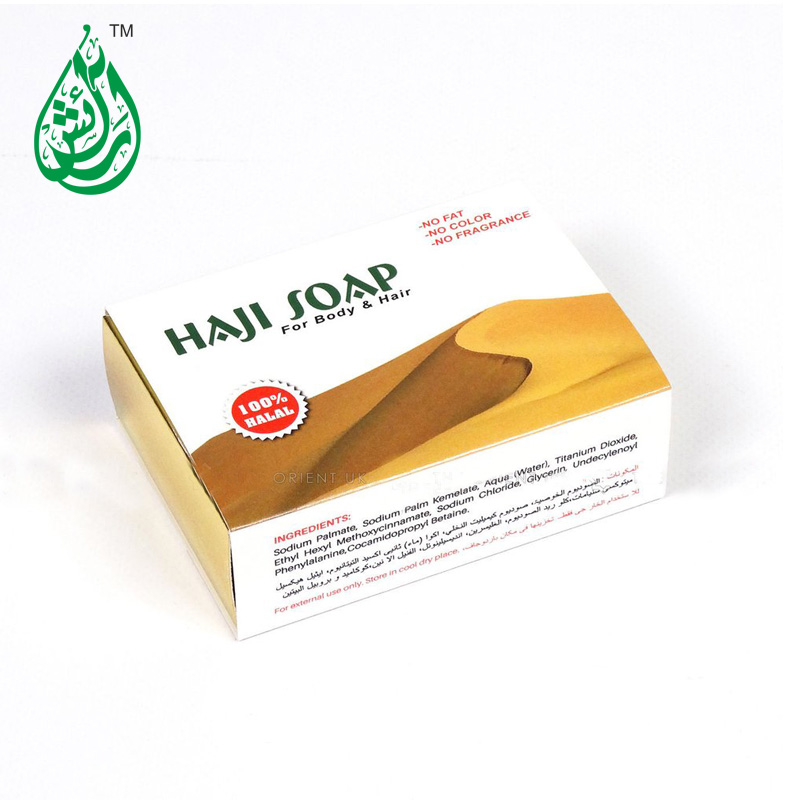



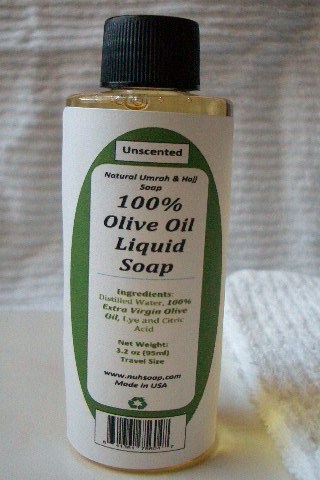
See? It’s better just to go for the unscented stuff.
As for food and drink, a pilgrim needs to avoid drink coffee which contains saffron, as this is a kind of fragrance. Please check this article for details.
4. Hunting and killing land game
One is not allowed to hunt during ihram and kill land game. One is also not allowed to help in hunting it or point at it so that others can kill it.
يَا أَيُّهَا الَّذِينَ آمَنُوا أَوْفُوا بِالْعُقُودِ ۚ أُحِلَّتْ لَكُم بَهِيمَةُ الْأَنْعَامِ إِلَّا مَا يُتْلَىٰ عَلَيْكُمْ غَيْرَ مُحِلِّي الصَّيْدِ وَأَنتُمْ حُرُمٌ ۗ إِنَّ اللَّـهَ يَحْكُمُ مَا يُرِيدُ
يَا أَيُّهَا الَّذِينَ آمَنُوا لَا تُحِلُّوا شَعَائِرَ اللَّـهِ وَلَا الشَّهْرَ الْحَرَامَ وَلَا الْهَدْيَ وَلَا الْقَلَائِدَ وَلَا آمِّينَ الْبَيْتَ الْحَرَامَ يَبْتَغُونَ فَضْلًا مِّن رَّبِّهِمْ وَرِضْوَانًا ۚ وَإِذَا حَلَلْتُمْ فَاصْطَادُوا ۚ وَلَا يَجْرِمَنَّكُمْ شَنَآنُ قَوْمٍ أَن صَدُّوكُمْ عَنِ الْمَسْجِدِ الْحَرَامِ أَن تَعْتَدُوا ۘ وَتَعَاوَنُوا عَلَى الْبِرِّ وَالتَّقْوَىٰ ۖ وَلَا تَعَاوَنُوا عَلَى الْإِثْمِ وَالْعُدْوَانِ ۚ وَاتَّقُوا اللَّـهَ ۖ إِنَّ اللَّـهَ شَدِيدُ الْعِقَابِ
O you who believe! Fulfill (your) obligations. Lawful to you (for food) are all the beasts of cattle except that which will be announced to you (herein), game (also) being unlawful when you assume Ihram for Hajj or Umrah (pilgrimage). Verily, Allah commands that which He wills.
O you who believe! Violate not the sanctity of the Symbols of Allah, nor of the Sacred Month, nor of the animals brought for sacrifice, nor the garlanded people or animals, etc. [Marked by the garlands on their necks made from the outer part of the tree stems (of Makkah) for their security], nor the people coming to the Sacred House (Makkah), seeking the bounty and good pleasure of their Lord. But when you finish the Ihram (of Hajj or Umrah), you may hunt, and let not the hatred of some people in (once) stopping you from Al Masjidal Haram (at Makkah) lead you to transgression (and hostility on your part). Help you one another in Al Birr and At Taqwa (virtue, righteousness and piety); but do not help one another in sin and transgression. And fear Allah. Verily, Allah is Severe in punishment. [Surah Al-Maidah (5) : 1- 2]
يَا أَيُّهَا الَّذِينَ آمَنُوا لَيَبْلُوَنَّكُمُ اللَّـهُ بِشَيْءٍ مِّنَ الصَّيْدِ تَنَالُهُ أَيْدِيكُمْ وَرِمَاحُكُمْ لِيَعْلَمَ اللَّـهُ مَن يَخَافُهُ بِالْغَيْبِ ۚ فَمَنِ اعْتَدَىٰ بَعْدَ ذَٰلِكَ فَلَهُ عَذَابٌ أَلِيمٌ
يَا أَيُّهَا الَّذِينَ آمَنُوا لَا تَقْتُلُوا الصَّيْدَ وَأَنتُمْ حُرُمٌ ۚ وَمَن قَتَلَهُ مِنكُم مُّتَعَمِّدًا فَجَزَاءٌ مِّثْلُ مَا قَتَلَ مِنَ النَّعَمِ يَحْكُمُ بِهِ ذَوَا عَدْلٍ مِّنكُمْ هَدْيًا بَالِغَ الْكَعْبَةِ أَوْ كَفَّارَةٌ طَعَامُ مَسَاكِينَ أَوْ عَدْلُ ذَٰلِكَ صِيَامًا لِّيَذُوقَ وَبَالَ أَمْرِهِ ۗ عَفَا اللَّـهُ عَمَّا سَلَفَ ۚ وَمَنْ عَادَ فَيَنتَقِمُ اللَّـهُ مِنْهُ ۗ وَاللَّـهُ عَزِيزٌ ذُو انتِقَامٍ
أُحِلَّ لَكُمْ صَيْدُ الْبَحْرِ وَطَعَامُهُ مَتَاعًا لَّكُمْ وَلِلسَّيَّارَةِ ۖ وَحُرِّمَ عَلَيْكُمْ صَيْدُ الْبَرِّ مَا دُمْتُمْ حُرُمًا ۗ وَاتَّقُوا اللَّـهَ الَّذِي إِلَيْهِ تُحْشَرُونَ
O you who believe! Allah will certainly make a trial of you with something in (the matter of) the game that is well within reach of your hands and your lances, that Allah may test who fears Him unseen. Then whoever transgresses thereafter, for him there is a painful torment.
O you who believe! Kill not game while you are in a state of Ihram for Hajj or Umrah (pilgrimage), and whosoever of you kills it intentionally, the penalty is an offering, brought to the Kabah, of an eatable animal (i.e. sheep, goat, cow, etc.) equivalent to the one he killed, as adjudged by two just men among you; or, for expiation, he should feed Masaakin (poor persons), or its equivalent in Saum (fasting), that he may taste the heaviness (punishment) of his deed. Allah has forgiven what is past, but whosoever commits it again, Allah will take retribution from him. And Allah is All Mighty, All-Able of Retribution.
Lawful to you is (the pursuit of) watergame and its use for food – for the benefit of yourselves and those who travel, but forbidden is (the pursuit of) landgame as long as you are in a state of Ihram (for Hajj or Umrah). And fear Allah to Whom you shall be gathered back. [Al-Maidah (5) : 94 – 96]
Ibn Kathir stated in his explanation of these verses:
“[Ali bin Abi Talhah] Al-Walibi said that Ibn Abbas said that Allah’s statement,
﴿لَيَبْلُوَنَّكُمُ اللَّهُ بِشَىْءٍ مِّنَ الصَّيْدِ تَنَالُهُ أَيْدِيكُمْ وَرِمَـحُكُمْ﴾
(Allah will certainly make a trial for you with something in (the matter of) the game that is well within reach of your hands and your lances,) (5:94), refers to, “The weak and young game. Allah tests His servants with such game during their Ihram, that if they wish, they would be able to catch it with their hands. Allah has commanded them to avoid catching it.” Mujahid said that,
﴿تَنَالُهُ أَيْدِيكُمْ﴾
(well within reach of your hands) refers to the young game and chicks, while
وَرِمَاحُكُمْ
(and your lances,) refers to mature game. Muqatil bin Hayyan said that this Ayah was revealed during the Umrah of Al-Hudaybiyyah, when wild game and birds were coming to the Muslim camping area, which they had never seen the likes of before. Allah prohibited them from hunting the game while in the state of Ihram,
﴿لِيَعْلَمَ اللَّهُ مَن يَخَافُهُ بِالْغَيْبِ﴾
(that Allah may test who fears Him in the unseen. ) Therefore, Allah tests His servants with the game that comes near their camping area, for if they wish, they can catch it with their hands and spears in public and secret. This is how the obedience of those who obey Allah in public and secret becomes apparent and tested. In another Ayah, Allah said;
﴿إِنَّ الَّذِينَ يَخْشَوْنَ رَبَّهُم بِالْغَيْبِ لَهُم مَّغْفِرَةٌ وَأَجْرٌ كَبِيرٌ ﴾
(Verily! Those who fear their Lord in the unseen, theirs will be forgiveness and a great reward (i.e. Paradise).) Allah said next,
﴿فَمَنِ اعْتَدَى بَعْدَ ذَلِكَ﴾
(Then whoever transgresses thereafter.) after this warning and threat, according to As-Suddi, then,
﴿فَلَهُ عَذَابٌ أَلِيمٌ﴾
(for him there is a painful torment.) for his defiance of Allah’s command and what He has decreed. Allah said next,
﴿يَـأَيُّهَا الَّذِينَ ءَامَنُواْ لاَ تَقْتُلُواْ الصَّيْدَ وَأَنْتُمْ حُرُمٌ﴾
(O you who believe! Kill not game while you are in a state of Ihram,) This Ayah prohibits killing the game in the state of Ihram, except what is exempt from this as mentioned in the Two Sahihs; Aishah narrated that the Messenger of Allah said,
«خَمْسٌ فَوَاسِقُ يُقْتَلْنَ فِي الْحِلِّ وَالْحَرَمِ: الْغُرَابُ، وَالْحِدَأَةُ، وَالْعَقْرَبُ، وَالْفَأْرَةُ، وَالْكَلْبُ الْعَقُور»
(Five are Fawasiq, they may be killed while in Ihram or not; the crow, the kite, the scorpion, the mouse and the rabid dog.) Ibn Umar narrated that the Messenger of Allah said,
«خَمْسٌ مِنَ الدَّوَابِّ لَيْسَ عَلَى الْمُحْرِمِ فِي قَتْلِهِنَّ جُنَاحٌ: الْغُرَابُ، وَالْحِدَأَةُ، وَالْعَقْرَبُ، وَالْفَأْرَةُ، وَالْكَلْبُ الْعَقُور»
(It is not harmful in a state of Ihram to kill five kinds of animals: the crow, the kite, the scorpion, the mouse and the rabid dog.) This Hadith was recorded in the Two Sahihs. Ayyub narrated that Nafi narrated similar wordings for this Hadith from Ibn Umar. Ayyub said, “So I said to Nafi, `What about the snake’ He said, `There is no doubt that killing the snake is allowed.”’ The ruling concerning the rabid dog also includes the wolf, lion, leopard, tiger and their like, since they are more dangerous than the rabid dog, or because the term Kalb (dog) covers them. Allah knows best. Abu Said narrated that the Prophet was asked about the animals that the Muhrim is allowed to kill and he said,
«الحَيَّةُ، وَالْعَقْرَبُ، وَالْفُوَيسِقَةُ، وَيَرْمِي الْغُرَابَ وَلَا يُقْتُلُهُ، وَالْكَلْبُ الْعَقُورُ، وَالحِدَأَةُ، وَالسَّبُعُ العَادِي»
(The snake, the scorpion, the mouse, and the crow – which is shot at but not killed — the rabid dog, the kite and wild beasts of prey.) Abu Dawud recorded this Hadith, as did At-Tirmidhi, who said, “Hasan”, and Ibn Majah.
Allah said,
﴿وَمَن قَتَلَهُ مِنكُم مُّتَعَمِّداً فَجَزَآءٌ مِّثْلُ مَا قَتَلَ مِنَ النَّعَمِ﴾
(And whosoever of you kills it intentionally, the penalty is (an offering of) livestock equivalent to the one he killed.) Mujahid bin Jabr said, “The meaning of `intentionally’ here is that one intends to kill the game while forgetting that he is in the state of Ihram. Whoever intentionally kills the game while aware that he is in the state of Ihram, then this offense is more grave than to make an expiation, and he also loses his Ihram.” This statement is odd, and the view of majority is that they have to pay the expiation for killing the game whether they forgot that they are in Ihram or not. Az-Zuhri said, “The Book (the Quran) asserts the expiation for intentional killing, and the Sunnah included those who forget, as well.” The meaning of this statement is that the Quran mentioned the expiation and sin of those who intentionally kill game,
﴿لِّيَذُوقَ وَبَالَ أَمْرِهِ عَفَا اللَّهُ عَمَّا سَلَف وَمَنْ عَادَ فَيَنْتَقِمُ اللَّهُ مِنْهُ﴾
(that he may taste the heaviness (punishment) of his deed. Allah has forgiven what is past, but whosoever commits it again, Allah will take retribution from him.) the Sunnah that includes the rulings issued by the Prophet and his Companions, indicated the necessity of expiation in cases of unintentional killing of game, just as the Book legislated expiation for intentional killing. Killing game is a form of waste, which requires expiation in intentional and unintentional cases, although those who intend it have sinned, rather than those who made an honest error. Allah’s statement,
﴿فَجَزَآءٌ مِّثْلُ مَا قَتَلَ مِنَ النَّعَمِ﴾
(The penalty is (an offering of) livestock equivalent to the one he killed.) indicates the necessity of offering an equivalent animal to the one the Muhrim killed. The Companions gave rulings that the camel, for instance, is the equivalent of the ostrich, the cow is the equivalent of wild cattle, and the goat for the deer. As for the cases when there is no equivalent for the killed animal, Ibn Abbas said that one should spend its amount in Makkah (i.e. charity), as Al-Bayhaqi recorded. Allah’s statement,
﴿يَحْكُمُ بِهِ ذَوَا عَدْلٍ مِّنْكُمْ﴾
(As adjudged by two just men among you;) means, two just Muslim men should determine an animal equivalent to the game killed, or the amount of its price. Ibn Jarir recorded that Abu Jarir Al-Bajali said, “I killed a deer when I was in the state of Ihram and mentioned this fact to Umar, who said, `Bring two of your brethren and let them judge you.’ So I went to Abdur-Rahman and Sad and they said that I should offer a male sheep.” Ibn Jarir recorded that Tariq said, “Arbad killed a deer while in the state of Ihram and he went to Umar to judge him. `Umar said to him, `Let us both judge,’ and they judged that Arbad should offer a goat that was fed on abundant water and grass. Umar commented,
﴿يَحْكُمُ بِهِ ذَوَا عَدْلٍ مِّنْكُمْ﴾
(As adjudged by two just men among you;).”
Allah’s statement,
﴿هَدْياً بَـلِغَ الْكَعْبَةِ﴾
(…an offering brought to the Kabah.) indicates that this equivalent animal should be brought to the Kabah, meaning, the Sacred Area, where it should be slaughtered and its meat divided between the poor of the Sacred Area. There is a consensus on this ruling. Allah said,
﴿أَوْ كَفَّارَةٌ طَعَامُ مَسَـكِينَ أَو عَدْلُ ذلِكَ صِيَاماً﴾
(or, for expiation, he should feed the poor, or its equivalent in fasting,) that is, if the Muhrim does not find an equivalent to what he killed, or the animal hunted is not comparable to anything else. Ali bin Abi Talhah said that Ibn Abbas commented on the Ayah,
﴿هَدْياً بَـلِغَ الْكَعْبَةِ أَوْ كَفَّارَةٌ طَعَامُ مَسَـكِينَ أَو عَدْلُ ذلِكَ صِيَاماً﴾
(…an offering brought to the Kabah, or, for expiation, he should feed the poor, or its equivalent in fasting.) “If the Muhrim killed game, then his judgement is its equivalent. If he kills an antelope, he offers a sheep slaughtered in Makkah. If he cannot, then he feeds six poor people, otherwise he should fast for three days. If he kills a deer, he offers a cow. If unable, he feeds twenty poor people, or otherwise if unable, he fasts for twenty days. If he kills an ostrich or zebra, he offers a camel, or he feeds thirty poor people, or fasts thirty days.” Ibn Abi Hatim and Ibn Jarir recorded this statement, and in Ibn Jarir’s narration, the food measurement is a Mudd (4 handfuls of food) each that suffices for the poor. Allah’s statement,
﴿لِّيَذُوقَ وَبَالَ أَمْرِهِ﴾
(that he may taste the heaviness (punishment) of his deed.) means, We have required him to pay this expiation so that he tastes the punishment of his error,
﴿عَفَا اللَّهُ عَمَّا سَلَف﴾
(Allah has forgiven what is past.) during the time of Jahiliyyah, provided that one becomes good in Islam and follows Allah’s Law, all the while avoiding the sin. Allah then said,
﴿وَمَنْ عَادَ فَيَنْتَقِمُ اللَّهُ مِنْهُ﴾
(but whosoever commits it again, Allah will take retribution from him.) meaning, whoever does this after it has been prohibited in Islam and having knowledge that it is prohibited,
﴿فَيَنْتَقِمُ اللَّهُ مِنْهُ وَاللَّهُ عَزِيزٌ ذُو انْتِقَامٍ﴾
(Allah will take retribution from him. And Allah is Almighty, All-Able of retribution.) Ibn Jurayj said, “I said to Ataa, `What is the meaning of,
﴿عَفَا اللَّهُ عَمَّا سَلَف﴾
(Allah has forgiven what is past.)’ He said, `Meaning, during the time of Jahiliyyah.’ I asked about,
﴿وَمَنْ عَادَ فَيَنْتَقِمُ اللَّهُ مِنْهُ﴾
(but whosoever commits it again, Allah will take retribution from him.) He said, `Whoever commits this offense again in Islam, then Allah will take retribution from him and he also has to pay the expiation.’ I asked, `Is there any punishment for repeating this offense that you know of’ He said, `No.’ I said, `Do you think that the authorities should punish him’ He said, `No, for it is a sin that he committed between him and Allah. He should pay the expiation.”’ Ibn Jarir recorded this statement. It was said that the Allah will take retribution’ refers to the expiation, according to Said bin Jubayr, Ataa, and the majority among the earlier and later generations. They stated that when the Muhrim kills game, the expiation becomes necessary, regardless of whether it was the first, second or third offense, and whether intentional or by error. Ibn Jarir commented on Allah’s statement;
﴿وَاللَّهُ عَزِيزٌ ذُو انتِقَامٍ﴾
(And Allah is Almighty, All-Able of retribution.) “Allah says that He is invincible in His control, none can resist Him, prevent Him from exacting retribution from anyone, or stop Him from punishing anyone. This is because all creation is His creation and the decision is His, His is the might, and His is the control. His statement,
﴿ذُو انتِقَامٍ﴾
(All-Able of retribution.) meaning, He punishes those who disobey Him for their disobedience of Him.”
Said bin Al-Musayyib, Said bin Jubayr and others commented on Allah’s statement;
﴿أُحِلَّ لَكُمْ صَيْدُ الْبَحْرِ﴾
(Lawful to you is (the pursuit of) water game…) that it means, what one eats fresh from it, while,
﴿وَطَعَامُهُ﴾
(And its use for food) what is eaten dry and salted. Ibn Abbas said that `water game’ refers to what is taken from water while still alive, while,
﴿وَطَعَامُهُ﴾
(and its use for food) refers to what the water throws ashore dead. Similar statements were reported from Abu Bakr As-Siddiq, Zayd bin Thabit, Abdullah bin Amr, Abu Ayyub Al-Ansari, Ikrimah, Abu Salamah bin `Abdur-Rahman, Ibrahim An-Nakhai and Al-Hasan Al-Basri. Allah’s statement,
﴿مَتَـعاً لَّكُمْ وَلِلسَّيَّارَةِ﴾
(for the benefit of yourselves and those who travel,) as food and provision for you,
﴿وَلِلسَّيَّارَةِ﴾
(and those who travel,) those who are in the sea and traveling along the sea, according to Ikrimah. Other scholars said that water game is allowed for those who fish it from the sea, as well as, when it is salted and used as food for travelers inland. A similar statement was reported from Ibn Abbas, Mujahid and As-Suddi and others. Imam Malik bin Anas recorded that Jabir bin Abdullah said, “Allah’s Messenger sent an army towards the east coast and appointed Abu Ubaydah bin Al-Jarrah as their commander, and the army consisted of three hundred men, including myself. We marched on until we reached a place where our food was about to finish. Abu Ubaydah ordered us to collect all the food for our journey, and it was collected in two bags of dates. Abu Ubaydah kept on giving us our daily ration in small amounts from it, until it was exhausted. The share of each of us used to be one date only.” I (one of the narrators from Jabir) said, “How could one date suffice for you” Jabir replied, “We came to know its value when even that finished.” Jabir added, “When we reached the seashore, we saw a huge fish which was like a small mountain. The army ate from it for eighteen days. Then Abu Ubaydah ordered that two of its ribs be affixed in the ground. Then he ordered that a she-camel be ridden, and it passed under the two ribs (forming an arch) without touching them.” This Hadith was also collected in the Two Sahihs. Malik recorded that Abu Hurayrah said, “A man asked Allah’s Messenger, `O Allah’s Messenger! We go to sea and carry little water with us. If we use it for Wudu, we get thirsty, so should we use seawater for Wudu’?” The Messenger of Allah said,
«هُوَ الطَّهُورُ مَاؤُهُ الْحِلُّ مَيْتَتُه»
(Its water is pure and its dead are lawful).” The two Imams, Ash-Shafii and Ahmad bin Hanbal, recorded this Hadith, along with the Four Sunan compilers. Al-Bukhari, At-Tirmidhi and Ibn Hibban graded it Sahih. This Hadith was also recorded from the Prophet by several other Companions.
Allah said,
﴿وَحُرِّمَ عَلَيْكُمْ صَيْدُ الْبَرِّ مَا دُمْتُمْ حُرُماً﴾
(but forbidden is land game as long as you are in a state of Ihram.) Therefore, hunting land game during Ihram is not allowed, and if someone who is in the state of Ihram hunts, he will have to pay expiation, along with the sin he earns if he does it intentionally. If he hunts by mistake, he will have to pay the expiation and is not allowed to eat from it, because this type of game is just like dead animals, be he a Muhrim or a non-Muhrim. If someone who is not in the state of Ihram hunts and gives the food to a Muhrim, the Muhrim is not allowed to eat from its meat if it was killed for him in particular. As-Sab bin Jaththamah said that he gave a zebra as a gift to the Prophet in the area of Waddan or Abwa, the Prophet gave it back. When the Prophet saw the effect of his returning the gift on As-Sab’s face, he said,
«إِنَّا لَمْ نَرُدَّهُ عَلَيْكَ إِلَّا أَنَّا حُرُم»
(We only gave it back to you because we are in a state of Ihram.) This Hadith was collected in the Two Sahihs. The Prophet thought that As-Sab hunted the zebra for him, and this is why he refused to take it. Otherwise, the Muhrim is allowed to eat from the game if one who is not in Ihram hunts it. For when Abu Qatadah hunted a zebra when he was not a Muhrim and offered it to those who were in the state of Ihram, they hesitated to eat from it. They asked the Messenger of Allah and he said,
«هَلْ كَانَ مِنْكُمْ أَحَدٌ أَشَارَ إِلَيْهَا أَوْ أَعَانَ فِي قَتْلِهَا»
(Did any of you point at it or help kill it) They said, “No.” He said,
«فَكُلُوا»
(Then eat,) and he also ate from it. This Hadith is also in the Two Sahihs with various wordings.”
The story of Abu Qatadah (radiallahu anhu) that Ibn Kathir mentioned at the end, is as follows:
عَنْ عَبْدِ اللَّهِ بْنِ أَبِي قَتَادَةَ، عَنْ أَبِيهِ، – رضى الله عنه – قَالَ خَرَجَ رَسُولُ اللَّهِ صلى الله عليه وسلم حَاجًّا وَخَرَجْنَا مَعَهُ – قَالَ – فَصَرَفَ مِنْ أَصْحَابِهِ فِيهِمْ أَبُو قَتَادَةَ فَقَالَ : خُذُوا سَاحِلَ الْبَحْرِ حَتَّى تَلْقَوْنِي . قَالَ فَأَخَذُوا سَاحِلَ الْبَحْرِ . فَلَمَّا انْصَرَفُوا قِبَلَ رَسُولِ اللَّهِ صلى الله عليه وسلم أَحْرَمُوا كُلُّهُمْ إِلاَّ أَبَا قَتَادَةَ فَإِنَّهُ لَمْ يُحْرِمْ فَبَيْنَمَا هُمْ يَسِيرُونَ إِذْ رَأَوْا حُمُرَ وَحْشٍ فَحَمَلَ عَلَيْهَا أَبُو قَتَادَةَ فَعَقَرَ مِنْهَا أَتَانًا فَنَزَلُوا فَأَكَلُوا مِنْ لَحْمِهَا – قَالَ – فَقَالُوا أَكَلْنَا لَحْمًا وَنَحْنُ مُحْرِمُونَ – قَالَ – فَحَمَلُوا مَا بَقِيَ مِنْ لَحْمِ الأَتَانِ فَلَمَّا أَتَوْا رَسُولَ اللَّهِ صلى الله عليه وسلم قَالُوا يَا رَسُولَ اللَّهِ إِنَّا كُنَّا أَحْرَمْنَا وَكَانَ أَبُو قَتَادَةَ لَمْ يُحْرِمْ فَرَأَيْنَا حُمُرَ وَحْشٍ فَحَمَلَ عَلَيْهَا أَبُو قَتَادَةَ فَعَقَرَ مِنْهَا أَتَانًا فَنَزَلْنَا فَأَكَلْنَا مِنْ لَحْمِهَا فَقُلْنَا نَأْكُلُ لَحْمَ صَيْدٍ وَنَحْنُ مُحْرِمُونَ . فَحَمَلْنَا مَا بَقِيَ مِنْ لَحْمِهَا . فَقَالَ : هَلْ مِنْكُمْ أَحَدٌ أَمَرَهُ أَوْ أَشَارَ إِلَيْهِ بِشَىْءٍ . قَالَ قَالُوا لاَ . قَالَ فَكُلُوا مَا بَقِيَ مِنْ لَحْمِهَا
Abdullah ibn Abee Qatadah reported on the authority of his father (radiallahu anhu): The Messenger of Allah (sallallahu alaihi wasallam) set out for Pilgrimage and we also set out along with him. He (Abu Qatadah) said: There proceeded on some of his Companions and Abu Qatadah was (one of them). He (the Prophet) said: You proceed along the coastline till you meet me. He (Abu Qatadah) said: So they proceeded ahead of the Prophet of Allah (sallallahu alaihi wasallam), all of them had entered upon the state of Ihram, except Abu Qatadah; he had not put on ihram. As they went on they saw a wild ass, and Abu Qatadah attacked it and cut off its hind legs. They got down and ate its meat. They said: We ate meat In the state of Ihram. They carried the meat that was left of it. As they came to the Messenger of Allah (sallallahu alaihi wasallam) they said: Messenger of Allah, we were in the state of Ihram whereas Abu Qatadah was not. We saw a wild ass and Abu Qatadah attacked it and cut off its hind legs. We got down and ate its meat and we thus ate the meat of a game while we were In the state of Ihram. We have (carried to you) what was left out of its meat. Thereupon he (the Prophet) said: Did anyone among you command him (to hunt) or point to him with anything (to do so)? They said: No. Thereupon he said: Then eat what is left out of its meat. [Sahih Muslim, Hadeeth No. 2711]
Certain penalties have been mentioned for hunting certain animals.
عَنِ ابْنِ أَبِي عَمَّارٍ، قَالَ قُلْتُ لِجَابِرِ بْنِ عَبْدِ اللَّهِ الضَّبُعُ أَصَيْدٌ هِيَ قَالَ نَعَمْ . قَالَ قُلْتُ آكُلُهَا قَالَ نَعَمْ . قَالَ قُلْتُ أَقَالَهُ رَسُولُ اللَّهِ صلى الله عليه وسلم قَالَ نَعَمْ
Ibn Abi Ammar said: “I asked Jabir ibn Abdullah: ‘Is the hyena game?’ He said: ‘Yes'” He said: “I said: ‘Can it be eaten?’ He said: ‘Yes.'” He said: “I said: ‘Did the Messenger of Allah (sallallahu alaihi wasallam) say that?’ He said: ‘Yes.'” [Jaami At-Tirmidhi, Hadeeth No. 851. Graded “sahih” (authentic) by Al-Albani.]
عَنْ جَابِرِ بْنِ عَبْدِ اللَّهِ، قَالَ سَأَلْتُ رَسُولَ اللَّهِ صلى الله عليه وسلم عَنِ الضَّبُعِ فَقَالَ : هُوَ صَيْدٌ وَيُجْعَلُ فِيهِ كَبْشٌ إِذَا صَادَهُ الْمُحْرِمُ
Narrated Jabir ibn Abdullah (radiallahu anhuma): I asked the Messenger of Allah (sallallahu alaihi wasallam) about the hyena. He replied: It is game, and a ram is required (as expiation) if a muhrim hunts it. [Sunan Abee Dawood, Hadeeth No. 3801. Graded “sahih” (authentic) by Al-Albani.]
عَنْ أَبِي الزُّبَيْرِ، أَنَّ عُمَرَ بْنَ الْخَطَّابِ، قَضَى فِي الضَّبُعِ بِكَبْشٍ وَفِي الْغَزَالِ بِعَنْزٍ وَفِي الأَرْنَبِ بِعَنَاقٍ وَفِي الْيَرْبُوعِ بِجَفْرَةٍ
Abuz-Zubayr narrated that Umar ibn al-Khattab gave the judgement of a ram (as expiation) for a hyena, a goat for a gazelle, a female goat less than one year old for a rabbit, and a four month old female goat for a jerboa. [Muwatta Malik, Hadeeth No. 1239 (Arabic version – the narration of Yahya ibn Yahya). The English numbering may be found here. Shaikh Al-Albani (rahimahullah) said that its isnaad (chain) was “sahih” (authentic). You can find his grading on Dorar.]
5. Proposing marriage to someone, getting married or arranging another person’s marriage
One is not allowed to marry whilst in a state of ihram or even propose marriage, nor is he/she allowed to arrange another person’s marriage.
عَن عُثْمَانَ بْنَ عَفَّانَ يَقُولُ قَالَ رَسُولُ اللَّهِ صلى الله عليه وسلم : لاَ يَنْكِحُ الْمُحْرِمُ وَلاَ يُنْكَحُ وَلاَ يَخْطُبُ
Uthman ibn Affan (radiallahu anhu) stated that Allah’s Messenger (sallallahu alaihi wasallam) said: A Muhrim must neither marry, nor arrange the marriage of another one, nor should he send the proposal of marriage. [Sahih Muslim, Hadeeth No. 3278]
عَن عُثْمَانَ عَن النبي صلى الله عليه وسلم قال :لا ينكِحُ المحرِمُ ولا يُنكِحُ ولا يخطُبُ ولا يُخطَبُ عليه
Uthman (radiallahu anhu) stated that the Prophet (sallallahu alaihi wasallam) said: A Muhrim must neither marry, nor arrange the marriage of another one, nor should he send the proposal of marriage nor give someone in engagement. [Sahih Ibn Hibban, Hadeeth No. 4124. Graded “sahih” (authentic) by Shuaib Al-Arnaut.]
6. Sexual intercourse with one’s spouse or anything leading up to it
One is not allowed to engage in sexual intercourse whilst in a state of ihram. Anything leading up to it also not allowed.
الْحَجُّ أَشْهُرٌ مَّعْلُومَاتٌ ۚ فَمَن فَرَضَ فِيهِنَّ الْحَجَّ فَلَا رَفَثَ وَلَا فُسُوقَ وَلَا جِدَالَ فِي الْحَجِّ ۗ وَمَا تَفْعَلُوا مِنْ خَيْرٍ يَعْلَمْهُ اللَّـهُ ۗ وَتَزَوَّدُوا فَإِنَّ خَيْرَ الزَّادِ التَّقْوَىٰ ۚ وَاتَّقُونِ يَا أُولِي الْأَلْبَابِ
The Hajj (pilgrimage) is (in) the well-known (lunar year) months (i.e. the 10th month, the 11th month and the first ten days of the 12th month of the Islamic calendar, i.e. two months and ten days). So whosoever intends to perform Hajj therein by assuming Ihram), then he should not have sexual relations (with his wife), nor commit sin, nor dispute unjustly during the Hajj. And whatever good you do, (be sure) Allah knows it. And take a provision (with you) for the journey, but the best provision is At-Taqwa (piety, righteousness, etc.). So fear Me, O men of understanding! [Surah Al-Baqarah (2) : 197]
Ibn Kathir states in his explanation of this verse:
“Allah then said:
﴿فَمَن فَرَضَ فِيهِنَّ الْحَجَّ﴾
(So whosoever intends (Farada) to perform Hajj therein (by assuming Ihram),) meaning that one’s assuming the Ihram requires a Hajj, for the person is required to complete the rituals of Hajj after assuming Ihram. Ibn Jarir said that Al-Awfi said, “The scholars agree that (Farada) `intends’ mentioned in the Ayah means it is a requirement and an obligation.” Ali bin Abu Talhah said that Ibn Abbas said:
﴿فَمَن فَرَضَ فِيهِنَّ الْحَجَّ﴾
(So whosoever intends to perform Hajj therein (by assuming Ihram), ) refers to those who assume Ihram for Hajj and Umrah”. Ataa said, “‘Intends’, means, assumes the Ihram.” Similar statements were attributed to Ibrahim, Ad-Dahhak and others.
Allah said:
﴿فَلاَ رَفَثَ﴾
(He should not have Rafath)
This Ayah means that those who assume the Ihram for Hajj or Umrah are required to avoid the Rafath, meaning, sexual intercourse. Allah’s statement here is similar to His statement:
﴿أُحِلَّ لَكُمْ لَيْلَةَ الصِّيَامِ الرَّفَثُ إِلَى نِسَآئِكُمْ﴾
(It is made lawful for you to have Rafath (sexual relations) with your wives on the night of the fast.) (2:187)
Whatever might lead to sexual intercourse, such as embracing, kissing and talking to women about similar subjects, is not allowed. Ibn Jarir reported that Nafi narrated that Abdullah bin Umar said, “Rafath means sexual intercourse or mentioning this subject with the tongue, by either men or women.” Ataa bin Abu Rabah said that Rafath means sexual intercourse and foul speech. This is also the opinion of `Amr bin Dinar. Ataa also said that they used to even prevent talking (or hinting) about this subject. Tawus said that Rafath includes one’s saying, “When I end the Ihram I will have sex with you.” This is also the same explanation offered by Abu Al-Aliyah regarding Rafath. Ali bin Abu Talhah said that Ibn Abbas said, “Rafath means having sex with the wife, kissing, fondling and saying foul words to her, and similar acts.” Ibn Abbas and Ibn Umar said that Rafath means to have sex with women. This is also the opinion of Said bin Jubayr, Ikrimah, Mujahid, Ibrahim An-Nakhai, Abu Al-Aliyah who narrated it from Ataa and Makhul, Ataa Al-Khurasani, Ataa bin Yasar, Atiyah, Ibrahim, Ar-Rabi, Az-Zuhri, As-Suddi, Malik bin Anas, Muqatil bin Hayyan, Abdul-Karim bin Malik, Al-Hasan, Qatadah and Ad-Dahhak, and others.”
If the pilgrim does have intercourse during ihram, then the expiation depends on when it occured.
In Umrah, if it happened after saee and before shaving or cutting the hair, then the pilgrim needs to expiate for that. If it was before saee, then the Umrah is invalidated. However, he needs to repent to Allah, continue this Umrah and then go out of the boundaries of Makkah to assume ihram (from the same meeqat) and then do Umrah again. He also needs to offer a sacrifice. This also applies to his spouse (unless she was forced to have intercourse). Please refer to this article for more details.
In Hajj, if it was after the first stage of exiting ihram (which will be discussed later on in this series, in shaa Allah), before Tawaf Al-Ifadhah (i.e. the tawaf of Hajj), then his Hajj is still valid but his ihram is invalidated. So he needs to go out of the haram zone and then assume ihram again before he does tawaf. He also needs to offer a sacrifice. If his spouse had intercourse with him willingly, then she needs to do the same. Also, they both need to repent to Allah. Please refer to this article for more details. According to Ibn Abbas (radiallahu anhuma), the person should do an Umrah and sacrifice an animal.
If he had intercourse with his wife before the first stage of exiting ihram, then according to Shaikh Ibn Uthaimeen (rahimahullah) in his book Sharh Al-Mumti, then this leads to five matters:
- The person has sinned so he needs to repent to Allah.
- Invalidation of one’s Hajj. This is according to the fatwas of multiple Sahabah (radiallahu anhum). [Here’s one that is mentioned in Muwatta Malik.]
- He needs to complete this Hajj.
- He needs to make up that Hajj the following year.
- He needs to offer a sacrificial animal as a penalty. This was also the fatwa of Ibn Abbas (radiallahu anhuma).
The only forbidden thing in ihram that can invalidate one’s Hajj and Umrah is intercourse, so everyone needs to be very careful.
What happens if someone performs a prohibited action in ihram?
If a pilgrim does some of the above mentioned prohibitions whilst in ihram, he has to pay a fidyah (ransom). However, for some others, there is nothing upon him. So which one is which?
Shaikh Ibn Uthaimeen (rahimahullah) breaks it down in a simple manner:
“If the pilgrim in ihraam does any of these forbidden things, then one of the following scenarios must apply:
1- He did it because he forgot, or was unaware of the ruling, or he was forced to do it, or he was asleep – in which case he does not have to do anything (i.e., offer any fidyah)
2- He did it deliberately, but with an excuse that made it permissible to do something that is ordinarily forbidden, in which case there is no sin on him but he has to offer the fidyah for doing that. We will explain this in more detail below.
3- He did it deliberately with no excuse, in which case he has sinned and must offer a fidyah, of which there are three types:
(a) That for which there is no fidyah, which is entering into a marriage contract.
(b) That for which the fidyah is to sacrifice a camel, which is having intercourse before the first stage of exiting ihraam.
(c) That for which the fidyah is to fast for three days, which may be done consecutively or separately, as he chooses; or to sacrifice a sheep of a type that is acceptable for sacrifice, or one-seventh of a camel or cow instead, and to distribute its meat among the poor and not eat any of it himself; or to feed six poor persons, giving each one half a saa of staple food. He is given the choice between these three options if he removes any hair or nails, puts on perfume, touches a woman with desire (but without having intercourse), if a woman puts on gloves or a face-veil, or if a male puts on stitched clothes or covers his head.
4- That for which the fidyah is to offer something equivalent, namely hunting game. If the game hunted has an equivalent, then he is given the choice of three options:
(i) slaughtering the equivalent and distributing its meat to the poor
(ii) finding out its value and giving food of an equal value to be given to the poor, giving each poor person half a saa
(iii) Fasting instead, one day for each poor person
If there is nothing equivalent to the game that was hunted, then he is given the choice between two things:
(i) finding out the value of the game that was killed and giving the equivalent in food to the poor, giving each poor person half a saa’
(ii) Fasting instead, one day for each poor person.”
Please note that if the pilgrim did more than one act which requires fidyah, he has to pay the required fidyah for each act. This is not like the prayer where two prostrations at the end suffices for everything.
Those who want exact details about any fidyah that they need to offer should directly contact a person of knowledge and get a ruling from them.
A Clarification of Some Misunderstandings regarding Ihram
The issue of ihram is always misunderstood for some reason. I’ve attempted to clarify a few misunderstandings in this section:
-
Menstruating women or those in a state of post partum bleeding can assume ihram
Women who are menstruating or have just given birth (and hence still bleeding) can and should assume ihram from the meeqat.
عَنْ جَابِرِ بْنِ عَبْدِ اللَّهِ، – رضى الله عنهما – فِي حَدِيثِ أَسْمَاءَ بِنْتِ عُمَيْسٍ حِينَ نُفِسَتْ بِذِي الْحُلَيْفَةِ أَنَّ رَسُولَ اللَّهِ صلى الله عليه وسلم أَمَرَ أَبَا بَكْرٍ – رضى الله عنه – فَأَمَرَهَا أَنْ تَغْتَسِلَ وَتُهِلَّ
Jabir ibn Abdullah (radiallahu anhuma) reported that when Asma bint Umais gave birth (to a child) in Dhul-Hulaifah. Allah’s Messenger (sallallahu alaihi wasallam) commanded Abu Bakr (to convey to her) that she should take a bath and enter into the state of Ihram. [Sahih Muslim, Hadeeth No. 2763]
(The reason that Abu Bakr (radiallahu anhu) was conveying this to Asma (radiallahu anha) was because he was her husband.)
عَنْ عَائِشَةَ ـ رضى الله عنها ـ زَوْجِ النَّبِيِّ صلى الله عليه وسلم قَالَتْ خَرَجْنَا مَعَ النَّبِيِّ صلى الله عليه وسلم فِي حَجَّةِ الْوَدَاعِ، فَأَهْلَلْنَا بِعُمْرَةٍ ثُمَّ قَالَ النَّبِيُّ صلى الله عليه وسلم : مَنْ كَانَ مَعَهُ هَدْىٌ فَلْيُهِلَّ بِالْحَجِّ مَعَ الْعُمْرَةِ، ثُمَّ لاَ يَحِلَّ حَتَّى يَحِلَّ مِنْهُمَا جَمِيعًا . فَقَدِمْتُ مَكَّةَ وَأَنَا حَائِضٌ، وَلَمْ أَطُفْ بِالْبَيْتِ وَلاَ بَيْنَ الصَّفَا وَالْمَرْوَةِ، فَشَكَوْتُ ذَلِكَ إِلَى النَّبِيِّ صلى الله عليه وسلم فَقَالَ : انْقُضِي رَأْسَكِ وَامْتَشِطِي، وَأَهِلِّي بِالْحَجِّ، وَدَعِي الْعُمْرَةَ . فَفَعَلْتُ فَلَمَّا قَضَيْنَا الْحَجَّ أَرْسَلَنِي النَّبِيُّ صلى الله عليه وسلم مَعَ عَبْدِ الرَّحْمَنِ بْنِ أَبِي بَكْرٍ إِلَى التَّنْعِيمِ فَاعْتَمَرْتُ فَقَالَ : هَذِهِ مَكَانَ عُمْرَتِكِ . قَالَتْ فَطَافَ الَّذِينَ كَانُوا أَهَلُّوا بِالْعُمْرَةِ بِالْبَيْتِ وَبَيْنَ الصَّفَا وَالْمَرْوَةِ، ثُمَّ حَلُّوا، ثُمَّ طَافُوا طَوَافًا وَاحِدًا بَعْدَ أَنْ رَجَعُوا مِنْ مِنًى، وَأَمَّا الَّذِينَ جَمَعُوا الْحَجَّ وَالْعُمْرَةَ فَإِنَّمَا طَافُوا طَوَافًا وَاحِدًا
Narrated Aishah (radiallahu anha): (the wife of the Prophet (sallallahu alaihi wasallam) We set out with the Prophet (sallallahu alaihi wasallam) in his last Hajj and we assumed Ihram for Umrah. The Prophet (sallallahu alaihi wasallam) then said, “Whoever has the Hadi with him should assume Ihram for Hajj along with Umrah and should not finish the Ihram till he finishes both.” I was menstruating when I reached Makkah, and so I neither did Tawaf round the Kabah nor Tawaf between Safa and Marwah. I complained about that to the Prophet (sallallahu alaihi wasallam) on which he replied, “Undo and comb your head hair, and assume Ihram for Hajj (only) and leave the Umrah.” So, I did so. When we had performed the Hajj, the Prophet sent me with my brother Abdur-Rahman ibn Abu Bakr to Tanim. So I performed the Umrah. The Prophet (sallallahu alaihi wasallam) said to me, “This Umrah is instead of your missed one.” Those who had assumed Ihram for Umrah (Hajj-at Tamattu) performed Tawaf round the Kabah and between Safa and Marwah and then finished their Ihram. After returning from Mina, they performed another Tawaf (between Safa and Marwah). Those who had assumed Ihram for Hajj and Umra together (Hajj-al-Qiran) performed only one Tawaf (between Safa and Marwah). [Sahih Al-Bukhari, Volume 2, Hadeeth No. 627]
عَنِ ابْنِ عَبَّاسٍ، رَفَعَ الْحَدِيثَ إِلَى رَسُولِ اللَّهِ صلى الله عليه وسلم : أَنَّ النُّفَسَاءَ وَالْحَائِضَ تَغْتَسِلُ وَتُحْرِمُ وَتَقْضِي الْمَنَاسِكَ كُلَّهَا غَيْرَ أَنْ لاَ تَطُوفَ بِالْبَيْتِ حَتَّى تَطْهُرَ
Ibn Abbas (radiallahu anhuma) narrated (that the Prophet (sallallahu alaihi wasallam said): “The women in past-natal bleeding and menses were to perform Ghusl (bath), enter Ihram and carry out all of the rites except for Tawaf around the House, until they become clean.” [Jaami At-Tirmidhi, Hadeeth No. 945. For some reason, there are two ahadeeth numbered 945. This is the second one. Graded “sahih” (authentic) by Al-Albani.]
Please note that they CAN do saee. However, in Umrah, one of the conditions of saee is that it is preceded by tawaf. So, if she does tawaf and then starts to menstruate after completing it, she can go ahead and do saee.
However, if she starts to menstruate before doing tawaf, then she needs to wait until it finishes, then do ghusl (full ablution), do tawaf and then do saee.
Now, a lot of sisters get depressed when they start menstruating during Hajj or Umrah. However, there is no reason to get upset because this is what Allah has decreed for them.
So rather then getting sad, they should try to accept what has been written for them so they can get rewarded for their patience. Perhaps that will bring them a greater reward than the tawaf would have.
2. Men cannot change out of their ihram clothes into normal clothes until after they have finished all the required acts
They can change into fresh ihram clothes though, and they can also wash their clothes.
3. Women are not required to keep their heads covered inside their homes if they are in ihram
The only times they need to keep on their hijab is when there are non-mahram men around and when they are in prayer.
4. One is allowed to have a bath (ghusl) while in ihram
Yes, taking a bath is allowed and washing one’s hair is allowed.
عَنْ إِبْرَاهِيمَ بْنِ عَبْدِ اللَّهِ بْنِ حُنَيْنٍ، عَنْ أَبِيهِ، عَنْ عَبْدِ اللَّهِ بْنِ عَبَّاسٍ، وَالْمِسْوَرِ بْنِ مَخْرَمَةَ، أَنَّهُمَا اخْتَلَفَا بِالأَبْوَاءِ فَقَالَ عَبْدُ اللَّهِ بْنُ عَبَّاسٍ يَغْسِلُ الْمُحْرِمُ رَأْسَهُ . وَقَالَ الْمِسْوَرُ لاَ يَغْسِلُ الْمُحْرِمُ رَأْسَهُ . فَأَرْسَلَنِي ابْنُ عَبَّاسٍ إِلَى أَبِي أَيُّوبَ الأَنْصَارِيِّ أَسْأَلُهُ عَنْ ذَلِكَ فَوَجَدْتُهُ يَغْتَسِلُ بَيْنَ الْقَرْنَيْنِ وَهُوَ يَسْتَتِرُ بِثَوْبٍ – قَالَ – فَسَلَّمْتُ عَلَيْهِ فَقَالَ مَنْ هَذَا فَقُلْتُ أَنَا عَبْدُ اللَّهِ بْنُ حُنَيْنٍ أَرْسَلَنِي إِلَيْكَ عَبْدُ اللَّهِ بْنُ عَبَّاسٍ أَسْأَلُكَ كَيْفَ كَانَ رَسُولُ اللَّهِ صلى الله عليه وسلم يَغْسِلُ رَأْسَهُ وَهُوَ مُحْرِمٌ فَوَضَعَ أَبُو أَيُّوبَ – رضى الله عنه – يَدَهُ عَلَى الثَّوْبِ فَطَأْطَأَهُ حَتَّى بَدَا لِي رَأْسُهُ ثُمَّ قَالَ لإِنْسَانٍ يَصُبُّ اصْبُبْ . فَصَبَّ عَلَى رَأْسِهِ ثُمَّ حَرَّكَ رَأْسَهُ بِيَدَيْهِ فَأَقْبَلَ بِهِمَا وَأَدْبَرَ ثُمَّ قَالَ هَكَذَا رَأَيْتُهُ صلى الله عليه وسلم يَفْعَلُ
Ibrahim ibn Abdullah narrated on the authority of his father that there cropped up a difference of opinion between Abdullah ibn Abbas (radiallahu anhuma) and al-Miswar ibn Makhramah (radiallahu anhu) at a place (called) Abwa. Abdullah ibn Abbas contended that a Muhrim (is permitted) to wash his head, whereas Miswar contended that a Muhrim is not (permitted) to wash his head. So Ibn Abbas sent me (the father of Ibrabim) to Abu Ayyub al-Ansari (radiallahu anhu) to ask him about it. (So I went to him) and found him taking bath behind two poles covered by a cloth. I gave him salutation, whereupon be asked:
Who is this? I said: I am Abdullah ibn Hunain. Abdullah ibn Abbas has sent me to you to find out how the Messenger of Allah (sallallahu alaihi wasallam) washed his head in the state of Ihram. Abu Ayyub (radiallahu anhu) placed his hand on the cloth and lowered it (a little) till his head became visible to me; and he said to the man who was pouring water upon him to pour water. He poured water on his head. He then moved his head with the help of his hands and moved them (the hands) forward and backward and then said: This is how I saw him (the Messenger of Allah) doing. [Sahih Muslim, Hadeeth No. 2744]
5. Combing one’s hair is also allowed (to a degree) in ihraam
The following narrations show that it is allowed to comb one’s hair whilst in ihram.
عَنْ عَائِشَةَ ـ رضى الله عنها ـ زَوْجِ النَّبِيِّ صلى الله عليه وسلم قَالَتْ خَرَجْنَا مَعَ النَّبِيِّ صلى الله عليه وسلم فِي حَجَّةِ الْوَدَاعِ، فَأَهْلَلْنَا بِعُمْرَةٍ ثُمَّ قَالَ النَّبِيُّ صلى الله عليه وسلم : مَنْ كَانَ مَعَهُ هَدْىٌ فَلْيُهِلَّ بِالْحَجِّ مَعَ الْعُمْرَةِ، ثُمَّ لاَ يَحِلَّ حَتَّى يَحِلَّ مِنْهُمَا جَمِيعًا. فَقَدِمْتُ مَكَّةَ وَأَنَا حَائِضٌ، وَلَمْ أَطُفْ بِالْبَيْتِ وَلاَ بَيْنَ الصَّفَا وَالْمَرْوَةِ، فَشَكَوْتُ ذَلِكَ إِلَى النَّبِيِّ صلى الله عليه وسلم فَقَالَ : انْقُضِي رَأْسَكِ وَامْتَشِطِي، وَأَهِلِّي بِالْحَجِّ، وَدَعِي الْعُمْرَةَ . فَفَعَلْتُ فَلَمَّا قَضَيْنَا الْحَجَّ أَرْسَلَنِي النَّبِيُّ صلى الله عليه وسلم مَعَ عَبْدِ الرَّحْمَنِ بْنِ أَبِي بَكْرٍ إِلَى التَّنْعِيمِ فَاعْتَمَرْتُ فَقَالَ : هَذِهِ مَكَانَ عُمْرَتِكِ . قَالَتْ فَطَافَ الَّذِينَ كَانُوا أَهَلُّوا بِالْعُمْرَةِ بِالْبَيْتِ وَبَيْنَ الصَّفَا وَالْمَرْوَةِ، ثُمَّ حَلُّوا، ثُمَّ طَافُوا طَوَافًا وَاحِدًا بَعْدَ أَنْ رَجَعُوا مِنْ مِنًى، وَأَمَّا الَّذِينَ جَمَعُوا الْحَجَّ وَالْعُمْرَةَ فَإِنَّمَا طَافُوا طَوَافًا وَاحِدًا
Narrated Aishah (radiallahu anha): (the wife of the Prophet (sallallahu alaihi wasallam) We set out with the Prophet (sallallahu alaihi wasallam) in his last Hajj and we assumed Ihram for Umrah. The Prophet (sallallahu alaihi wasallam) then said, “Whoever has the Hadi with him should assume Ihram for Hajj along with Umrah and should not finish the Ihram till he finishes both.” I was menstruating when I reached Makkah, and so I neither did Tawaf round the Kabah nor Tawaf between Safa and Marwah. I complained about that to the Prophet (sallallahu alaihi wasallam) on which he replied, “Undo and comb your head hair, and assume Ihram for Hajj (only) and leave the Umrah.” So, I did so. When we had performed the Hajj, the Prophet sent me with my brother Abdur-Rahman ibn Abu Bakr to Tanim. So I performed the Umrah. The Prophet (sallallahu alaihi wasallam) said to me, “This Umrah is instead of your missed one.” Those who had assumed Ihram for Umrah (Hajj-at Tamattu) performed Tawaf round the Kabah and between Safa and Marwah and then finished their Ihram. After returning from Mina, they performed another Tawaf (between Safa and Marwah). Those who had assumed Ihram for Hajj and Umra together (Hajj-al-Qiran) performed only one Tawaf (between Safa and Marwah). [Sahih Al-Bukhari, Volume 2, Hadeeth No. 627]
(Aisha (radiallahu anha) was still in ihram when the Prophet (sallallahu alaihi wasallam) told her to comb her hair.)
عن فاطمة بنت المنذر ، عن أسماء بنت أبي بكر رضي الله عنهما قالت: كنا نغطي وجوهنا من الرجال وكنا نمتشط قبل ذلك في الإحرام
Fatimah bint Mundhir narrated that Asma (radiallahu anha) said: We used to cover our faces in the presence of (non-mahram) men, and we used to comb our hair before that in ihram. [Mustadrak Al-Haakim, Hadeeth No. 1670. Shaikh Al-Albani said that it was upon the condition of (Imam) Muslim. You can find his grading on Dorar.]
However, it is disliked as it may cause a lot of hair to fall. Please refer to this article for more details.
6. A Muhrim may scratch his body
Yes, a muhrim may also scratch his/her body.
عَنْ عَلْقَمَةَ بْنِ أَبِي عَلْقَمَةَ، عَنْ أُمِّهِ، أَنَّهَا قَالَتْ سَمِعْتُ عَائِشَةَ، زَوْجَ النَّبِيِّ صلى الله عليه وسلم تُسْأَلُ عَنِ الْمُحْرِمِ أَيَحُكُّ جَسَدَهُ فَقَالَتْ نَعَمْ فَلْيَحْكُكْهُ وَلْيَشْدُدْ وَلَوْ رُبِطَتْ يَدَاىَ وَلَمْ أَجِدْ إِلاَّ رِجْلَىَّ لَحَكَكْتُ
Alqamah ibn Abee Alqama narrated that his mother said, “I heard Aishah, the wife of the Prophet (sallallahu alaihi wasallam) being asked whether someone in ihram could scratch their body or not, and she said, ‘Yes, he can scratch it and do so as hard as he pleases. I would scratch even if my hands were tied and I could only use my feet.'” [Muwatta Malik, Hadeeth No. 1033 (Arabic version – the narration of Yahya ibn Yahya). The English translation may be found here. Shaikh Al-Albani said that its isnaad (chain) was “hasan” (good) due to supporting narrations. You can find his grading on Dorar.]
7. Certain animals are allowed to be killed whilst in ihram
There are certain (troublesome) animals which can be killed whilst in ihram.
عَنْ عَبْدِ اللَّهِ بْنِ عُمَرَ ـ رضى الله عنهما ـ أَنَّ رَسُولَ اللَّهِ صلى الله عليه وسلم قَالَ : خَمْسٌ مِنَ الدَّوَابِّ مَنْ قَتَلَهُنَّ وَهْوَ مُحْرِمٌ فَلاَ جُنَاحَ عَلَيْهِ الْعَقْرَبُ، وَالْفَأْرَةُ، وَالْكَلْبُ الْعَقُورُ، وَالْغُرَابُ، وَالْحِدَأَةُ
Narrated Abdullah ibn Umar: Allah’s Messenger (sallallahu alaihi wasallam) said, “It is not sinful of a person in the state of Ihram to kill any of these five animals: The scorpion, the rat, the rabid dog, the crow and the kite.” [Sahih Al-Bukhari, Volume 4, Hadeeth No. 532]
عَنْ عَائِشَةَ، – رضى الله عنها – عَنِ النَّبِيِّ صلى الله عليه وسلم أَنَّهُ قَالَ : خَمْسٌ فَوَاسِقُ يُقْتَلْنَ فِي الْحِلِّ وَالْحَرَمِ الْحَيَّةُ وَالْغُرَابُ الأَبْقَعُ وَالْفَارَةُ وَالْكَلْبُ الْعَقُورُ وَالْحُدَيَّا
Aishah (radiallahu anha) reported Allah’s Messenger (sallallahu alaihi wasallam) as saying: Five are the harmful things which should be killed in the state of Ihram or otherwise: snake, speckled crow, rat, voracious dog, and kite. [Sahih Muslim, Hadeeth No. 2718]
عَنْ عَبْدِ اللَّهِ ـ رضى الله عنه ـ قَالَ بَيْنَمَا نَحْنُ مَعَ النَّبِيِّ صلى الله عليه وسلم فِي غَارٍ بِمِنًى، إِذْ نَزَلَ عَلَيْهِ {وَالْمُرْسَلاَتِ} وَإِنَّهُ لَيَتْلُوهَا، وَإِنِّي لأَتَلَقَّاهَا مِنْ فِيهِ، وَإِنَّ فَاهُ لَرَطْبٌ بِهَا، إِذْ وَثَبَتْ عَلَيْنَا حَيَّةٌ فَقَالَ النَّبِيُّ صلى الله عليه وسلم : اقْتُلُوهَا . فَابْتَدَرْنَاهَا، فَذَهَبَتْ، فَقَالَ النَّبِيُّ صلى الله عليه وسلم : وُقِيَتْ شَرَّكُمْ كَمَا وُقِيتُمْ شَرَّهَا
Narrated Abdullah (radiallahu anhu): While we were in the company of the Prophet (sallallahu alaihi wasallam) in a cave at Mina, when Surat-wal-Mursalat were revealed and he recited it and I heard it (directly) from his mouth as soon as he recited its revelation. Suddenly a snake sprang at us and the Prophet (sallallahu alaihi wasallam) said (ordered us): “Kill it.” We ran to kill it but it escaped quickly. The Prophet (sallallahu alaihi wasallam) said, “It has escaped your evil and you too have escaped its evil.” [Sahih Al-Bukhari, Volume 3, Hadeeth No. 56]
Note about killing snakes: If you find them inside your house, then you have to warn them first. Please refer to this article for more details.
8. Trading is allowed whilst in ihram
لَيْسَ عَلَيْكُمْ جُنَاحٌ أَن تَبْتَغُوا فَضْلًا مِّن رَّبِّكُمْ
There is no sin on you if you seek the Bounty of your Lord (during pilgrimage by trading, etc.). [Surah Al-Baqarah (2) : 198]
عَنِ ابْنِ عَبَّاسٍ ـ رضى الله عنهما ـ قَالَ كَانَتْ عُكَاظٌ وَمَجَنَّةُ وَذُو الْمَجَازِ أَسْوَاقًا فِي الْجَاهِلِيَّةِ فَتَأَثَّمُوا أَنْ يَتَّجِرُوا فِي الْمَوَاسِمِ فَنَزَلَتْ {لَيْسَ عَلَيْكُمْ جُنَاحٌ أَنْ تَبْتَغُوا فَضْلاً مِنْ رَبِّكُمْ} فِي مَوَاسِمِ الْحَجِّ.
Narrated Ibn Abbas (radiallahu anhuma): Ukaz, Mijanna and Dhul-Majaz were markets during the Pre-islamic Period. They (i.e. Muslims) considered it a sin to trade there during the Hajj time (i.e. season), so this Verse was revealed:–
لَيْسَ عَلَيْكُمْ جُنَاحٌ أَن تَبْتَغُوا فَضْلًا مِّن رَّبِّكُمْ
There is no sin on you if you seek the Bounty of your Lord. [Surah Al-Baqarah (2) : 198] during the Hajj season. [Sahih Al-Bukhari, Volume 6, Hadeeth No. 44]
The following two hadeeth make it clear that one can trade even when in a state of ihram.
عن أَبي أُمَامَة التَّيْمِيُّ، قَالَ كُنْتُ رَجُلاً أُكْرِي فِي هَذَا الْوَجْهِ وَكَانَ نَاسٌ يَقُولُونَ لِي إِنَّهُ لَيْسَ لَكَ حَجٌّ فَلَقِيتُ ابْنَ عُمَرَ فَقُلْتُ يَا أَبَا عَبْدِ الرَّحْمَنِ إِنِّي رَجُلٌ أُكْرِي فِي هَذَا الْوَجْهِ وَإِنَّ نَاسًا يَقُولُونَ لِي إِنَّهُ لَيْسَ لَكَ حَجٌّ فَقَالَ ابْنُ عُمَرَ أَلَيْسَ تُحْرِمُ وَتُلَبِّي وَتَطُوفُ بِالْبَيْتِ وَتُفِيضُ مِنْ عَرَفَاتٍ وَتَرْمِي الْجِمَارَ قَالَ قُلْتُ بَلَى . قَالَ فَإِنَّ لَكَ حَجًّا جَاءَ رَجُلٌ إِلَى النَّبِيِّ صلى الله عليه وسلم فَسَأَلَهُ عَنْ مِثْلِ مَا سَأَلْتَنِي عَنْهُ فَسَكَتَ عَنْهُ رَسُولُ اللَّهِ صلى الله عليه وسلم فَلَمْ يُجِبْهُ حَتَّى نَزَلَتْ هَذِهِ الآيَةُ { لَيْسَ عَلَيْكُمْ جُنَاحٌ أَنْ تَبْتَغُوا فَضْلاً مِنْ رَبِّكُمْ } فَأَرْسَلَ إِلَيْهِ رَسُولُ اللَّهِ صلى الله عليه وسلم وَقَرَأَ عَلَيْهِ هَذِهِ الآيَةَ وَقَالَ : لَكَ حَجٌّ
Abu Umamah at-Taymi said: I was a man who used to give (riding-beasts) on hire for this purpose (for travelling during the pilgrimage) and the people would tell (me): Your Hajj is not valid! So I met Ibn Umar and told him: Abu Abdur Rahman, I am a man who gives (riding-beast) on hire for this purpose (i.e. for Hajj), and the people tell me: Your Hajj is not valid. Ibn Umar replied: Do you not put on ihram, say the talbiyah, perform the Tawaf around the Kabah, stand at Arafah and pelt the (pillars) Jimar? I said: Yes. Then he said: Your Hajj is valid. A man came to the Prophet (sallallahu alaihi wasallam) and asked him the same question you have asked me. The Messenger of Allah (sallallahu alaihi wasallam) kept silent and did not answer him till this verse came down:
لَيْسَ عَلَيْكُمْ جُنَاحٌ أَن تَبْتَغُوا فَضْلًا مِّن رَّبِّكُمْ
There is no sin on you if you seek the Bounty of your Lord. [Surah Al-Baqarah (2) : 198]
The Messenger of Allah (sallallahu alaihi wasallam) sent for him and recited this verse to him and said: Your Hajj is valid. [Sunan Abee Dawood, Hadeeth No. 1733. Graded “sahih” (authentic) by Albani.]
عَنْ عَبْدِ اللَّهِ بْنِ عَبَّاسٍ، أَنَّ النَّاسَ، فِي أَوَّلِ الْحَجِّ كَانُوا يَتَبَايَعُونَ بِمِنًى وَعَرَفَةَ وَسُوقِ ذِي الْمَجَازِ وَمَوَاسِمِ الْحَجِّ فَخَافُوا الْبَيْعَ وَهُمْ حُرُمٌ فَأَنْزَلَ اللَّهُ سُبْحَانَهُ { لَيْسَ عَلَيْكُمْ جُنَاحٌ أَنْ تَبْتَغُوا فَضْلاً مِنْ رَبِّكُمْ } فِي مَوَاسِمِ الْحَجِّ . قَالَ فَحَدَّثَنِي عُبَيْدُ بْنُ عُمَيْرٍ أَنَّهُ كَانَ يَقْرَأُهَا فِي الْمُصْحَفِ
Narrated Abdullah ibn Abbas (radiallahu anhuma): The people used to trade, in the beginning, at Mina, Arafah, the market place of Dhul-Majaz, and during the season of Hajj. But (later on) they became afraid of trading while in the state of ihram. So Allah, glory be to Him, sent down this verse:
لَيْسَ عَلَيْكُمْ جُنَاحٌ أَن تَبْتَغُوا فَضْلًا مِّن رَّبِّكُمْ
There is no sin on you if you seek the Bounty of your Lord. [Surah Al-Baqarah (2) : 198] during the seasons of Hajj. Ubayd ibn Umayr told me that he (Ibn Abbas) used to recite it (the verse) like this in his Mushaf. [Sunan Abee Dawood, Hadeeth No. 1734. Graded “sahih” (authentic) by Al-Albani]
Ibn Kathir stated in his explanation of the above mentioned verse:
“Al-Bukhari reported that Ibn Abbas said, “Ukaz, Mijannah and Dhul-Majaz were trading posts during the time of Jahiliyyah. During that era, they did not like the idea of conducting business transactions during the Hajj season. Later, this Ayah was revealed:
﴿لَيْسَ عَلَيْكُمْ جُنَاحٌ أَن تَبْتَغُواْ فَضْلاً مِّن رَّبِّكُمْ﴾
(There is no sin on you if you seek the bounty of your Lord.) during the Hajj season.”
Abu Dawud and others recorded that Ibn Abbas said, “They used to avoid conducting business transactions during the Hajj season, saying that these are the days of Dhikr. Allah revealed:
﴿لَيْسَ عَلَيْكُمْ جُنَاحٌ أَن تَبْتَغُواْ فَضْلاً مِّن رَّبِّكُمْ﴾
(There is no sin on you if you seek the bounty of your Lord (during pilgrimage by trading).)
This is also the explanation of Mujahid, Said bin Jubayr, Ikrimah, Mansur bin Al-Mutamir, Qatadah, Ibrahim An-Nakhai, Ar-Rabi bin Anas and others. Ibn Jarir reported that Abu Umaymah said that when Ibn Umar was asked about conducting trade during the Hajj, he recited the Ayah:
﴿لَيْسَ عَلَيْكُمْ جُنَاحٌ أَن تَبْتَغُواْ فَضْلاً مِّن رَّبِّكُمْ﴾
(There is no sin on you if you seek the bounty of your Lord (during pilgrimage by trading). )
This Hadith is related to Ibn Umar with a strong chain of narrators. This Hadith is also related to the Prophet, as Ahmad reported that Abu Umamah At-Taymi said, “I asked Ibn Umar, `We buy (and sell during the Hajj), so do we still have a valid Hajj’ He said, `Do you not perform Tawaf around the House, stand at Arafat, throw the pebbles and shave your heads’ I said, `Yes.’ Ibn Umar said, `A man came to the Prophet and asked him about what you asked me, and the Prophet did not answer him until Jibril came down with this Ayah:
﴿لَيْسَ عَلَيْكُمْ جُنَاحٌ أَن تَبْتَغُواْ فَضْلاً مِّن رَّبِّكُمْ﴾
(There is no sin on you if you seek the bounty of your Lord (during pilgrimage by trading).) The Prophet summoned the man and said: (You are pilgrims).” Ibn Jarir narrated that Abu Salih said to Umar, “`O Leader of the faithful! Did you conduct trade transactions during the Hajj” He said, “Was their livelihood except during Hajj””
9. A muhrim can get cupped if needed
A muhrim is allowed to get cupped if needed as the Prophet (sallallahu alaihi wasallam) did that.
عَنِ ابْنِ عَبَّاسٍ، قَالَ احْتَجَمَ النَّبِيُّ صلى الله عليه وسلم وَهْوَ مُحْرِمٌ
Narrated Ibn Abbas (radiallahu anhuma): The Prophet (sallallahu alaihi wasallam) was cupped while he was in a state of Ihram. [Sahih Al-Bukhari, Volume 7, Hadeeth No. 598]
عَنْ عَبْدَ اللَّهِ ابْنَ بُحَيْنَةَ، يُحَدِّثُ أَنَّ رَسُولَ اللَّهِ صلى الله عليه وسلم احْتَجَمَ بِلَحْىِ جَمَلٍ مِنْ طَرِيقِ مَكَّةَ، وَهْوَ مُحْرِمٌ، فِي وَسَطِ رَأْسِهِ. وَقَالَ الأَنْصَارِيُّ أَخْبَرَنَا هِشَامُ بْنُ حَسَّانَ، حَدَّثَنَا عِكْرِمَةُ، عَنِ ابْنِ عَبَّاسٍ ـ رضى الله عنهما ـ أَنَّ رَسُولَ اللَّهِ صلى الله عليه وسلم احْتَجَمَ فِي رَأْسِهِ
Narrated Abdullah ibn Buhainah (radiallahu anhu): Allah’s Messenger (sallallahu alaihi wasallam) was cupped on the middle of his head at Lahl Jamal on his way to Makkah while he was in a state of Ihram. Narrated Ibn Abbas (radiallahu anhuma): Allah’s Messenger (sallallahu alaihi wasallam) was cupped on his head. [Sahih Al-Bukhari, Volume 7, Hadeeth No. 601]
عَنِ ابْنِ عَبَّاسٍ، احْتَجَمَ النَّبِيُّ صلى الله عليه وسلم فِي رَأْسِهِ وَهْوَ مُحْرِمٌ مِنْ وَجَعٍ كَانَ بِهِ بِمَاءٍ يُقَالُ لَهُ لَحْىُ جَمَلٍ. وَقَالَ مُحَمَّدُ بْنُ سَوَاءٍ أَخْبَرَنَا هِشَامٌ، عَنْ عِكْرِمَةَ، عَنِ ابْنِ عَبَّاسٍ، أَنَّ رَسُولَ اللَّهِ صلى الله عليه وسلم احْتَجَمَ وَهْوَ مُحْرِمٌ فِي رَأْسِهِ مِنْ شَقِيقَةٍ كَانَتْ بِهِ
Narrated Ibn Abbas (radiallahu anhuma): The Prophet (sallallahu alaihi wasallam) was cupped on his head for an ailment he was suffering from while he was in a state of Ihram at a water place called Lahl Jamal. Ibn Abbas further said: Allah’s Messenger (sallallahu alaihi wasallam) was cupped on his head for unilateral headache while he was in a state of Ihram. [Sahih Al-Bukhari, Volume 7, Hadeeth No. 602]
Now, cupping usually involves cutting a bit of the person’s hair. Is that allowed whilst in ihram? Well, according to Imam Malik, the person should not remove their hair. However, I came across statements by Imams An-Nawawi, Ibn Al-Qayyim and Ibn Baz stating that it was okay to remove some hair. As for whether offering the expiation is required, there seems to be a difference of opinion on that. Nothing has been reported from the Prophet (sallallahu alaihi wasallam) about Ibn Baz pointed out that it was safer to offer the expiation.
Hijaamah (cupping) is a remedy from the sunnah. For those who have no idea what it is, the following articles give a brief overview of this issue:
What is hijaamah (cupping) and how do you perform it? – IslamQA
Al-hijaamah (cupping): what Islam says about it, its benefits and the times when it should be done – IslamQA
Hijaamah (Cupping Therapy) as Therapy and Medicine – HealthyMuslim.com
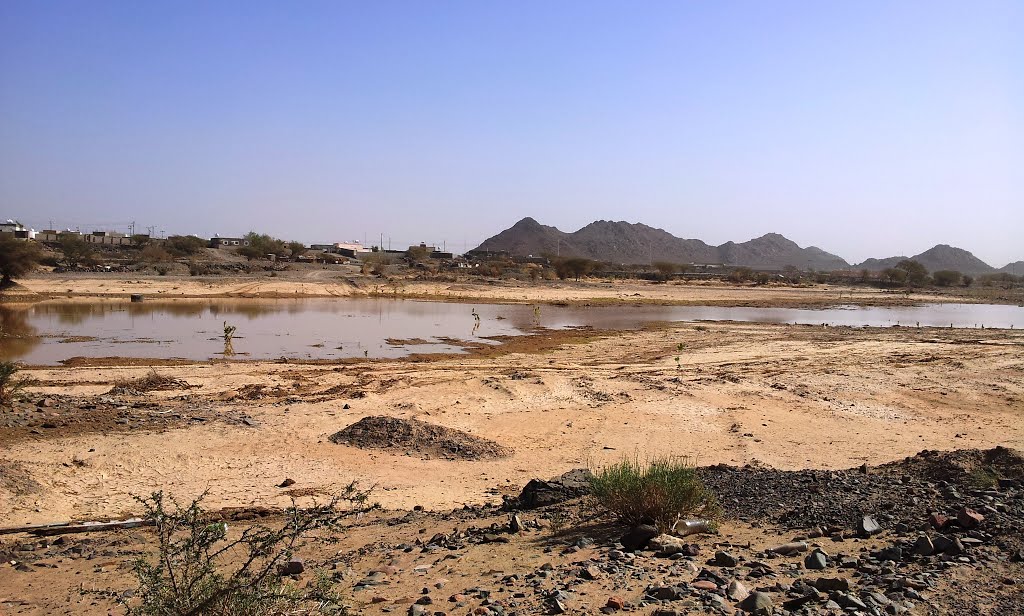
HOW TO ASSUME IHRAM
In order to assume ihram, one should do the following:
1. It is preferable to remove the required hair from one’s body and trim one’s nails
This is because one cannot do this whilst in ihram.
2. It is preferable to have a bath (ghusl) before assuming ihram
عَنْ خَارِجَةَ بْنِ زَيْدِ بْنِ ثَابِتٍ، عَنْ أَبِيهِ، أَنَّهُ رَأَى النَّبِيَّ صلى الله عليه وسلم تَجَرَّدَ لإِهْلاَلِهِ وَاغْتَسَلَ
Kharijah ibn Zaid ibn Thabit narrated from his father that he saw the Prophet (sallallahu alaihi wasallam) remove his (sewn) clothing to enter ihram and to perform ghusl. [Jaami At-Tirmidhi, Hadeeth No. 830. Graded “sahih” (authentic) by Al-Albani.]
3. Menstruating women and those in a state of postnatal bleeding are required to have a bath
عَنِ ابْنِ عَبَّاسٍ، رَفَعَ الْحَدِيثَ إِلَى رَسُولِ اللَّهِ صلى الله عليه وسلم : أَنَّ النُّفَسَاءَ وَالْحَائِضَ تَغْتَسِلُ وَتُحْرِمُ وَتَقْضِي الْمَنَاسِكَ كُلَّهَا غَيْرَ أَنْ لاَ تَطُوفَ بِالْبَيْتِ حَتَّى تَطْهُرَ
4. It is preferable for men to perfume their bodies before assuming ihram
Please note that this is is BEFORE one enters ihram and it is to be applied on one’s body not the ihram clothes. During ihram, one may not wear perfume as mentioned earlier.
عن عائشةَ رضيَ اللهُ عنها زوجِ النبيّ صلى الله عليه وسلّم قالت :كنتُ أطَيّبُ رسولَ اللهِ صلى الله عليه وسلّم لإِحْرَامِهِ حينَ يُحْرِمُ، ولِحِلّهِ قبلَ أن يَطوفَ بالبيتِ
Narrated Aishah (radiallahu anha), the wife of the Prophet (sallallahu alaihi wasallam) I used to scent Allah’s Messenger (sallallahu alaihi wasallam) when he wanted to assume ihram and also on finishing ihram before the Tawaf round the Kabah (Tawaf Al-Ifaadah)*. [Sahih Al-Bukhari, Volume 2, Hadeeth No. 612]
(*This is after exiting the ihram for Hajj.)
عَنْ عَائِشَةَ، قَالَتْ كَأَنِّي أَنْظُرُ إِلَى وَبِيصِ الطِّيبِ فِي مَفْرِقِ النَّبِيِّ صلى الله عليه وسلم وَهْوَ مُحْرِمٌ
Narrated Aishah (radiallahu anha): It is as if I am just looking at the glitter of scent in the parting of the Prophet’s (sallallahu alaihi wasallam) head hair while he was a Muhrim. [Sahih Al-Bukhari, Volume 1, Hadeeth No. 271]
Please note that as bathing (for other the women mentioned above), wearing perfume, etc are all acts of the Sunnah and are not mandatory for those who wish to assume ihram, they can be done before one sets out on the journey. They do not have to be done on the plane or at the meeqat itself.
5. Wear the appropriate clothes
Women can wear what they wish (apart from niqab and gloves).
عَنْ عَبْدِ اللَّهِ بْنِ عُمَرَ أَنَّهُ سَمِعَ رَسُولَ اللَّهِ صلى الله عليه وسلم نَهَى النِّسَاءَ فِي إِحْرَامِهِنَّ عَنِ الْقُفَّازَيْنِ وَالنِّقَابِ وَمَا مَسَّ الْوَرْسُ وَالزَّعْفَرَانُ مِنَ الثِّيَابِ وَلْتَلْبَسْ بَعْدَ ذَلِكَ مَا أَحَبَّتْ مِنْ أَلْوَانِ الثِّيَابِ مُعَصْفَرًا أَوْ خَزًّا أَوْ حُلِيًّا أَوْ سَرَاوِيلَ أَوْ قَمِيصًا أَوْ خُفًّا
Abdullah ibn Umar said that he heard the Messenger of Allah (sallallahu alaihi wasallam) prohibiting women in ihram from wearing gloves and the face-veil and any garment that was touched by Wars or saffron. And she may wear whatever else she pleases of any garments, regardless of colour, whether it is muasfar (a reddish or orange-like dye made of safflower) or silk or jewelry or trousers,or a shirt or khuffs (leather socks). [Sunan Abee Dawood, Hadeeth No. 1827. Graded “hasan sahih” (authentic) by Al-Albani.]
Please note that this is in addition to wearing the proper hijab which includes the jilbaab (outer covering). This is not just done for Hajj, but rather for one’s whole life as the purpose is to glorify Allah with this act.
Those who wish to understand more about the hijab and jilbaab can refer to the following articles and books:
Correct Hijaab – IslamQA
Verses and Hadeeth about Hijab – IslamQA
The Requirements of the Jilbab – Memphis Dawah
Hijab – Abdulaziz Addwesh
The Hijab: Why? – Dr. Muhammad Ismail
The last article was translated by Dr. Saleh As-Saleh (rahimahullah) and the audio version of it can be found here.
As for the type of clothes to wear for men, an izaar (lower garment) and ridaa (upper garment) is the best way to go.
عن ابن عمرأن رجلًا نادى فقال : يا رسولَ اللهِ وما يجتنبُ المحرمُ من الثيابِ ؟ فقال لا يلبسُ السراويلَ ولا القميصَ ولا البرنسَ ولا العمامةَ ولا ثوبًا مسه زعفرانٌ ولا ورسٌ وليُحرمْ أحدُكم في إزارٍ ورداءٍ ونعلينِ فإن لم يجدْ نعلين فليلبسْ خفينِ وليقطعْهما حتى يكونا أسفلَ من العقبينِ
Ibn Umar (radiallahu anhuma) narrated that a man called out and said: “O Messenger of Allah! What kind of clothes should a muhrim avoid?” He (sallallahu alaihi wasallam) said: “He should not wear trousers, or a shirt, or a hooded cloak, or a turban or any clothes perfumed with saffron or Wars and let one of you enter ihram in an izaar (lower garment or waist wrapper) and ridaa (upper garment) and sandals. If he does not find sandals, then let him wear khuffs after cutting them short below the heels.” [Musnad Ahmad, Hadeeth No. 4899. Graded “sahih” (authentic) by Shuaib Al-Arnaut except for “the heels” which he said was “shaadh” (irregular) ie. it contradicts a more well-known narration. In this case, all the other narrations state “ankles” not heels. ]
عن عبدِ اللَّهِ بنِ عبَّاسٍ رضيَ اللَّهُ عنهما قال: انطلَقَ النبيُّ صلى الله عليه وسلّم من المدينةِ بعدَما تَرَجَّلَ وادَّهنَ ولَبِسَ إزارَهُ ورِداءهُ هو وأصحابهُ، فلمْ يَنْهَ عن شيءٍ منَ الأرديةِ والأُزُرِ تُلبَسُ إلا المزَعفرَةَ التي ترْدَعُ على الجلدِ، فأصبحَ بذي الحُليفةِ، ركبَ راحلتهُ حتى استوَى على البيداءِ أهلَّ هوَ وأصحابهُ، وقَلَّدَ بدَنَتَهُ، وذلِكَ لخمسٍ بَقِينَ من ذي القَعدة، فقدِم مكةَ لأربعِ لَيالٍ خَلَونَ من ذي الحَجَّةِ، فطافَ بالبيتِ، وسَعى بينَ الصَّفا والمَروَةِ، ولم يَحِلَّ من أجلِ بدنهِ لأنهُ قَلَّدَها. ثمَّ نَزَلَ بأعلى مكةَ عندَ الحَجُونِ وهوَ مُهِلٌّ بالحجِّ، ولم يَقرَبِ الكعبةَ بعدَ طوافهِ بها حتى رجعَ مِن عَرَفةَ، وأمرَ أصحابهُ أن يَطوَّفوا بالبيتِ وبينَ الصفا والمَروةِ، ثمَّ يُقَصِّروا من رُؤوسِهم ثمَّ يُحِلّوا، وذلِكَ لمن لم يَكن معهُ بدَنَة قَلَّدَها، ومَن كانت معهُ امرأتُهُ فهيَ لهُ حَلالٌ والطِّيبُ والثيابُ
Narrated Abdullah ibn Abbas (radiallahu anhuma): The Prophet (sallallahu alaihi wasallam) with his companions started from Madinah after combing and oiling his hair and putting on two sheets of lhram (upper body cover and waist cover). He did not forbid anyone to wear any kind of sheets except the ones colored with saffron because they may leave the scent on the skin. And so in the early morning, the Prophet (sallallahu alaihi wasallam) mounted his Mount while in Dhul-Hulaifah and set out till they reached Baida, where he and his companions recited Talbiya, and then they did the ceremony of Taqlid (which means to put the colored garlands around the necks of the Budn (camels for sacrifice). And all that happened on the 25th of Dhul-Qadah. And when he reached Makkah on the 4th of Dhul-Hijjah he performed the Tawaf round the Kabah and performed the Tawaf between Safa and Marwah. And as he had a Badana (sacrificial animal) and had garlanded it, he did not finish his Ihram. He proceeded towards the highest places of Makkah near Al-Hujun and he was assuming the Ihram for Hajj and did not go near the Kabaa after he performed Tawaf (round it) till he returned from Arafah. Then he ordered his companions to perform the Tawaf round the Kabah and then the Tawaf of Safa and Marwah, and to cut short the hair of their heads and to finish their Ihram. And that was only for those people who had not garlanded Budn. Those who had their wives with them were permitted to contact them (have sexual intercourse), and similarly perfume and (ordinary) clothes were permissible for them. [Sahih Bukhari, Volume 2, Hadeeth No. 617]
As for the colour, white is preferable (for all occasions not just Hajj).
عَنْ سَمُرَةَ، قَالَ قَالَ رَسُولُ اللَّهِ صلى الله عليه وسلم :عَلَيْكُمْ بِالْبَيَاضِ مِنَ الثِّيَابِ فَلْيَلْبَسْهَا أَحْيَاؤُكُمْ وَكَفِّنُوا فِيهَا مَوْتَاكُمْ فَإِنَّهَا مِنْ خَيْرِ ثِيَابِكُمْ
It was narrated that Samurah (radiallahu anhu) said: “The Messenger of Allah (sallallahu alaihi wasallam) said: ‘You should wear white garments; dress your living ones in them, and shroud your dead in them, for they are among the best of your garments.'” [Sunan An-Nasai, Hadeeth No. 5325. Graded “sahih” (authentic) by Al-Albani.]
However, it is allowed for men to wear a colour other than white whilst in ihram.
عَنْ يَعْلَى، قَالَ طَافَ النَّبِيُّ صلى الله عليه وسلم مُضْطَبِعًا بِبُرْدٍ أَخْضَرَ
Narrated Yaala (radiallahu anhu): The Messenger of Allah (sallallahu alaihi wasallam) went round the House (the Kabah) wearing a green Yemeni mantle under his right armpit with the end over his left shoulder. [Sunan Abee Dawood, Hadeeth No. 1883. Graded “hasan” (good) by Al-Albani.]
However, I would advise the brothers to stick to white because wearing a different colour would make them stand out and also cause many misunderstandings (as many people think that the clothes should only be white.)
It is preferable that men wear unstitched clothes before they assume ihram. However, they are not actually required to wear the unstitched clothes until they actually assume ihram. According to Shaikh Saleh Al-Fawzan, their ihram is valid if they assume it with stitched clothes on but they are then obliged to change into their ihram clothes. So, I think it’s safer to assume ihram whilst wearing the proper clotthes.
6. Women should not wear niqab or gloves
As mentioned earlier, if a woman wants to cover her face, she can do so but not with a niqab or burqa.
7. Praying the fard (obligatory prayer) before assuming ihram or praying two voluntary units (if you follow that opinion)
Now, the Prophet (sallallahu alaihi wasallam) entered ihram after his fard (obligatory) prayer.
عَنْ أَنَسِ بْنِ مَالِكٍ، أَنَّ النَّبِيَّ صلى الله عليه وسلم صَلَّى الظُّهْرَ ثُمَّ رَكِبَ رَاحِلَتَهُ فَلَمَّا عَلاَ عَلَى جَبَلِ الْبَيْدَاءِ أَهَلَّ
Narrated Anas ibn Malik (radiallahu anhu): The Prophet (sallallahu alaihi wasallam) offered the noon prayer, and then rode on his mount. When he came to the hill of al-Baydaa, he raised his voice in talbiyah. [Sunan Abee Dawood, Hadeeth No. 1774. Graded “sahih” (authentic) by Al-Albani.]
Please note that he did not assume ihram in Baida (which many at that time believed he did). He simply raised his voice there so everyone heard him saying the talbiyah.
عَنْ سَالِمِ، بْنِ عَبْدِ اللَّهِ أَنَّهُ سَمِعَ أَبَاهُ، – رضى الله عنه – يَقُولُ بَيْدَاؤُكُمْ هَذِهِ الَّتِي تَكْذِبُونَ عَلَى رَسُولِ اللَّهِ صلى الله عليه وسلم فِيهَا مَا أَهَلَّ رَسُولُ اللَّهِ صلى الله عليه وسلم إِلاَّ مِنْ عِنْدِ الْمَسْجِدِ يَعْنِي ذَا الْحُلَيْفَةِ
Salim ibn Abdullah reported that he heard his father (radiallahu anhuma) saying: This place Baidaa is for you that about which you attribute lie to the Messenger of Allah (sallallahu alaihi wasallam). And the Messenger of Allah (sallallahu alaihi wasallam) did not enter upon the state of Ihram but near the mosque at Dhul Hulaifah. [Sahih Muslim, Hadeeth No. 2672]
So the Prophet (sallallahu alaihi wasallam) assumed ihram after praying two rakaahs of dhuhr (which was shortened due to travel, obviously).
So if the time of ihram coincides with an obligatory prayer, the pilgrim should pray first and then assume ihram.
What if it is not time for an obligatory prayer? Does one pray two units of voluntary prayer?
There is a dispute on this issue. The opinion of the majority of scholars is that it is recommended to pray two rakahs (units) of voluntary prayer before assuming ihram, if it is not time for an obligatory prayer. However, other scholars said that there was no such thing as “Salatul Ihram”.
Shaikh Ibn Baz suggested praying two rakahs of prayer after renewing the wudhu (Salatul Wudhu) and then assuming ihram. And Allah knows Better.
Those who are assuming ihram from Dhul Hulaifah should pray in the valley of Al-Aqeeq. This is because it is a blessed valley.
عَنْ عُمَر ـ رضى الله عنه ـ يَقُول سَمِعْتُ النَّبِيَّ صلى الله عليه وسلم بِوَادِي الْعَقِيقِ يَقُولُ : أَتَانِي اللَّيْلَةَ آتٍ مِنْ رَبِّي فَقَالَ صَلِّ فِي هَذَا الْوَادِي الْمُبَارَكِ وَقُلْ عُمْرَةً فِي حَجَّةٍ
Narrated Umar (radiallahu anhu): In the valley of Al-Aqeeq I heard Allah’s Messenger (sallallahu alaihi wasallam) saying, “Tonight a messenger came to me from my Lord and asked me to pray in this blessed valley and to assume Ihram for Hajj and Umrah together.” [Sahih Al-Bukhari, Volume 2, Hadeeth No. 609]
عَنْ سَالِمِ بْنِ عَبْدِ اللَّهِ بْنِ عُمَرَ، عَنْ أَبِيهِ، أَنَّ النَّبِيَّ صلى الله عليه وسلم أُتِيَ وَهُوَ فِي مُعَرَّسِهِ مِنْ ذِي الْحُلَيْفَةِ فِي بَطْنِ الْوَادِي فَقِيلَ إِنَّكَ بِبَطْحَاءَ مُبَارَكَةٍ . قَالَ مُوسَى وَقَدْ أَنَاخَ بِنَا سَالِمٌ بِالْمُنَاخِ مِنَ الْمَسْجِدِ الَّذِي كَانَ عَبْدُ اللَّهِ يُنِيخُ بِهِ يَتَحَرَّى مُعَرَّسَ رَسُولِ اللَّهِ صلى الله عليه وسلم وَهُوَ أَسْفَلُ مِنَ الْمَسْجِدِ الَّذِي بِبَطْنِ الْوَادِي بَيْنَهُ وَبَيْنَ الْقِبْلَةِ وَسَطًا مِنْ ذَلِكَ
Salim ibn Abdullah ibn Umar reported on the authority of his father (radiallahu anhu) that Allah’s Messenger (sallallahu alaihi wasallam) came to Dhul Hulaifah in the heart of the valley at the fag end of the night, and it was said to him: It is a blessed stony ground.
Musa (one of the narrators) said: Salim made his camel halt at the mosque where Abdullah made his camel halt as seeking the place of stay of Allah’s Messenger (sallallahu alaihi wasallam). It is, in fact, situated at a lower plain than the mosque, which stands in the heart of the valley, and it is between it (the mosque) (and Qibla) that that place (where Allah’s Messenger (sallallahu alaihi wasallam) used to get down for rest and prayer) is situated. [Sahih Muslim, Hadeeth No. 3124]
This prayer is due to being in Al-Aqeeq and not due to Salatul Ihram.
This is what apparently what it looks like:
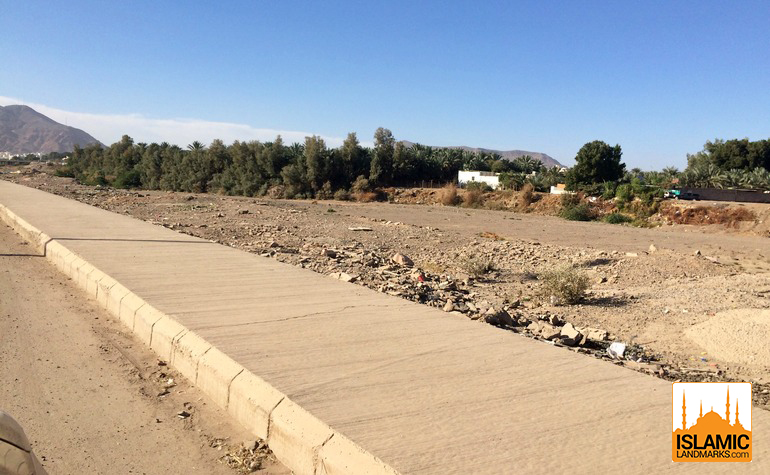
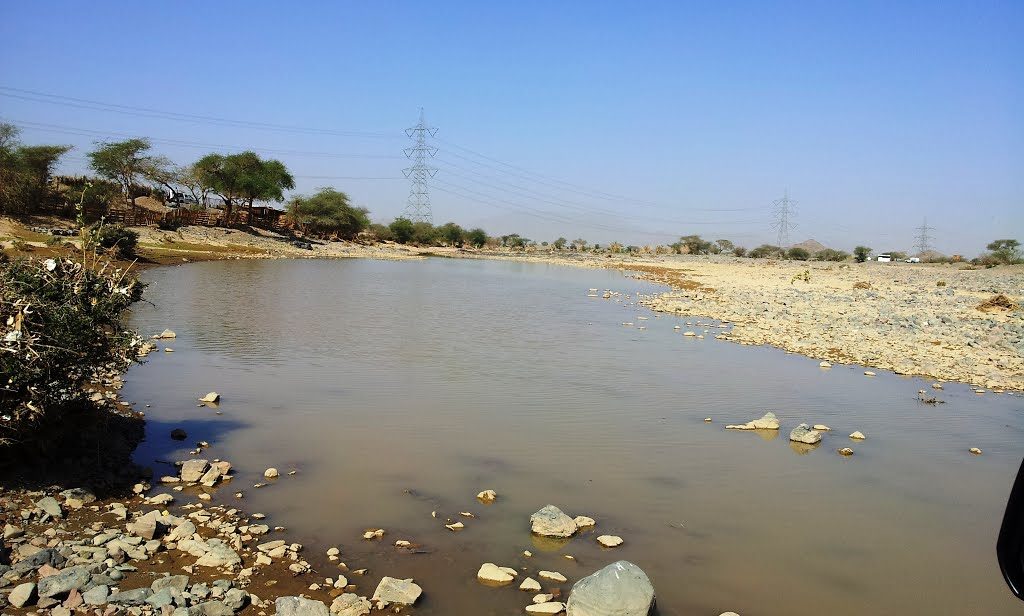
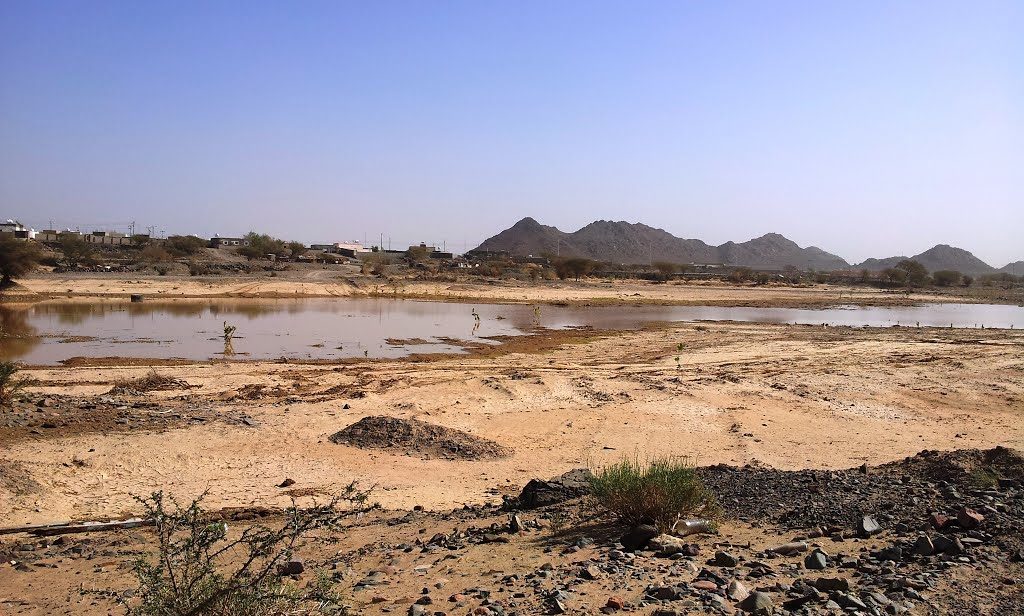
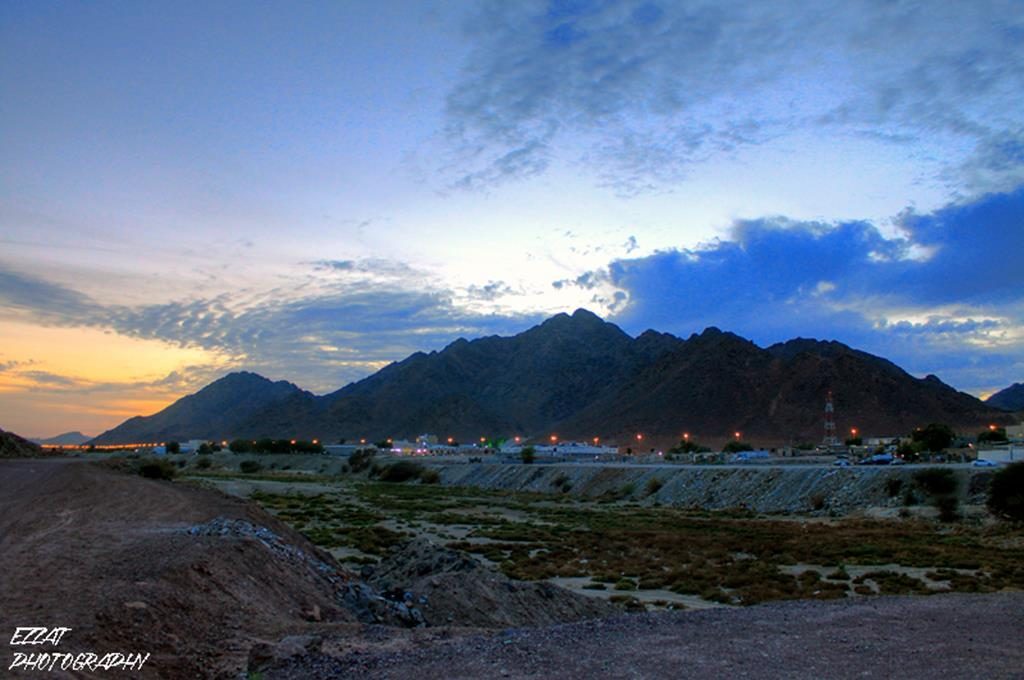
8. Assume Ihram by intention and saying the Talbiyah for Umrah
Please note that the talbiyah is not the intention.
Shaikh Saalih Al-Munajjid states:
“The purpose of the Talbiyah is to define the type of pilgrimage. The one who wants to do ‘Umrah says in his Talbiyah: “Labbayk Allahumma ‘umratan (Here I am, O Allah, for ‘umrah)” and the one who wants to do Hajj says in his Talbiyah: “Labbayk Allahummah Hajjan (Here I am, O Allah, for Hajj”). The one who wants to do Hajj and ‘umrah together says “Labbayk Allahumma ‘umratan wa hajjan (Here I am, O Allah, for ‘umrah and Hajj).”
After this, one is to recite the full talbiyah.
عَنْ عَبْدِ اللَّهِ بْنِ عُمَرَ ـ رضى الله عنهما ـ أَنَّ تَلْبِيَةَ، رَسُولِ اللَّهِ صلى الله عليه وسلم لَبَّيْكَ اللَّهُمَّ لَبَّيْكَ، لَبَّيْكَ لاَ شَرِيكَ لَكَ لَبَّيْكَ، إِنَّ الْحَمْدَ وَالنِّعْمَةَ لَكَ وَالْمُلْكَ، لاَ شَرِيكَ لَكَ
Narrated Abdullah ibn Umar (radiallahu anhu): The Talbiya of Allah’s Messenger (sallallahu alaihi wasallam) was : ‘Labbaika Allahumma labbaik, Labbaika la sharika Laka labbaik, Inna-l-hamda wan-nimata Laka walmulk, La sharika Lak (I respond to Your call O Allah, I respond to Your call, and I am obedient to Your orders, You have no partner, I respond to Your call All the praises and blessings are for You, All the sovereignty is for You, And You have no partners with you. [Sahih Al-Bukhari, Volume 2, Hadeeth No. 621]
One should try to face the qiblah whilst reciting the talbiyah.
عَنْ نَافِعٍ، قَالَ كَانَ ابْنُ عُمَرَ ـ رضى الله عنهما ـ إِذَا صَلَّى بِالْغَدَاةِ بِذِي الْحُلَيْفَةِ أَمَرَ بِرَاحِلَتِهِ فَرُحِلَتْ ثُمَّ رَكِبَ، فَإِذَا اسْتَوَتْ بِهِ اسْتَقْبَلَ الْقِبْلَةَ قَائِمًا، ثُمَّ يُلَبِّي حَتَّى يَبْلُغَ الْمَحْرَمَ، ثُمَّ يُمْسِكُ حَتَّى إِذَا جَاءَ ذَا طُوًى بَاتَ بِهِ حَتَّى يُصْبِحَ، فَإِذَا صَلَّى الْغَدَاةَ اغْتَسَلَ، وَزَعَمَ أَنَّ رَسُولَ اللَّهِ صلى الله عليه وسلم فَعَلَ ذَلِكَ. تَابَعَهُ إِسْمَاعِيلُ عَنْ أَيُّوبَ فِي الْغَسْلِ
Narrated Nafi: ‘Whenever Ibn Umar (radiallahu anhuma) finished his morning Salah at Dhul-Hulaifah he would get his Rahila (mount) prepared. Then, he would ride on it, and after it had stood up straight (ready to set out), he would face Al-Qiblah (the Kabah at Makkah) while sitting (on his mount) and recite Talbiyah. When he had reached the boundaries of the Haram (or Makkah), he would stop recitation of Talbiya till he reached Dhi-Tuwa (near Makkah) where he would pass the night till it was dawn. After offering the morning Salah, he would take a bath. He claimed that Allah’s Messenger (sallallahu alaihi wasallam) had done the same. [Sahih Al-Bukhari, Volume 2, Hadeeth No. 625]
Here’s a nice poster for the talbiyah:
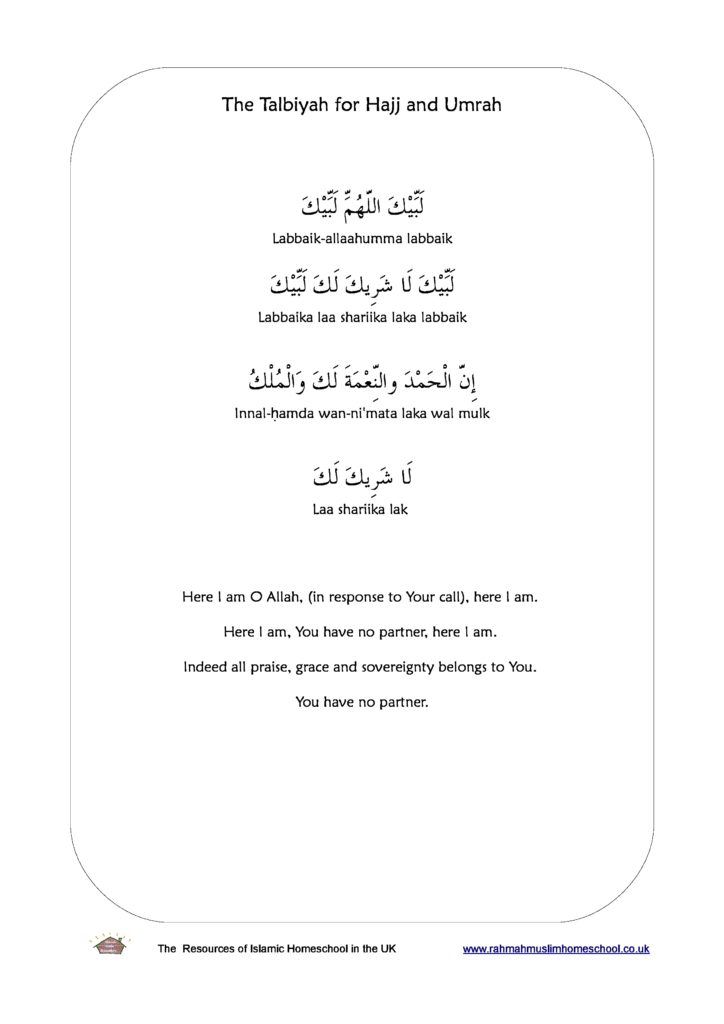
The sister who made this poster, may Allah reward her greatly, also has some other stuff for kids to memorise the talbiyah.
And here’s an audio of the talbiyah.
One might notice that the talbiyah starts with “Labbaik allahuma” which means “I respond to your call, O Allah”.
Someone might ask wonder: Which call of Allah is the pilgrim responding to? Well, it’s the order which Allah gave to Ibrahim (alaihissalaam):
وَأَذِّن فِي النَّاسِ بِالْحَجِّ يَأْتُوكَ رِجَالًا وَعَلَىٰ كُلِّ ضَامِرٍ يَأْتِينَ مِن كُلِّ فَجٍّ عَمِيقٍ
And proclaim to mankind the Hajj (pilgrimage). They will come to you on foot and on every lean camel, they will come from every deep and distant (wide) mountain highway (to perform Hajj). [Surah Al-Hajj (22) : 27]
Ibn Kathir stated in his explanation of the above mentioned verse:
﴿وَأَذِّن فِى النَّاسِ بِالْحَجِّ﴾
“(And proclaim to mankind the Hajj) meaning, `announce the pilgrimage to mankind and call them to perform pilgrimage to this House which We have commanded you to build.’ It was said that Ibrahim said: “O Lord, how can I convey this to people when my voice will not reach them” It was said: “Call them and We will convey it.” So Ibrahim stood up and said, “O mankind! Your Lord has established a House so come on pilgrimage to it.” It is said that the mountains lowered themselves so that his voice would reach all the regions of the earth, and those who were still in their mothers’ wombs and their fathers’ loins would hear the call. The response came from everyone in the cities, deserts and countryside, and those whom Allah has decreed will make the pilgrimage, until the Day of Resurrection: “At Your service, O Allah, at Your service.” This is a summary of the narrations from Ibn Abbas, Mujahid, Ikrimah, Said bin Jubayr and others among the Salaf. And Allah knows best. This was recorded by Ibn Jarir and by Ibn Abi Hatim at length.”
Here are two articles that explain the meaning of the talbiyah:
An explanation of a number of benefits gained from the Talbiyah – Shaikh Abdur Razzaq Al-Abbaad [This article is a part of an entire book which was mentioned in Part 4.]
“Labbayk Allaahumma labbayk” – what does it mean? – Islam QA
The Prophet (sallallahu alaihi wasallam) also said some other things in addition to the talbiyah mentioned above.
عَنْ أَبِي هُرَيْرَةَ، أَنَّ رَسُولَ اللَّهِ ـ صلى الله عليه وسلم ـ قَالَ فِي تَلْبِيَتِهِ : لَبَّيْكَ إِلَهَ الْحَقِّ لَبَّيْكَ
It was narrated from Abu Hurairah (radiallahu anhu) that the Messenger of Allah (sallallahu alaihi wasallam) used to say in his Talbiyah: “Labbaika ilaahal-haqq, labbaika (Here I am, O God of Truth, here I am).” [Sunan Ibn Majah, Hadeeth No. 2920. Graded “sahih” (authentic) by Al-Albani.]
Ibn Umar (radiallahu anhuma) also said some things along with the talbiyah.
عَنْ عَبْدِ اللَّهِ، بْنِ عُمَرَ – رضى الله عنهما – أَنَّ تَلْبِيَةَ، رَسُولِ اللَّهِ صلى الله عليه وسلم : لَبَّيْكَ اللَّهُمَّ لَبَّيْكَ لَبَّيْكَ لاَ شَرِيكَ لَكَ لَبَّيْكَ إِنَّ الْحَمْدَ وَالنِّعْمَةَ لَكَ وَالْمُلْكَ لاَ شَرِيكَ لَكَ . قَالَ وَكَانَ عَبْدُ اللَّهِ بْنُ عُمَرَ – رضى الله عنهما – يَزِيدُ فِيهَا لَبَّيْكَ لَبَّيْكَ وَسَعْدَيْكَ وَالْخَيْرُ بِيَدَيْكَ لَبَّيْكَ وَالرَّغْبَاءُ إِلَيْكَ وَالْعَمَلُ
Abdullah ibn Umar (radiallahu anhuma) reported that the Talbiyah of the Messenger of Allah (sallallahu alaihi wasallam) was this: Here I am at Thy service. O Allah, here I am at Thy service, here I am at Thy service. There is no associate with Thee; here I am at Thy service. Verily all praise and grace is due to Thee, and the sovereignty (too). There is no associate with Thee. He (the narrator) further said that Abdullah ibn Umar (radiallahu anhuma) made this addition to it: Labbaika labbaika wa sa’daika wal-khairu bi yadaika, labbaika war-raghba’u ilaika wal-‘amal (Here I am, here I am, and at Your service; all good is in Your Hands, here I am, seeking Your pleasure and striving for Your sake).” [Sahih Muslim, Hadeeth No. 2667]
The Prophet (sallallahu alaihi wasallam) also said the following:
عَنْ أَنَسِ بْنِ مَالِكٍ، قَالَ حَجَّ النَّبِيُّ ـ صلى الله عليه وسلم ـ عَلَى رَحْلٍ رَثٍّ وَقَطِيفَةٍ تُسَاوِي أَرْبَعَةَ دَرَاهِمَ أَوْ لاَ تُسَاوِي ثُمَّ قَالَ: اللَّهُمَّ حِجَّةٌ لاَ رِيَاءَ فِيهَا وَلاَ سُمْعَةَ
It was narrated that Anas ibn Malik (radiallahu anhu) said: “The Prophet (sallallahu alaihi wasallam) performed Hajj on an old saddle, wearing a cloak that was worth four Dirham or less. Then he said: ‘O Allah, a Hajj in which there is no showing off nor reputation sought.’” [Sunan Ibn Majah, Hadeeth No. 2890. Graded “sahih” (authentic) by Al-Albani.]
9. If someone is afraid they might be unable to complete their Umrah or Hajj, they can make a condition
This means that if the issue occurs, they can exit ihram without offering any fidyah.
عَ
نْ عَائِشَةَ، قَالَتْ دَخَلَ رَسُولُ اللَّهِ صلى الله عليه وسلم عَلَى ضُبَاعَةَ بِنْتِ الزُّبَيْرِ فَقَالَ لَهَا : لَعَلَّكِ أَرَدْتِ الْحَجَّ . قَالَتْ وَاللَّهِ لاَ أَجِدُنِي إِلاَّ وَجِعَةً. فَقَالَ لَهَا : حُجِّي وَاشْتَرِطِي، قُولِي اللَّهُمَّ مَحِلِّي حَيْثُ حَبَسْتَنِي . وَكَانَتْ تَحْتَ الْمِقْدَادِ بْنِ الأَسْوَدِ
Narrated Aishah (radiallahu anha): Allah’s Messenger (sallallahu alaihi wasallam) entered upon Dubaa bint Az-Zubair and said to her, “Do you have a desire to perform the Hajj?” She replied, “By Allah, I feel sick.” He said to her, “Intend to perform Hajj and stipulate something by saying, ‘O Allah, I will finish my Ihram at any place where You stop me (i.e. I am unable to go further).” She was the wife of Al-Miqdad bin Al-Aswad. [Sahih Al-Bukhari, Volume 7, Hadeeth No. 26]
Here’s an example of a woman who is afraid of menstruating after she puts on her ihram for Umrah.
10. Men should chant the talbiyah in a loud voice
عَنْ زَيْدِ بْنِ خَالِدٍ الْجُهَنِيِّ، قَالَ قَالَ رَسُولُ اللَّهِ ـ صلى الله عليه وسلم ـ : جَاءَنِي جِبْرِيلُ فَقَالَ يَا مُحَمَّدُ مُرْ أَصْحَابَكَ فَلْيَرْفَعُوا أَصْوَاتَهُمْ بِالتَّلْبِيَةِ فَإِنَّهَا مِنْ شِعَارِ الْحَجِّ .
It was narrated from Zaid bin Khalid Al-Juhani that the Messenger of Allah (sallallahu alaihi wasallam) said: “Jibril came to me and said: ‘O Muhammad! Tell your Companions to raise their voices when reciting the Talbiyah, for it is one of the symbols of Hajj.’” [Sunan Ibn Majah, Hadeeth No. 2923. Graded “sahih” (authentic) by Al-Albani.]
عَنْ خَلاَّدِ بْنِ السَّائِبِ بْنِ خَلاَّدٍ، عَنْ أَبِيهِ، قَالَ قَالَ رَسُولُ اللَّهِ صلى الله عليه وسلم : أَتَانِي جِبْرِيلُ فَأَمَرَنِي أَنْ آمُرَ أَصْحَابِي أَنْ يَرْفَعُوا أَصْوَاتَهُمْ بِالإِهْلاَلِ وَالتَّلْبِيَةِ
Khallad bin As-Saaib (bin Khalad) narrated from his father who said that the Messenger of Allah (sallallahu alaihi wasallam) said: “Jibril came to me and ordered me to order my Companions to raise their voices with the Ihlal, or the Talbiyah.” [Jaami At-Tirmidhi, Hadeeth No. 829. Graded “sahih” (authentic) by Al-Albani.]
عَنْ أَنَسٍ ـ رضى الله عنه ـ قَالَ صَلَّى النَّبِيُّ صلى الله عليه وسلم بِالْمَدِينَةِ الظُّهْرَ أَرْبَعًا، وَالْعَصْرَ بِذِي الْحُلَيْفَةِ رَكْعَتَيْنِ، وَسَمِعْتُهُمْ يَصْرُخُونَ بِهِمَا جَمِيعًا
Narrated Anas (radiallahu anhu): The Prophet (sallallahu alaihi wasallam) offered four rakat of the Dhuhr prayer in Madinah and two rakat of the Asr prayer in Dhul-Hulaifah and I heard them (the companions of the Prophet) reciting Talbiyah together loudly to the extent of shouting. [Sahih Al-Bukhari, Volume 2, Hadeeth No. 620]
عَنْ أَبِي بَكْرٍ الصِّدِّيقِ، أَنَّ رَسُولَ اللَّهِ ـ صلى الله عليه وسلم ـ سُئِلَ أَىُّ الأَعْمَالِ أَفْضَلُ قَالَ : الْعَجُّ وَالثَّجُّ
It was narrated from Abu Bakr As-Siddiq (radiallahu anhu) that the Messenger of Allah (sallallahu alaihi wasallam) was asked: “Which actions are best?” He said: “Raising one’s voice and slaughtering the sacrificial animal.” [Sunan Ibn Majah, Hadeeth No. 2924. Graded “sahih” (authentic) by Al-Albani.]
The scholars stated that women should not recite it loudly if there are non-mahram men around.
11. One can do dua (supplication) after reciting the Talbiyah
This article discusses this issue in greater detail.
12. For Umrah, the talbiyah is to be recited until one starts Tawaf
So, the person keeps saying it from the time of assuming ihram until he starts doing tawaf.
عَنِ ابْنِ عَبَّاسٍ، يَرْفَعُ الْحَدِيثَ أَنَّهُ كَانَ يُمْسِكُ عَنِ التَّلْبِيَةِ، فِي الْعُمْرَةِ إِذَا اسْتَلَمَ الْحَجَرَ
Ibn Abbas (radiallahu anhuma) narrated: (that the Prophet (sallallahu alaihi wasallam): “Would stop saying the talbiyah during Umrah when he touched the (Black) Stone.” [Jaami At-Tirmidhi, Hadeeth No. 919. Graded “daif” (weak) by Al-Albani who said it was authentic as a statement of Ibn Abbas (radiallahu anhuma) (but not as a statement of the Prophet (sallallahu alaihi wasallam)).]
For Hajj, the talbiyah is to be recited until one stones the Jamratul Aqabah.
عَنِ ابْنِ عَبَّاسٍ ـ رضى الله عنهما ـ أَنَّ أُسَامَةَ ـ رضى الله عنه ـ كَانَ رِدْفَ النَّبِيِّ صلى الله عليه وسلم مِنْ عَرَفَةَ إِلَى الْمُزْدَلِفَةِ، ثُمَّ أَرْدَفَ الْفَضْلَ مِنَ الْمُزْدَلِفَةِ إِلَى مِنًى. قَالَ فَكِلاَهُمَا قَالَ لَمْ يَزَلِ النَّبِيُّ صلى الله عليه وسلم يُلَبِّي، حَتَّى رَمَى جَمْرَةَ الْعَقَبَةِ
Narrated Ubaidullah ibn Abdullah: Ibn Abbas (radiallahu anhuma) said, “Usama rode behind Allah’s Messenger (sallallahu alaihi wasallam) from Arafah to Al-Muzdalifah; and then Al-Fadl rode behind Allah’s Messenger ((sallallahu alaihi wasallam) from Al-Muzdalifah to Mina.” Ibn Abbas added, “Both of them said, ‘The Prophet (sallallahu alaihi wasallam) kept on reciting talbiyah till he did the rami (stoning) of Jamrat Al-Aqabah.’ “ [Sahih Al-Bukhari, Volume 2, Hadeeth No. 616]
13. Remember the virtues of the talbiyah
عَنْ سَهْلِ بْنِ سَعْدٍ السَّاعِدِيِّ، عَنْ رَسُولِ اللَّهِ ـ صلى الله عليه وسلم ـ قَالَ : مَا مِنْ مُلَبٍّ يُلَبِّي إِلاَّ لَبَّى مَا عَنْ يَمِينِهِ وَشِمَالِهِ مِنْ حَجَرٍ أَوْ شَجَرٍ أَوْ مَدَرٍ حَتَّى تَنْقَطِعَ الأَرْضُ مِنْ هَا هُنَا وَهَا هُنَا
It was narrated from Sahl ibn Sad As-Saidi that the Messenger of Allah (sallallahu alaihi wasallam) said: “There is no (pilgrim) who recites the Talbiyah but that which is to his right and left also recites it, rocks and trees and hills, to the farthest ends of the earth in each direction, from here and from there.” [Sunan Ibn Majah, Hadeeth No. 2921. Graded “sahih” (authentic) by Al-Albani.]
عَنْ زَيْدِ بْنِ خَالِدٍ الْجُهَنِيِّ، قَالَ قَالَ رَسُولُ اللَّهِ ـ صلى الله عليه وسلم ـ : جَاءَنِي جِبْرِيلُ فَقَالَ يَا مُحَمَّدُ مُرْ أَصْحَابَكَ فَلْيَرْفَعُوا أَصْوَاتَهُمْ بِالتَّلْبِيَةِ فَإِنَّهَا مِنْ شِعَارِ الْحَجِّ
It was narrated from Zaid bin Khalid Al-Juhani that the Messenger of Allah (sallallahu alaihi wasallam) said: “Jibril came to me and said: ‘O Muhammad! Tell your Companions to raise their voices when reciting the Talbiyah, for it is one of the symbols of Hajj.’” [Sunan Ibn Majah, Hadeeth No. 2923. Graded “sahih” (authentic) by Al-Albani.]
عَنْ أَبِي هُرَيْرَة رضي الله عنه عن النبي صلى الله عليه وسلم قال :ما أهلَّ مُهِلٌّ قطُّ إلَّا بُشِّرَ ، ولا كبَّرَ مُكبِّرٌ قطُّ إلَّا بُشِّرَ . قيلَ : يا رسولَ اللهِ ! بالجنَّةِ ؟ قال : نعَم
Abu Hurairah (radiallahu anhu) narrated that the Prophet (sallallahu alaihi wasallam) stated: A person does not ever make talbiyah except he is given glad tidings, nor does a person ever say takbir (Allahu Akbar) except he is given glad tidings.’
It was said: ‘O Messenger of Allah! With Paradise?’
He said: ‘Yes.’
[Sahih At-Targheeb Wat-Tarheeb, Hadeeth No. 1137]
عَنْ أَبِي بَكْرٍ الصِّدِّيقِ، أَنَّ رَسُولَ اللَّهِ ـ صلى الله عليه وسلم ـ سُئِلَ أَىُّ الأَعْمَالِ أَفْضَلُ قَالَ :الْعَجُّ وَالثَّجُّ
It was narrated from Abu Bakr As-Siddiq (radiallahu anhu) that the Messenger of Allah (sallallahu alaihi wasallam) was asked: “Which actions are best?” He said: “Raising one’s voice* and slaughtering the sacrificial animal.” [Sunan Ibn Majah, Hadeeth No. 2924. Graded “sahih” (authentic) by Al-Albani.]
(*Meaning raising one’s voice with the Talbiyah.)
Also, the muhrim is raised on the Last Day pronouncing the talbiyah.
عَنِ ابْنِ عَبَّاسٍ، – رضى الله عنهما – أَنَّ رَجُلاً، أَوْقَصَتْهُ رَاحِلَتُهُ وَهُوَ مُحْرِمٌ فَمَاتَ فَقَالَ رَسُولُ اللَّهِ صلى الله عليه وسلم : اغْسِلُوهُ بِمَاءٍ وَسِدْرٍ وَكَفِّنُوهُ فِي ثَوْبَيْهِ وَلاَ تُخَمِّرُوا رَأْسَهُ وَلاَ وَجْهَهُ فَإِنَّهُ يُبْعَثُ يَوْمَ الْقِيَامَةِ مُلَبِّيًا
Ibn Abbas (radiallahu anhu) reported that there was a person in the state of Ihram whose camel broke his neck and he died. Thereupon the Messenger of Allah (sallallahu alaihi wasallam) said: Bathe him with water mixed (with the leaves of) lote tree and shroud him in his two (pieces of) cloth and cover neither his head nor his face, for he would be raised on the Day of Resurrection pronouncing talbiya. [Sahih Muslim, Hadeeth No. 2750]

BETWEEN THE MEEQAT AND THE HARAM
So, now the pilgrim will head to Makkah to perform Umrah.
Some things that one should remember are:
-
Follow the etiquette required of a muhrim
A pilgrim should remember the virtues of his current state.
عن ابن عمر رضي الله عنهما قال: سمعت النبي صلى الله عليه وسلم يقول: ما تَرفعُ إبلُ الحاجِّ رِجلًا ، ولا تضعُ يدًا ؛ إلا كتب اللهُ له بها حسنةً ، أو محا عنه سيئةً ، أو رفعه بها درجةً
Ibn Umar (radiallahu anhuma) said: I heard the Prophet (salallahu alaihi wasallam) saying: “A pilgrim’s camel does not raise his foot or put it down except that Allah writes for him (i.e. the pilgrim) a good deed, or removes from him a sin, or raises him a rank. [Sahih At-Targheeb wat-Tarheeb, Hadeeth No. 1106]
عَنْ أَبِي هُرَيْرَةَ يَقُولُ: قَالَ رَسُولُ اللَّهِ صلى الله عليه وسلّم: وَفْدُ اللَّهِ ثَلاَثَةٌ الْغَازِي وَالْحَاجُّ وَالْمُعْتَمِرُ
Abu Hurairah (radiallahu anhu) said: The Messenger of Allah (sallallahu alaihi wasallam) said: “The guests of Allah are three: The ghaazi (warrior who fights in jihad), the Haajji (person performing Hajj) and the Mutamir (person performing Umrah).” [Sunan An-Nasai, Hadeeth No. 2626. Graded “sahih” (authentic) by Al-Albani.]
عَنِ ابْنِ عُمَرَ ، عَنِ النَّبِيِّ قَالَ: الْغَازِي فِي سَبِيلِ اللَّهِ وَالْحَاجُّ وَالْمُعْتَمِرُ، وَفْدُ اللَّهِ. دَعَاهُمْ فَأَجَابُوهُ. وَسَأَلُوهُ فَأَعْطَاهُمْ
Ibn Umar (radiallahu anhuma) narrated that the Prophet (sallallahu alaihi wasallam) said: “The one who fights in the cause of Allah, and the one performing Hajj and the one performing Umrah are a delegation to Allah. He invited them, so they responded to Him, and they ask Him and He gives to them.” [Sunan Ibn Majah, Hadeeth No. 2893. Graded “hasan” (good) by Al-Albani.]
Also, one should remember the proper etiquette associated with being in ihram, and going for Hajj and Umrah.
عن جابر عن النبي صلى الله عليه وسلم قال الحجُّ المبرورُ ليس له جزاءٌ إلَّا الجنَّةُ قيل وما بِرُّه قال إطعامُ الطَّعامِ وطِيبُ الكلامِ
Narrated Jaabir (radiallahu anhu): The Prophet (sallallahu alaihi wasallam) said: “Hajj Mabroor has no reward except for Paradise.” It was said: “And what is its birr (goodness)?” He said: “To feed the poor and good speech.” [Sahih At-Targheeb wat-Tarheeb, Hadeeth No. 1104]
عنْ أبو هريرةَ رضيَ اللّهُ عنه قال: سمعتُ النبيَّ صلى الله عليه وسلّم يقول :من حجَّ للّهِ فلمَ يَرفُثْ ولم يَفْسُقْ رَجَع كيومِ ولدَتْهُ أمُّه
Narrated Abu Hurairah (radiallahu anhu): The Prophet (sallallahu alaihi wasallam) said, “Whoever performs Hajj for Allah’s pleasure and does not have sexual relations with his wife, and does not commit sins then he will return as on the day his mother bore him.” [Sahih Al-Bukhari, Volume 2, Hadeeth No. 596]
الْحَجُّ أَشْهُرٌ مَّعْلُومَاتٌ ۚ فَمَن فَرَضَ فِيهِنَّ الْحَجَّ فَلَا رَفَثَ وَلَا فُسُوقَ وَلَا جِدَالَ فِي الْحَجِّ ۗ وَمَا تَفْعَلُوا مِنْ خَيْرٍ يَعْلَمْهُ اللَّـهُ ۗ وَتَزَوَّدُوا فَإِنَّ خَيْرَ الزَّادِ التَّقْوَىٰ ۚ وَاتَّقُونِ يَا أُولِي الْأَلْبَابِ
The Hajj (pilgrimage) is (in) the well-known (lunar year) months (i.e. the 10th month, the 11th month and the first ten days of the 12th month of the Islamic calendar, i.e. two months and ten days). So whosoever intends to perform Hajj therein by assuming Ihram), then he should not have sexual relations (with his wife), nor commit sin, nor dispute unjustly during the Hajj. And whatever good you do, (be sure) Allah knows it. And take a provision (with you) for the journey, but the best provision is At-Taqwa (piety, righteousness, etc.). So fear Me, O men of understanding! [Surah Al-Baqarah (2) : 197]
Committing sins and disputing unjustly with others are two things a person should always keep away from but even more so in Hajj and Umrah.
Ibn Kathir states in his explanation of this verse:
“Allah said:
﴿وَلاَ فُسُوقَ﴾
(…nor commit sin) Miqsam and several other scholars related that Ibn Abbas said, “It is disobedience.” This is also the opinion of Ataa, Mujahid, Tawus, Ikrimah, Said bin Jubayr, Muhammad bin Kab, Al-Hasan, Qatadah, Ibrahim An-Nakhai, Az-Zuhri, Ar-Rabi bin Anas, Ataa bin Yasar, Ataa Al-Khurasani and Muqatil bin Hayyan.
Ibn Wahb reported that Nafi narrated that Abdullah bin Umar said, “Fusuq (or sin mentioned in the Ayah (2:197)) refers to committing what Allah has forbidden in the Sacred Area.”
Several others said that Fusuq means cursing others, they based this on the authentic Hadith:
«سِبَابُ الْمُسْلِمِ فُسُوقٌ وَقِتَالُهُ كُفْر»
(Cursing the Muslim is Fusuq, while fighting him is Kufr.)
Abdur-Rahman bin Zayd bin Aslam said Fusuq here means slaughtering animals for the idols, as Allah said:
﴿أَوْ فِسْقًا أُهِلَّ لِغَيْرِ اللَّهِ بِهِ﴾
(…or impious (Fisq) meat (of an animal) which is slaughtered as a sacrifice for others than Allah.) (6: 145)
Ad-Dahhak said that Fusuq is insulting one another with bad nicknames.
Those who said that the Fusuq means all types of disobedience are correct. Allah has also prohibited committing injustice during the months of Hajj in specific, although injustice is prohibited throughout the year. This is why Allah said:
﴿مِنْهَآ أَرْبَعَةٌ حُرُمٌ ذلِكَ الدِّينُ الْقَيِّمُ فَلاَ تَظْلِمُواْ فِيهِنَّ أَنفُسَكُمْ﴾
(…of them four are sacred. That is the right religion, so wrong not yourselves therein.) (9:36)
Allah said about the Sacred Area:
﴿وَمَن يُرِدْ فِيهِ بِإِلْحَادٍ بِظُلْمٍ نُّذِقْهُ مِنْ عَذَابٍ أَلِيمٍ﴾
(…and whoever inclines to evil actions therein or to do wrong, him We shall cause to taste from a painful torment.) (22:25)
It is recorded in the Two Sahihs that Abu Hurayrah narrated that Allah’s Messenger said:
«مَنْ حَجَّ هَذَا الْبَيْتَ، فَلَمْ يَرْفُثْ وَلَمْ يَفْسُقْ خَرَجَ مِنْ ذُنُوبِهِ كَيَوْمَ وَلَدَتْهُ أُمُّه»
(Whoever performed Hajj to this (Sacred) House and did not commit Rafath or Fusuq, will return sinless, just as the day his mother gave birth to him.)
Allah said:
﴿وَلاَ جِدَالَ فِي الْحَجِّ﴾
(nor should there be Jidal during Hajj) meaning, disputes and arguments. Ibn Jarir related that Abdullah bin Masud said that what Allah said:
﴿وَلاَ جِدَالَ فِي الْحَجِّ﴾
(…nor dispute unjustly during the Hajj.) means to argue with your companion (or fellow) until you make him angry. This is similar to the the opinion that Miqsam and Ad-Dahhak related to Ibn Abbas. This is also the same meaning reported from Abu Al-Aliyah, Ataaa, Mujahid, Saaid bin Jubayr, Ikrimah, Jabir bin Zayd, Ata Al-Khurasani, Makhul, As-Suddi, Muqatil bin Hayyan, Amr bin Dinar, Ad-Dahhak, Ar-Rabi bin Anas, Ibrahim An-Nakhai, Ata bin Yasar, Al-Hasan, Qatadah and Az-Zuhri.
Allah said:
﴿وَمَا تَفْعَلُواْ مِنْ خَيْرٍ يَعْلَمْهُ اللَّهُ﴾
(And whatever good you do, Allah knows it.)
After Allah prohibited evil in deed and tongue, He encouraged righteous, good deeds, stating that He is knowledgeable of the good that they do, and He will reward them with the best awards on the Day of Resurrection.”
2. Follow the etiquette required of travelling on a journey
Travelling has many different sunnahs associated with it. A person should try to follow them whenever possible.
In Hajj and Umrah, the travelling generally consists of the plane journey and then the car journey.
For more information, please refer to the following article.
3. Go for Tawaf as soon as you arrive in Makkah
One should not delay their umrah for no reason. However, if a person is extremely tired after a long journey and needs to rest before going for Tawaf, one can do so.
[Here’s Part 6.]
